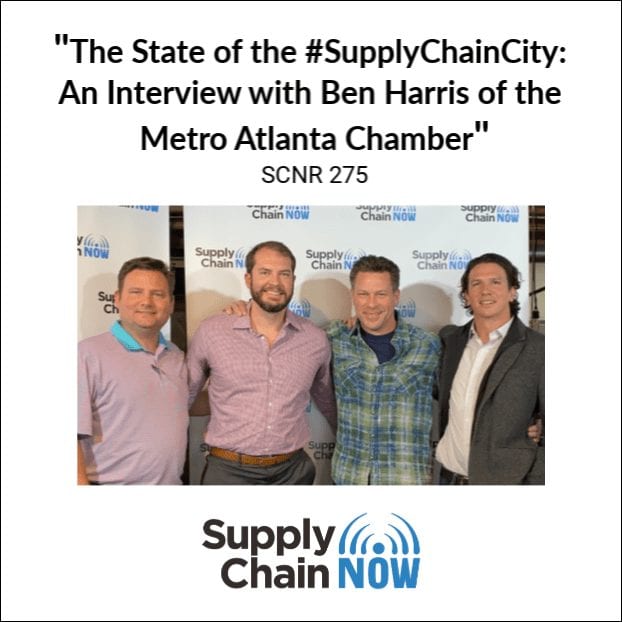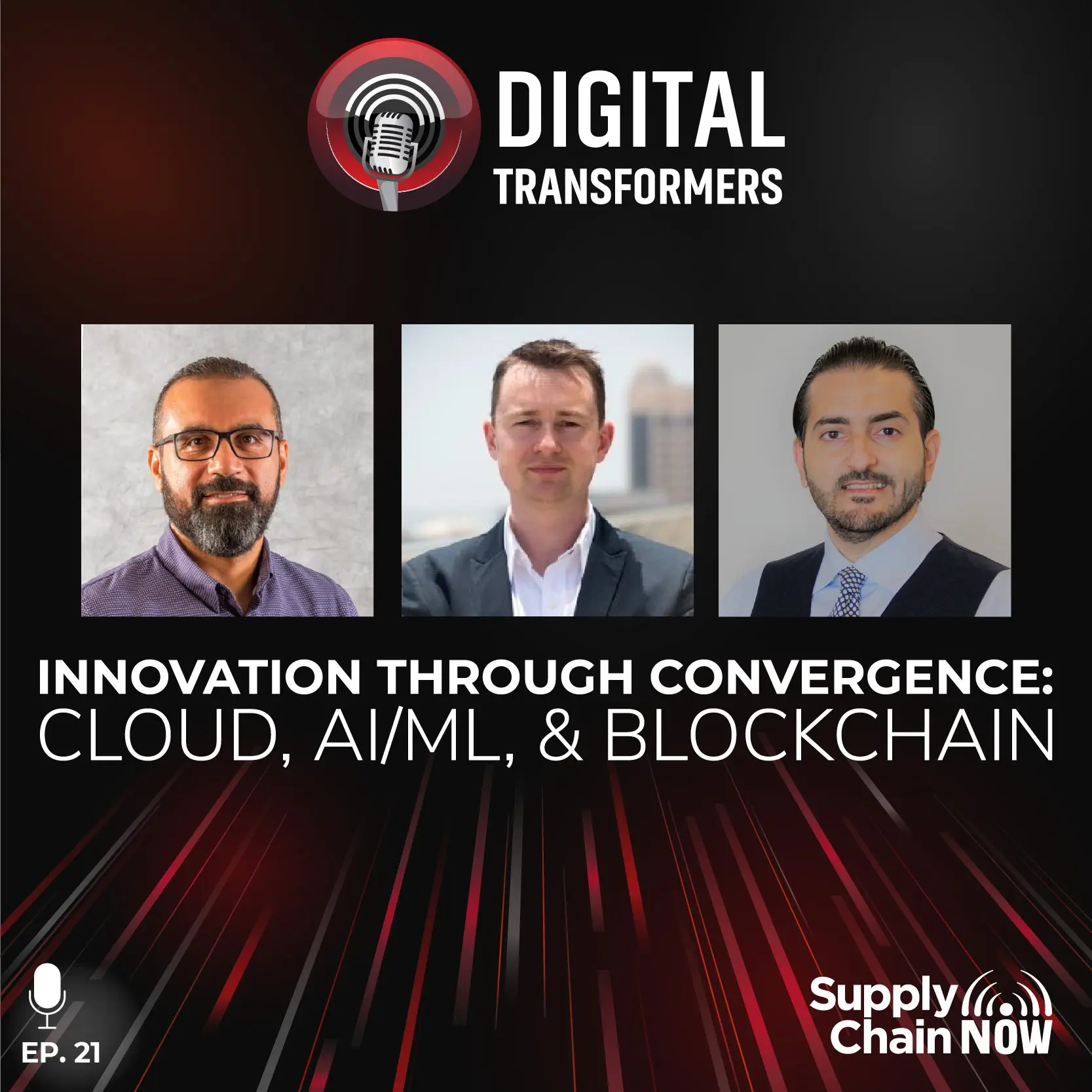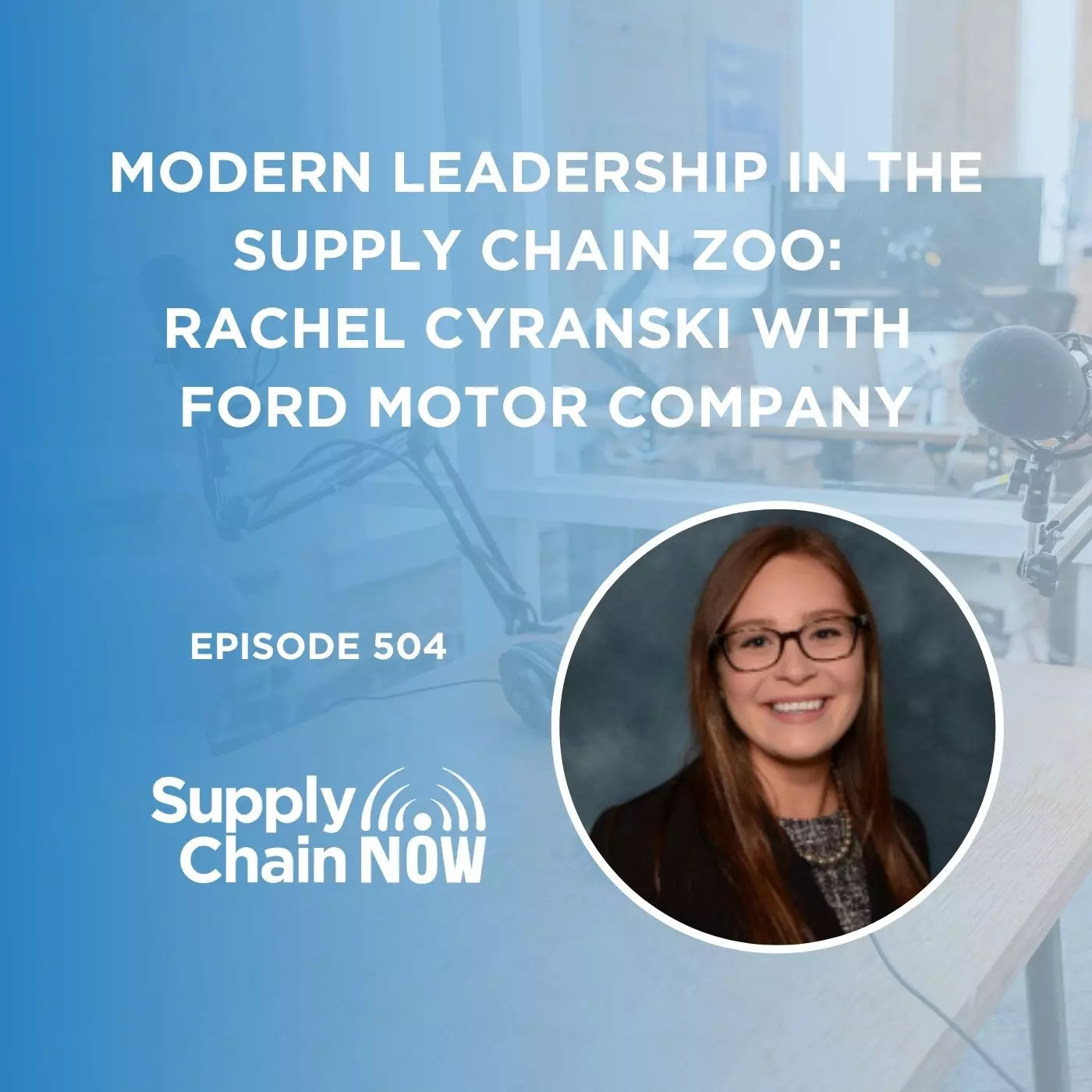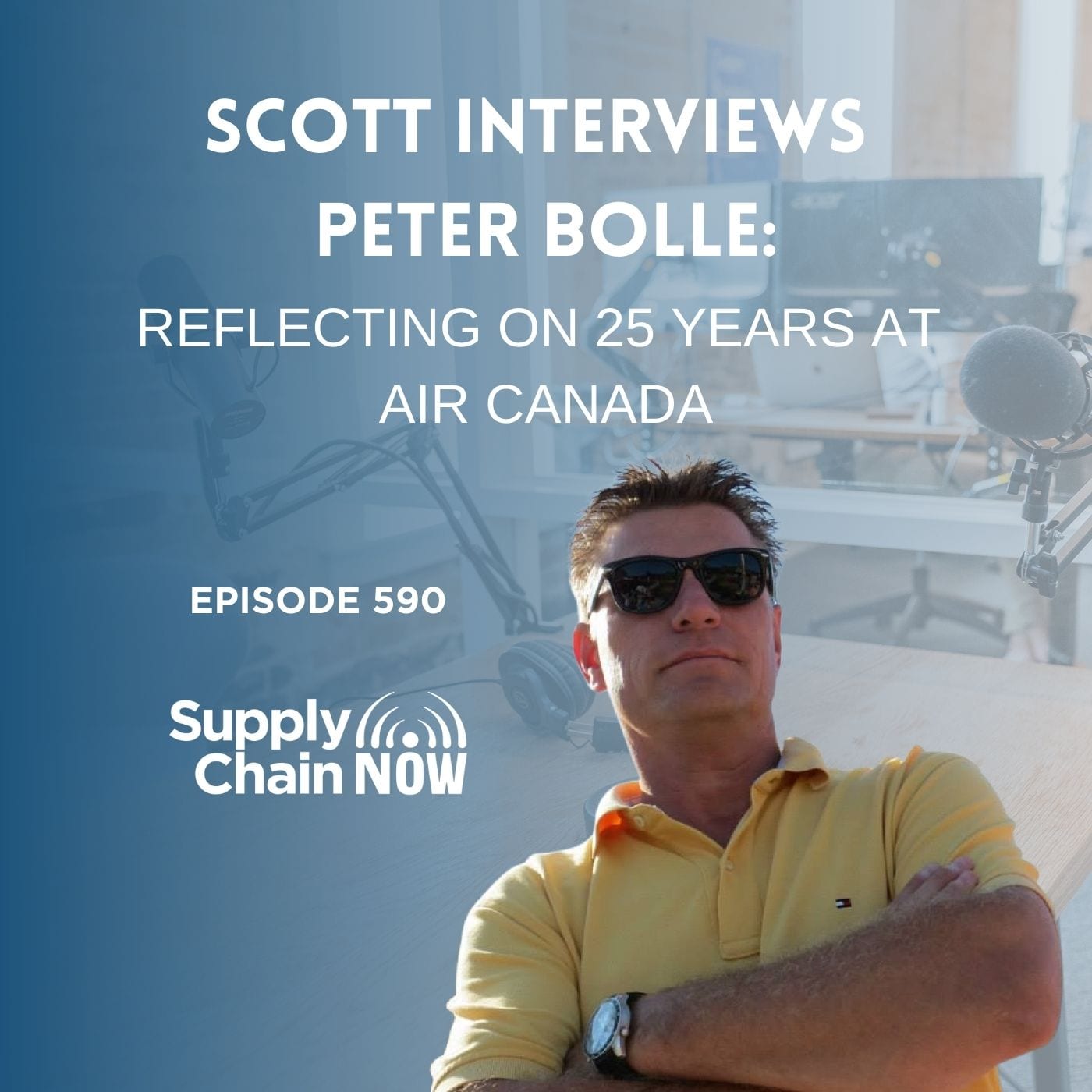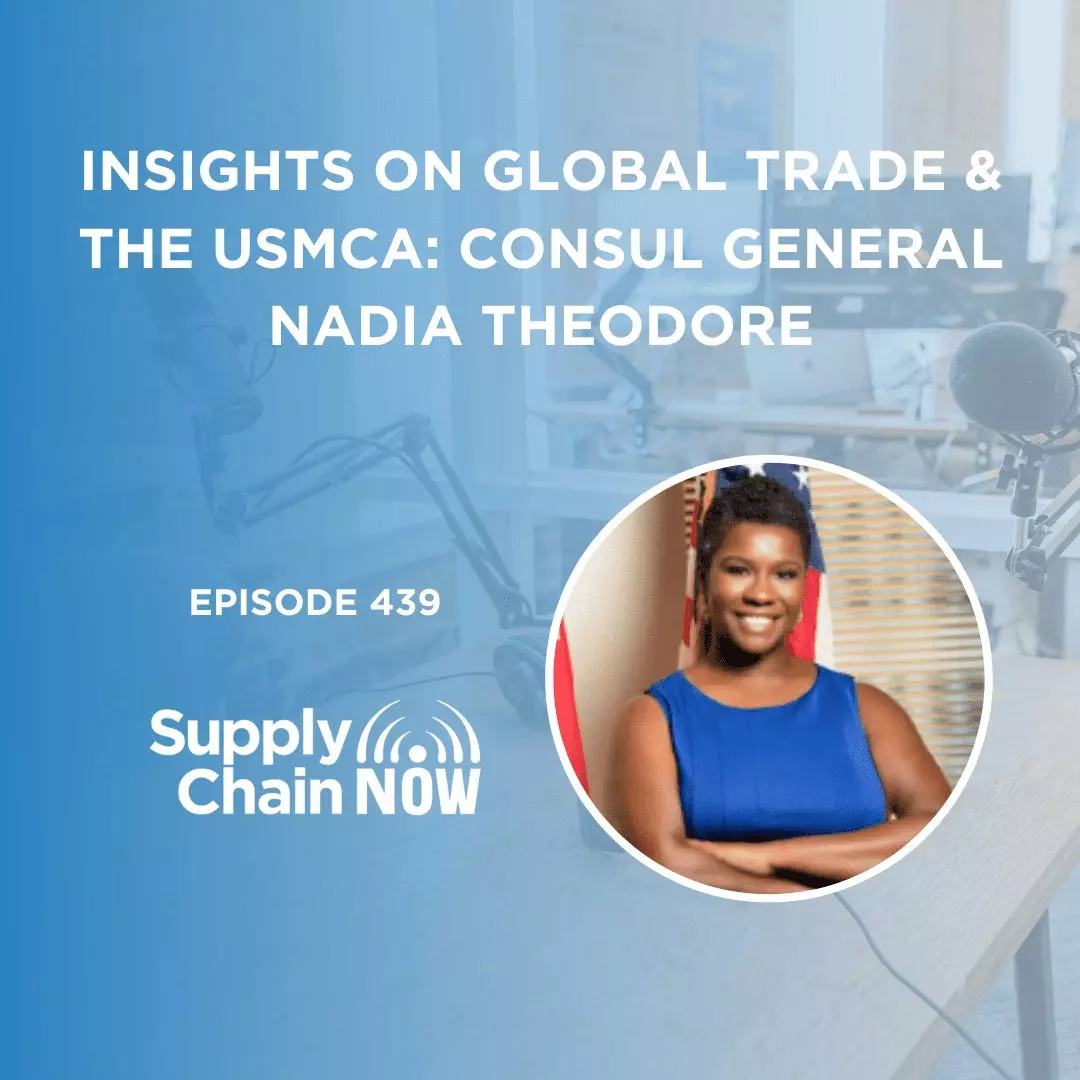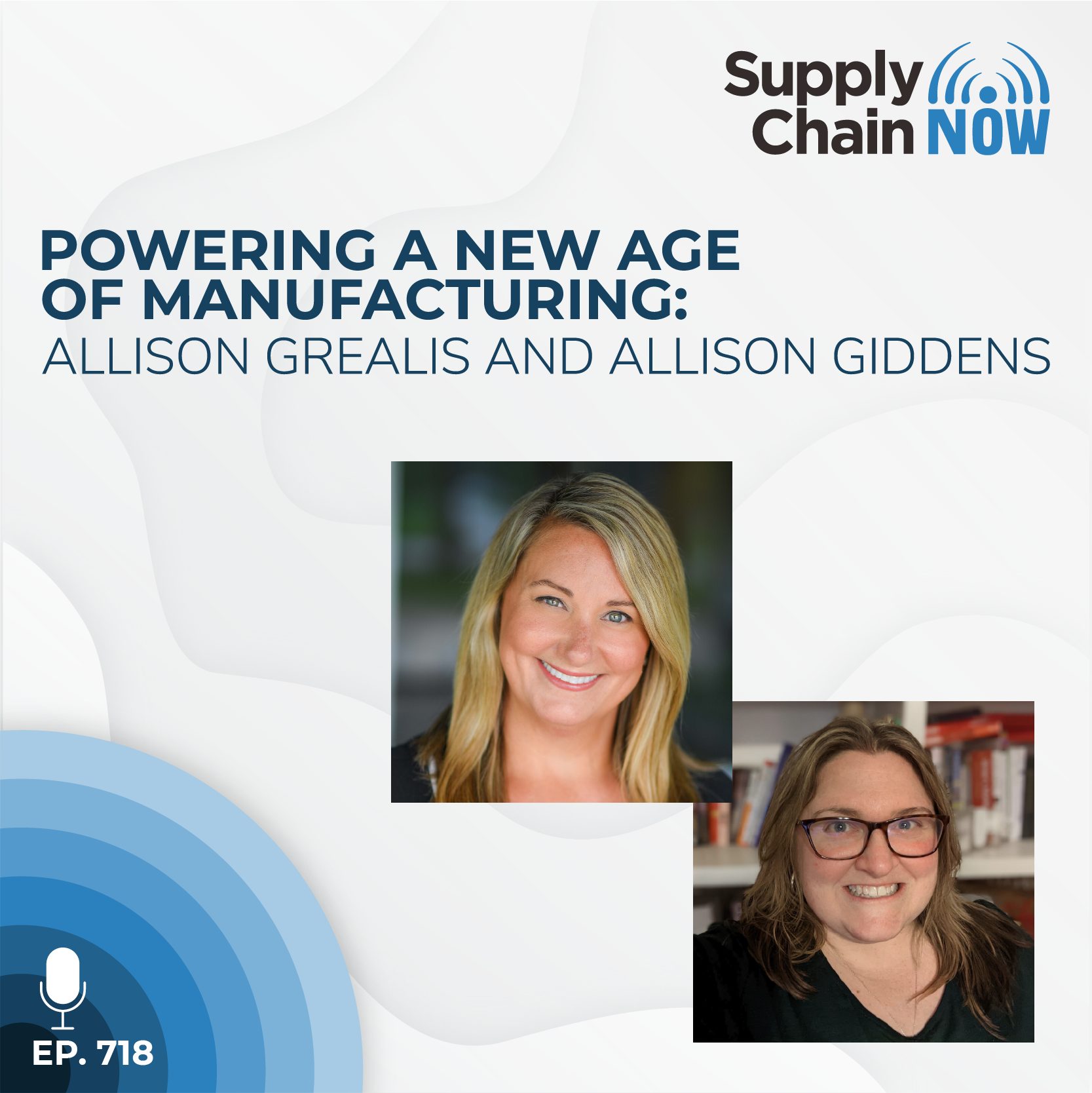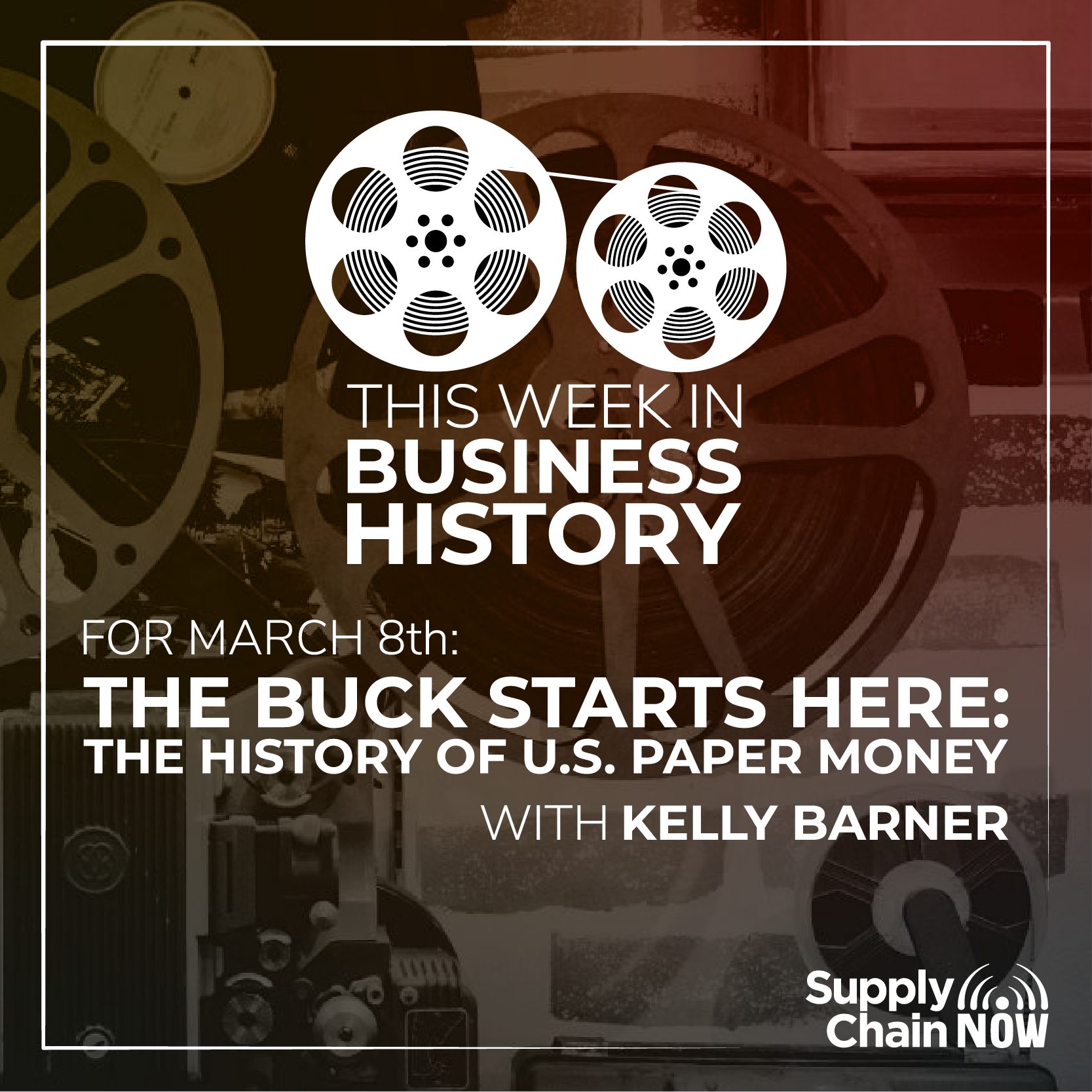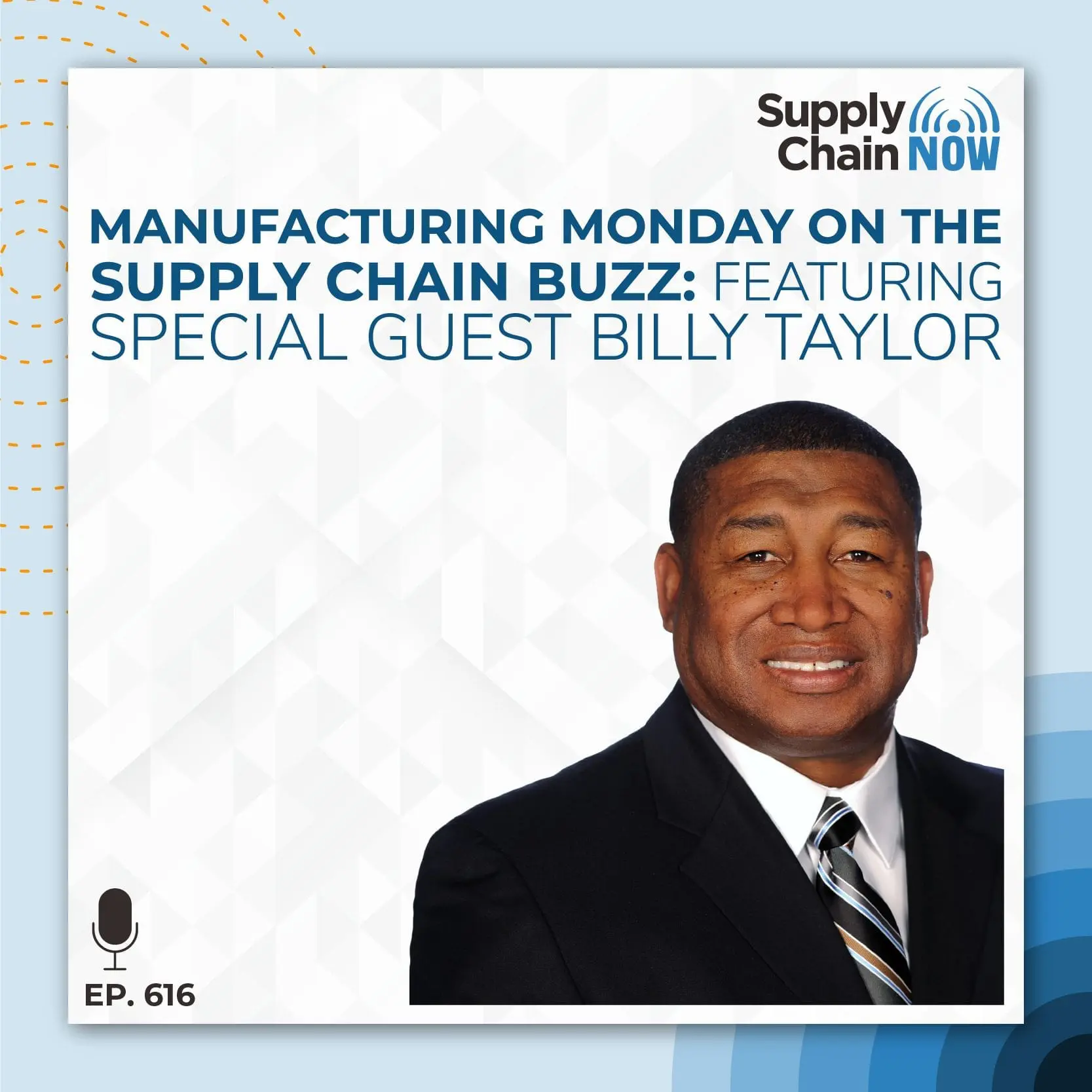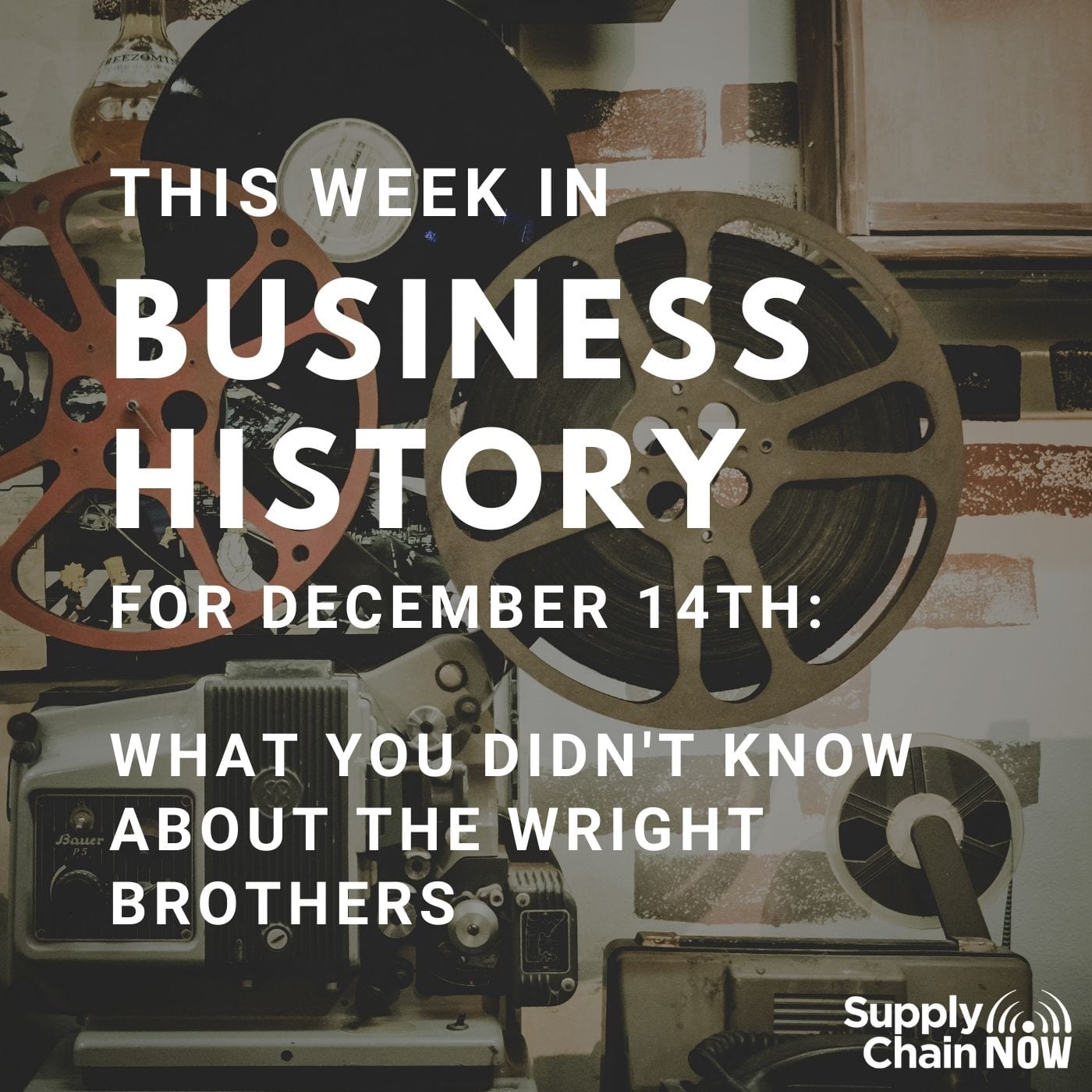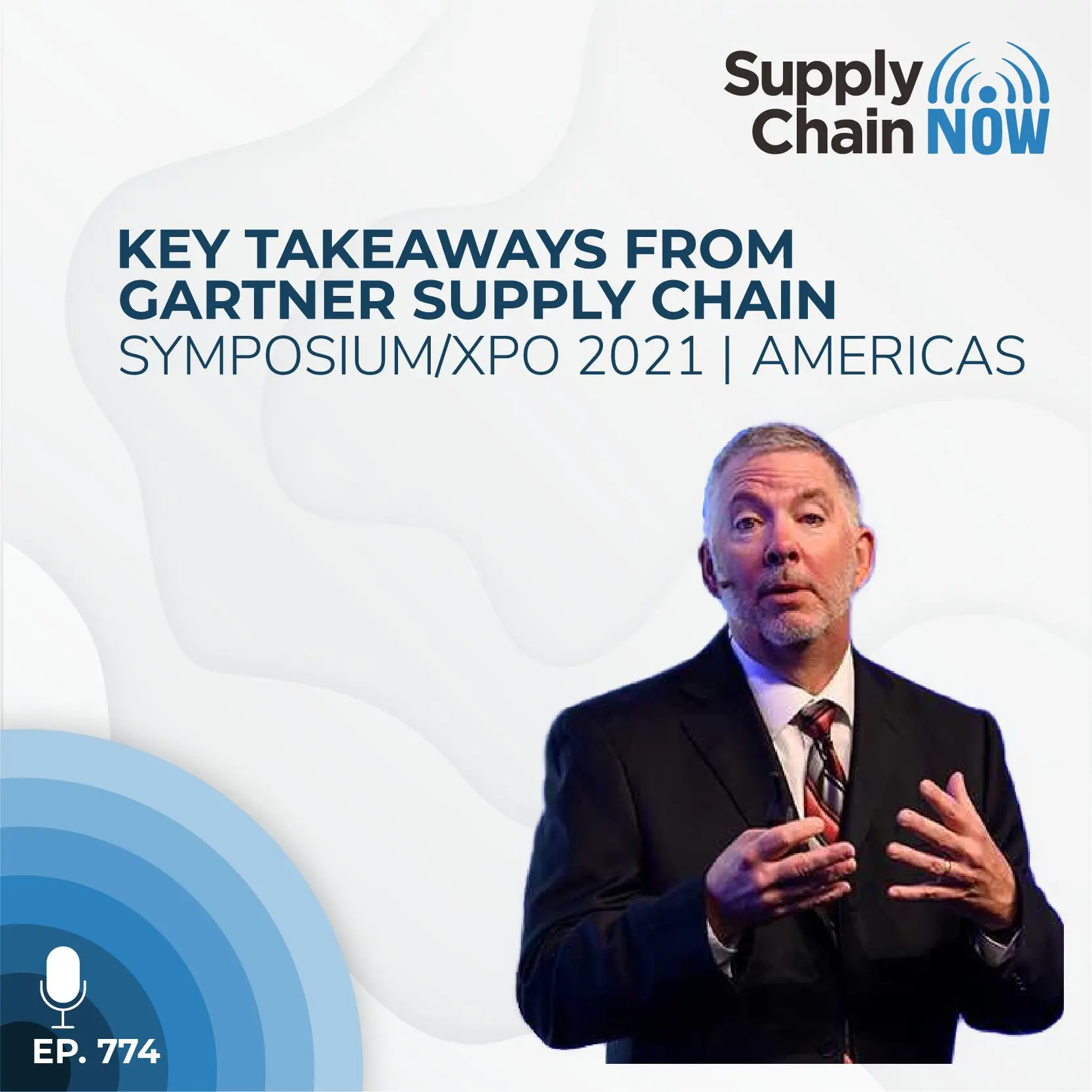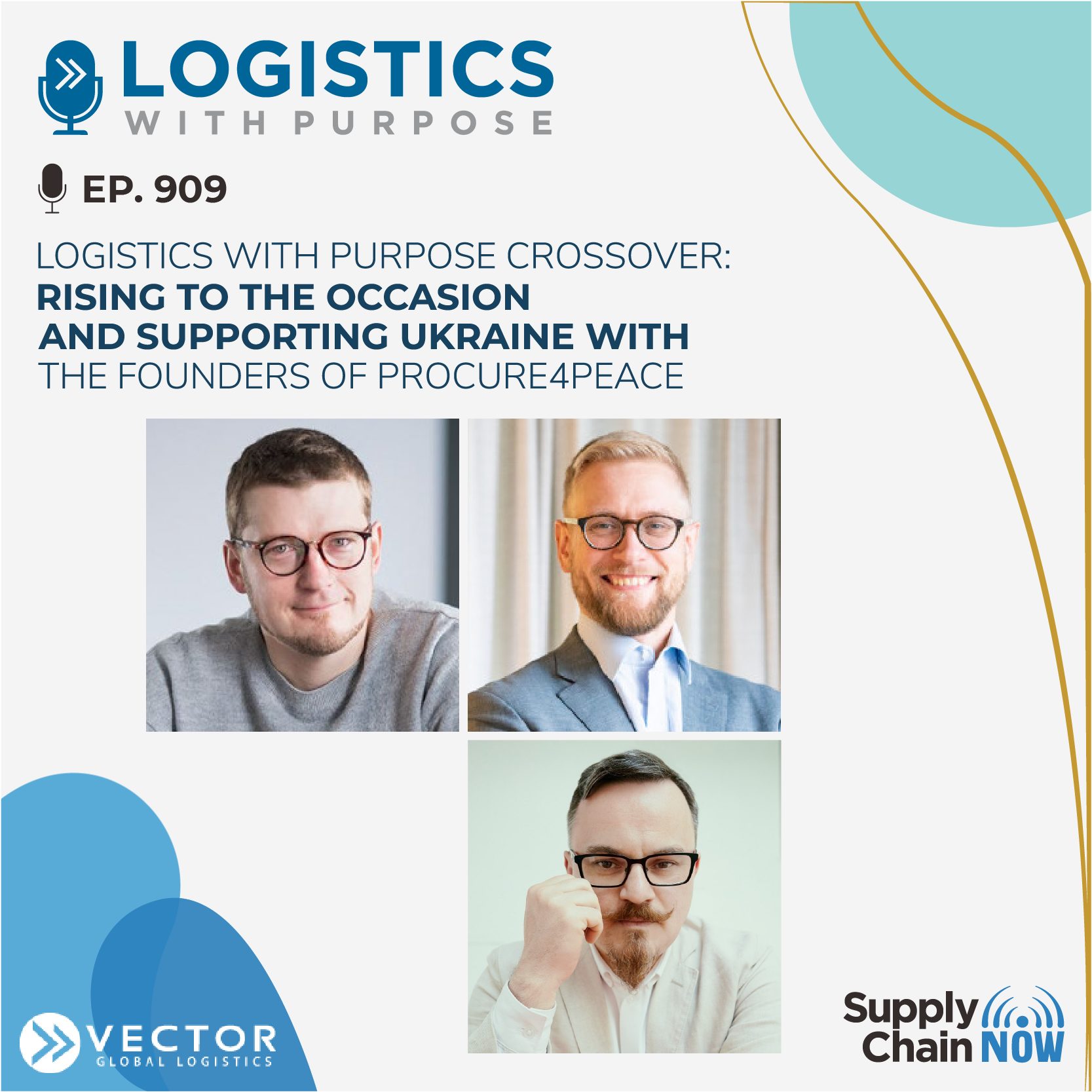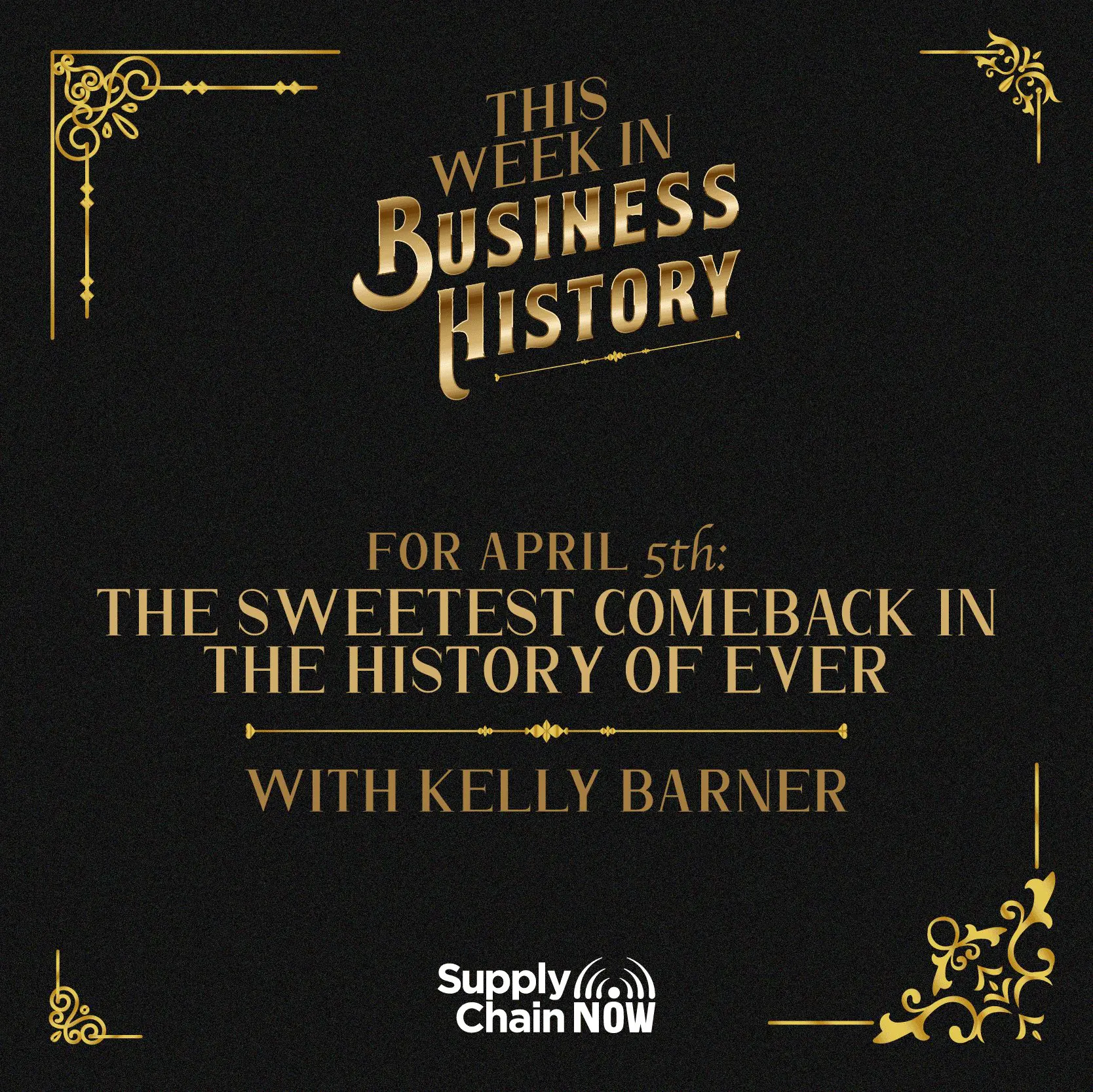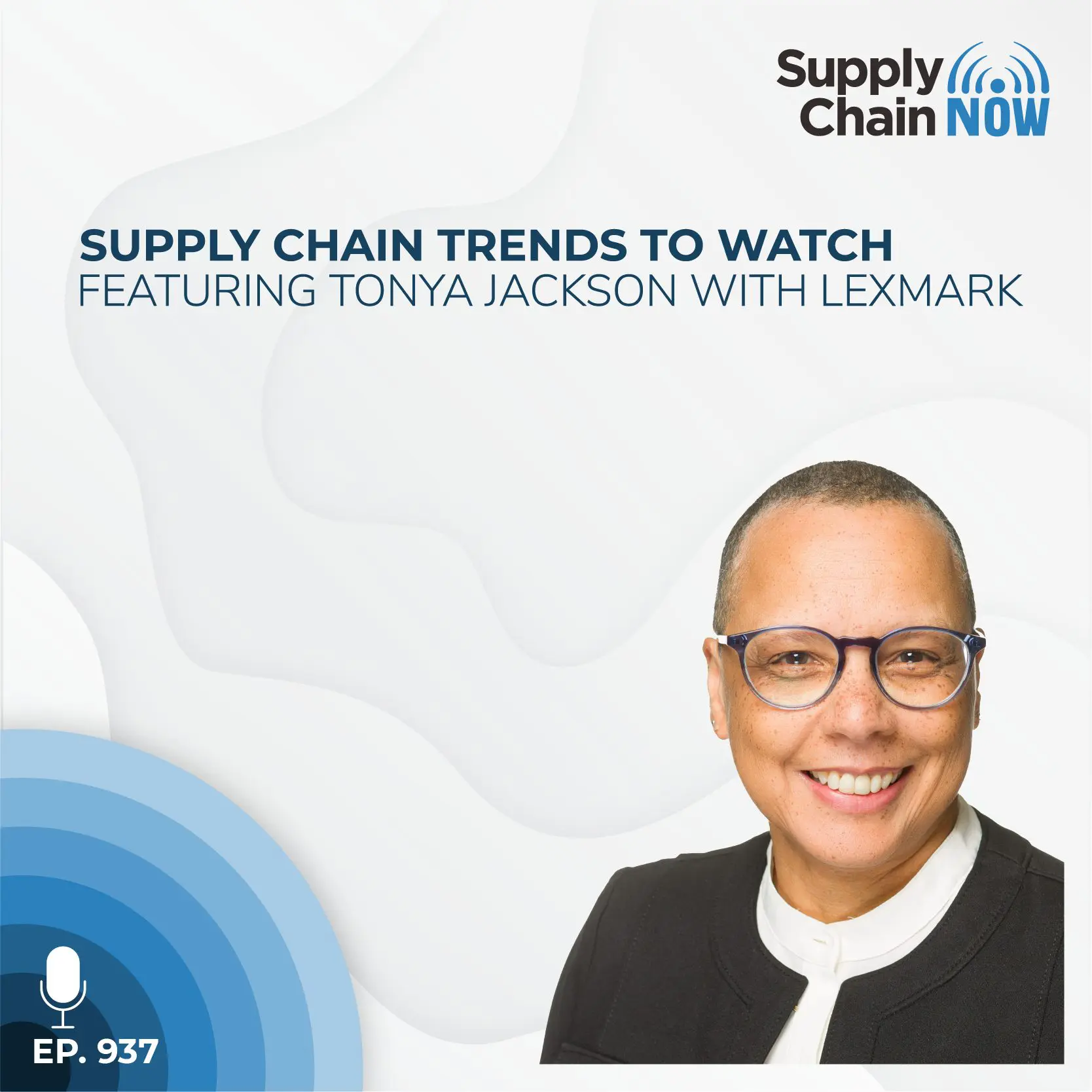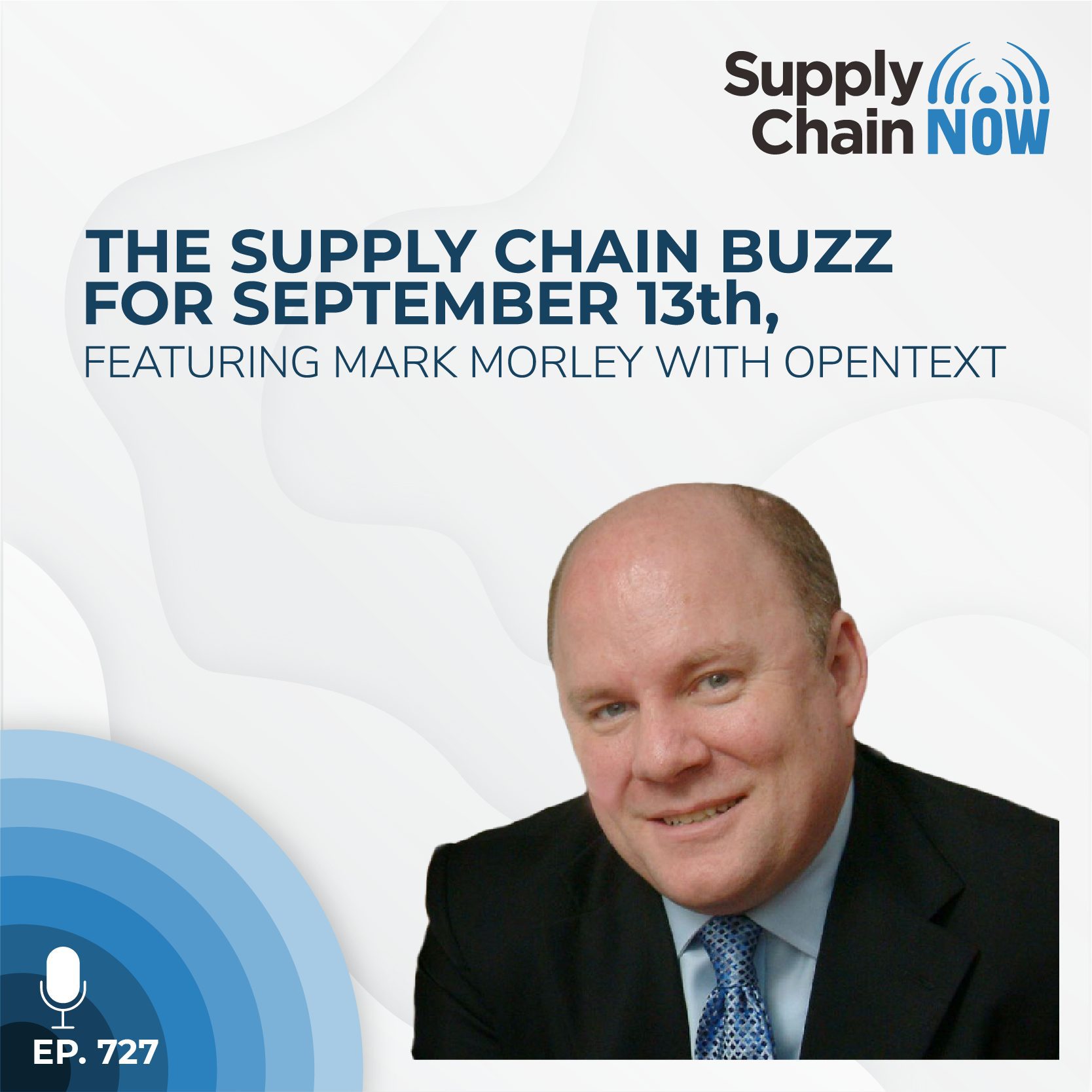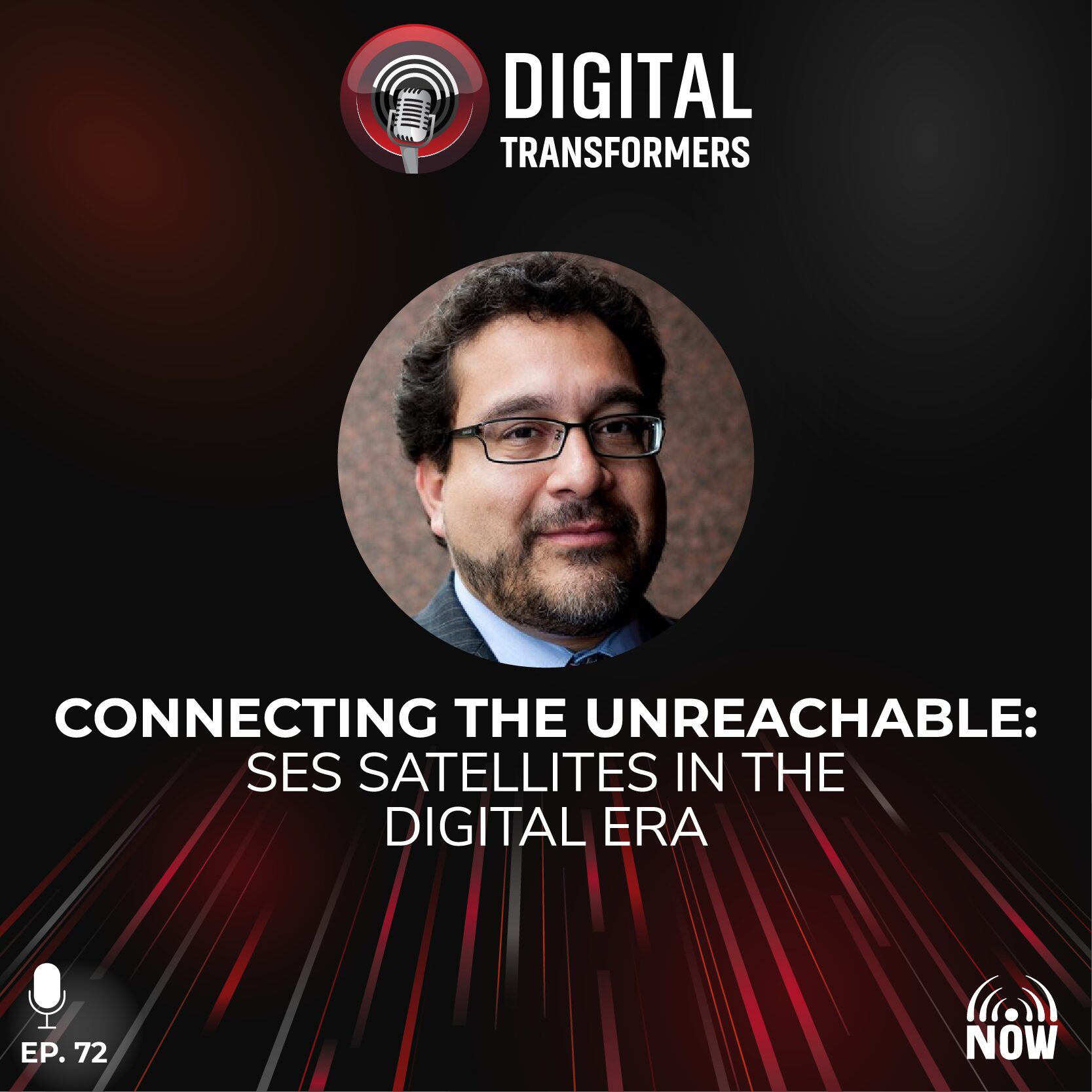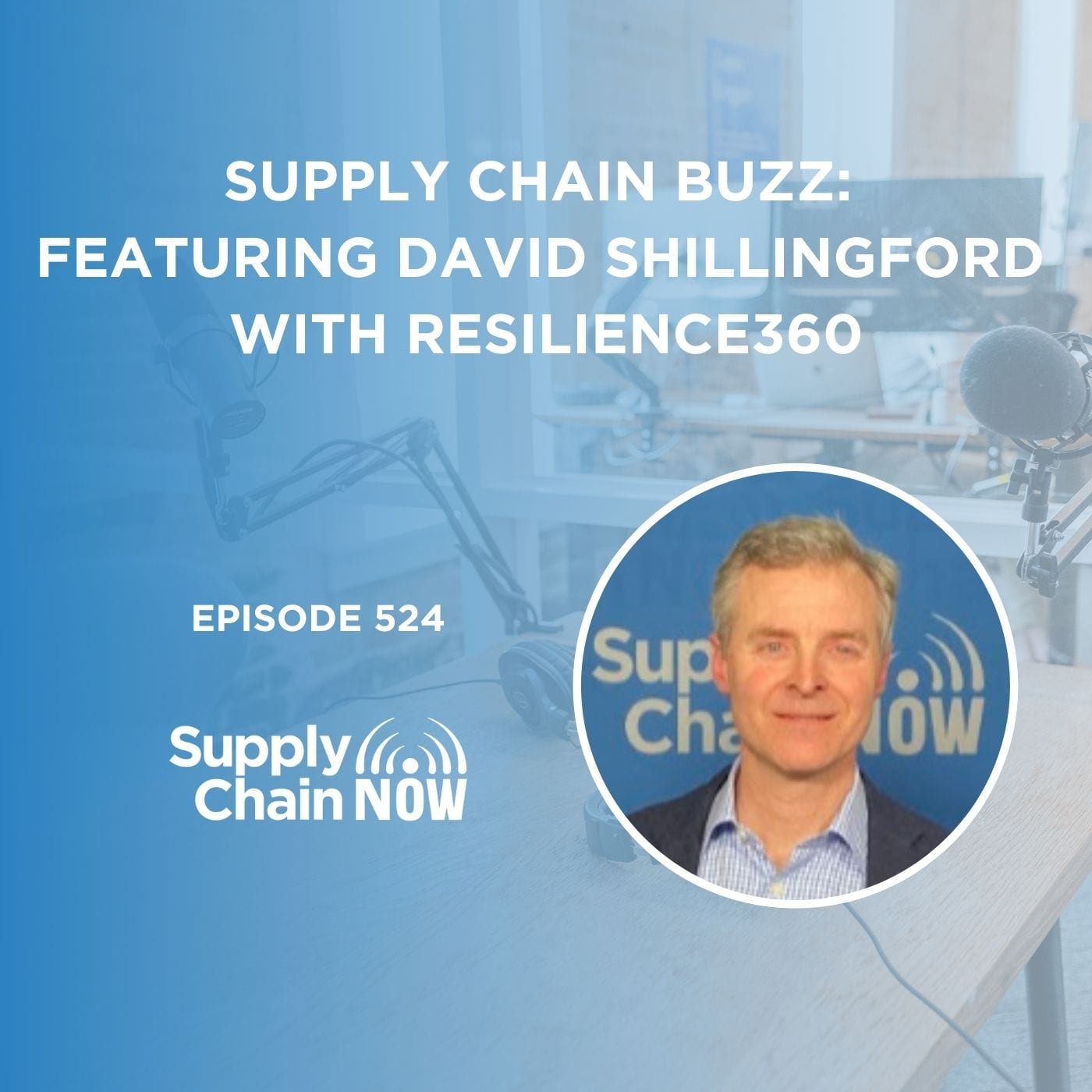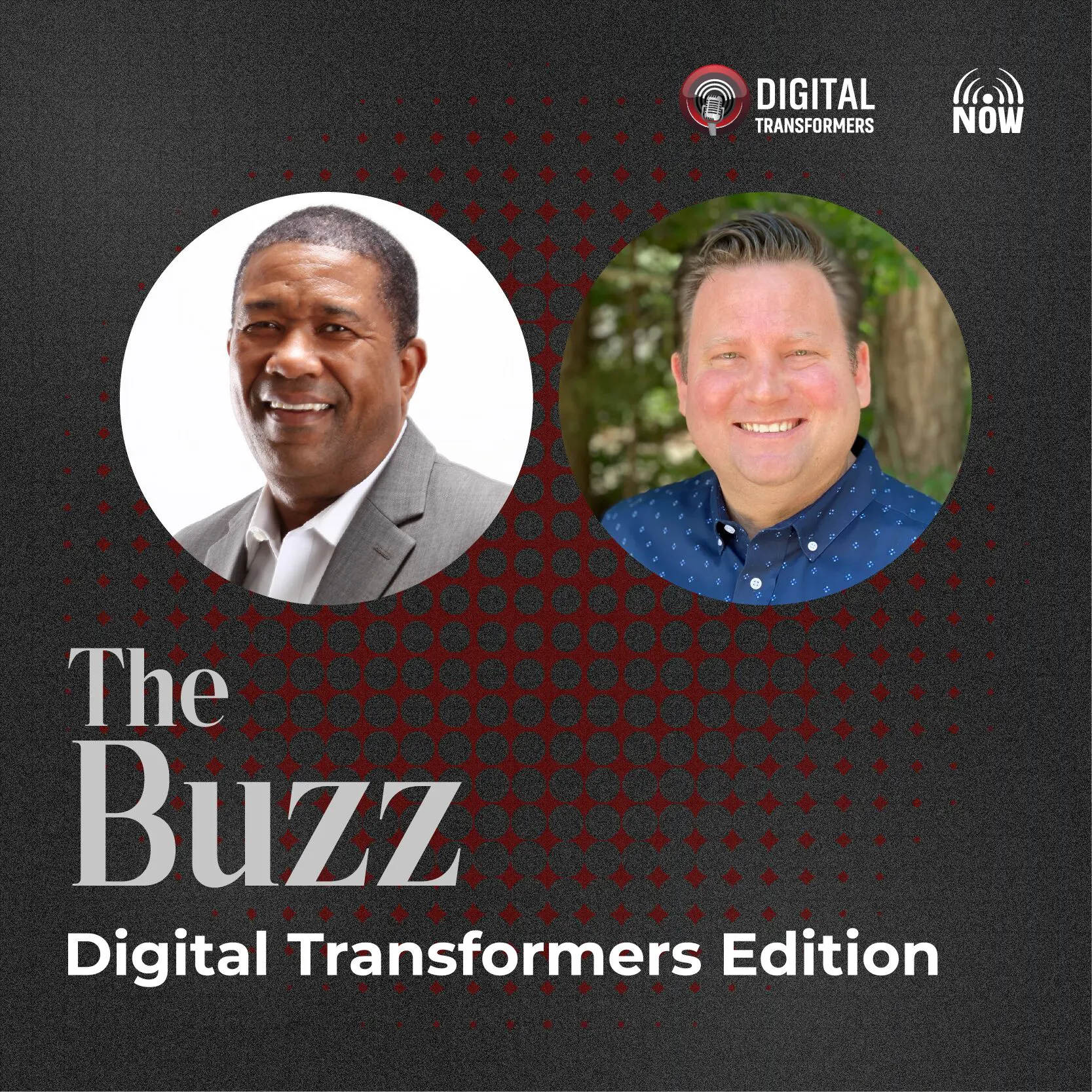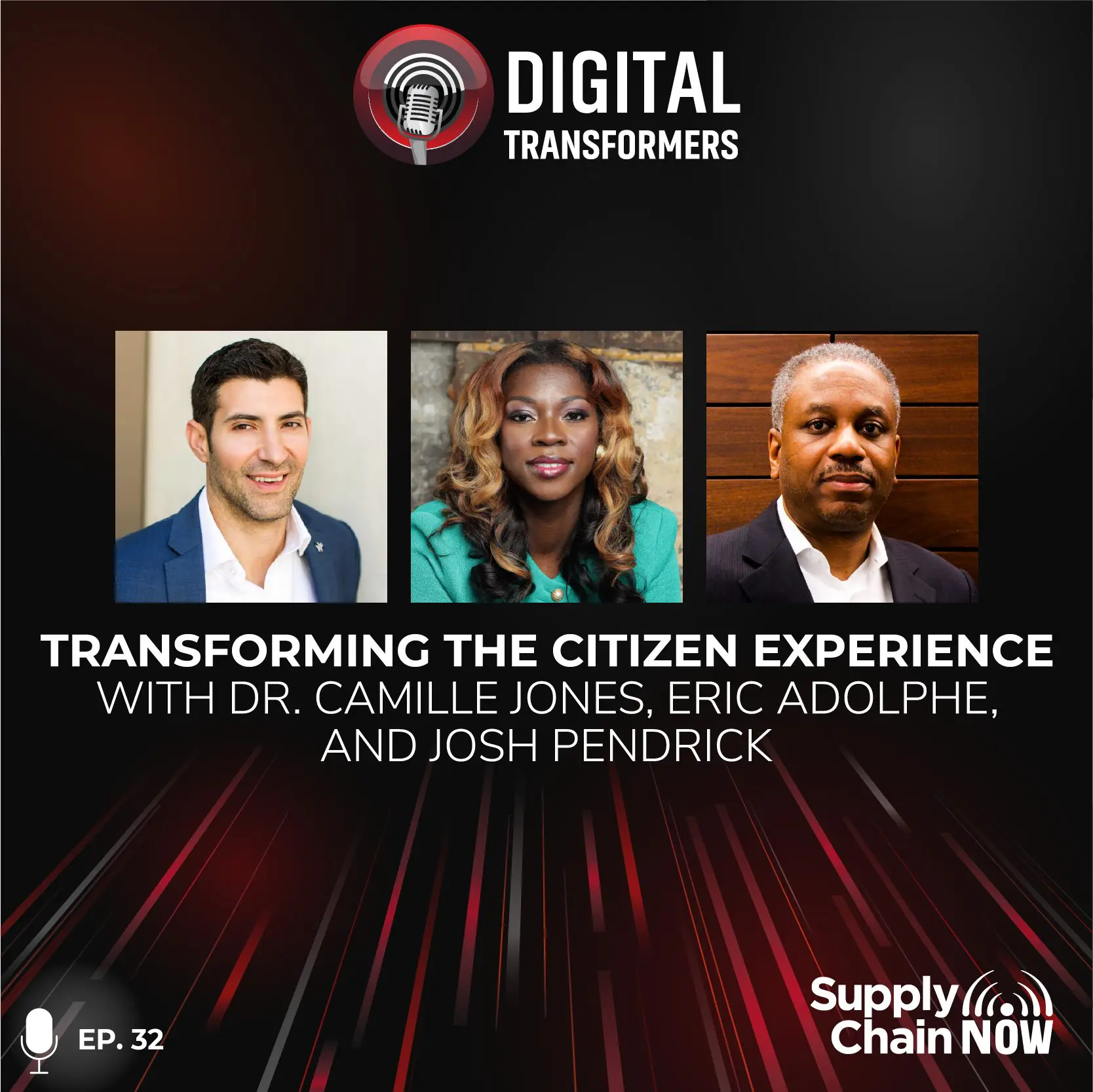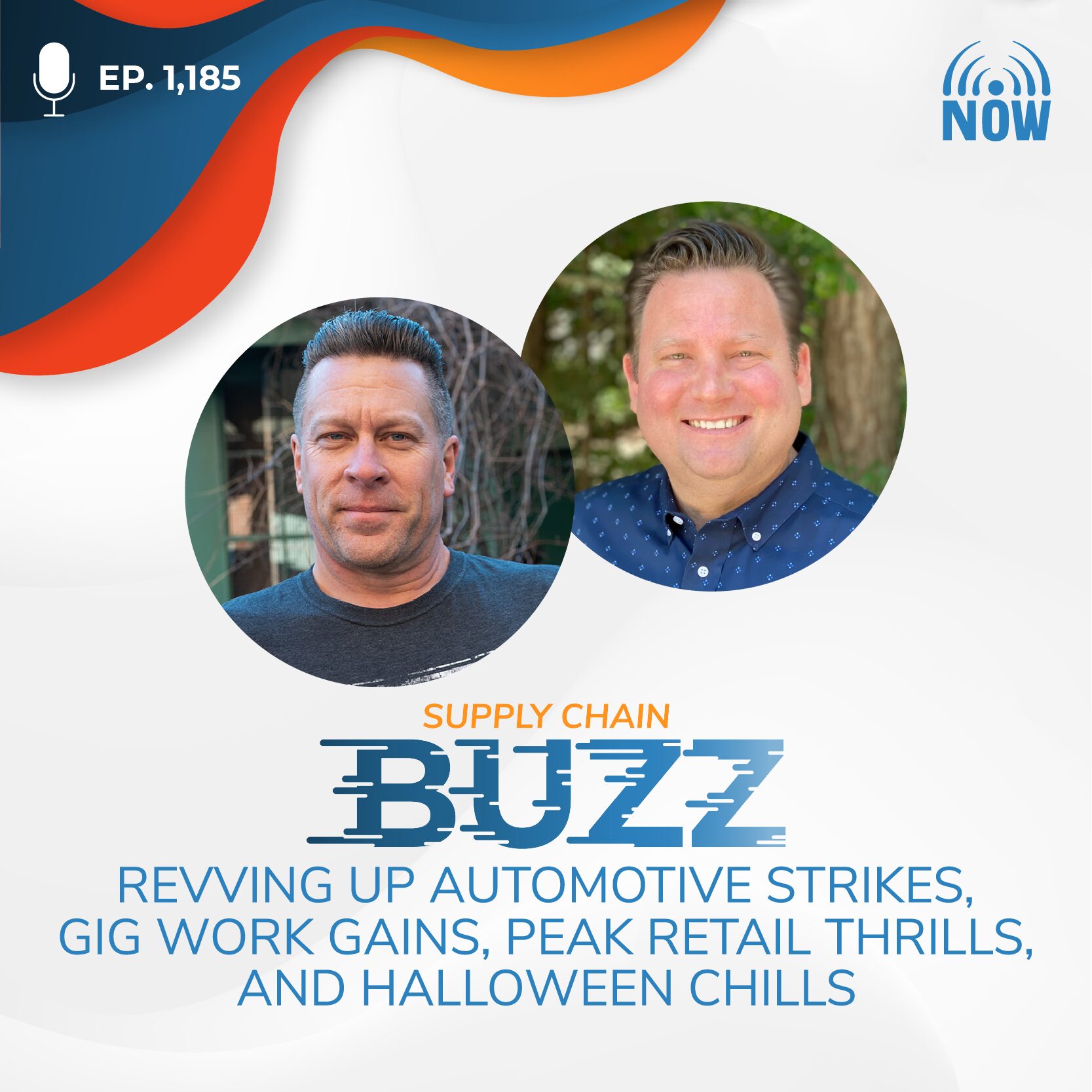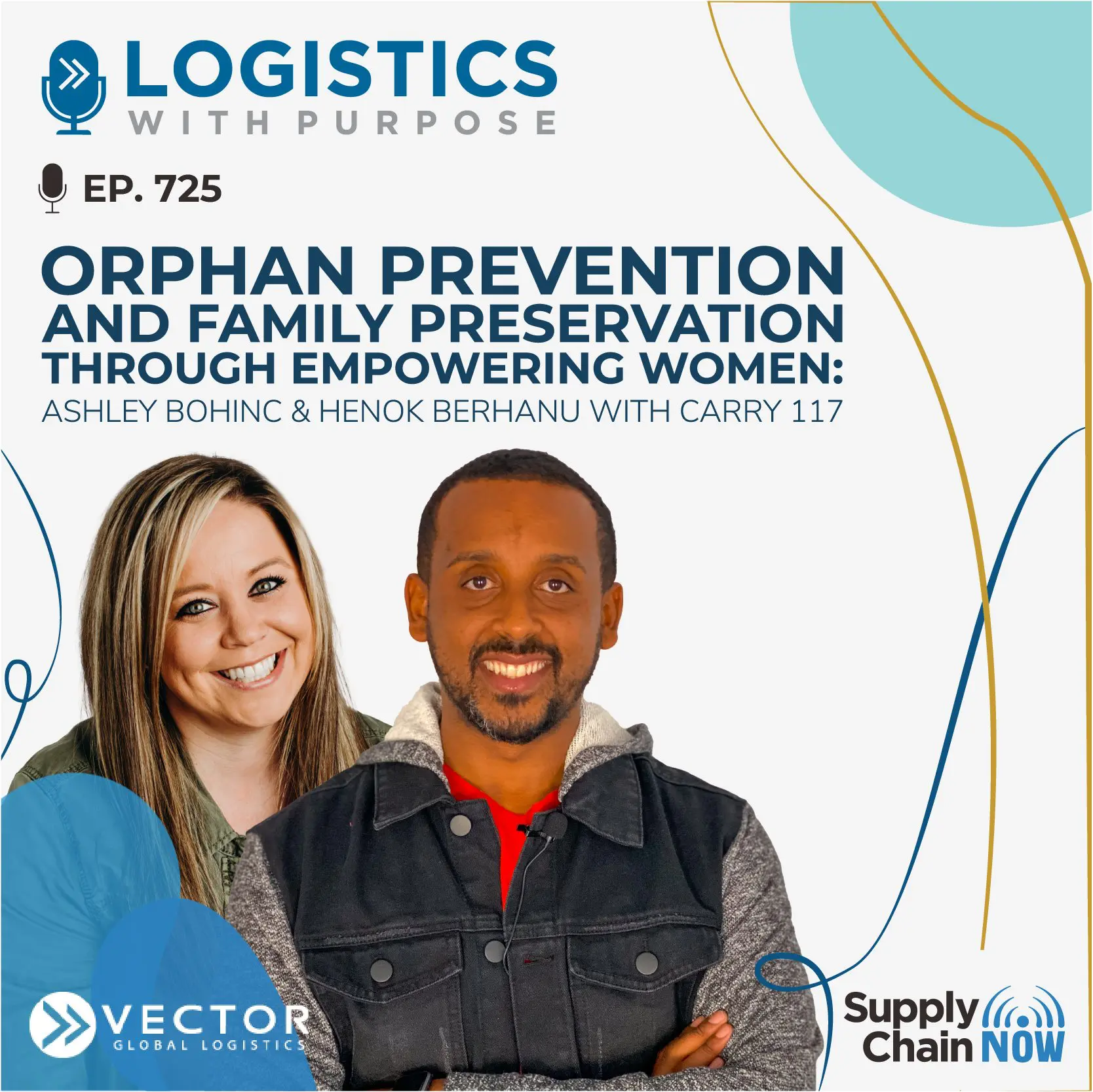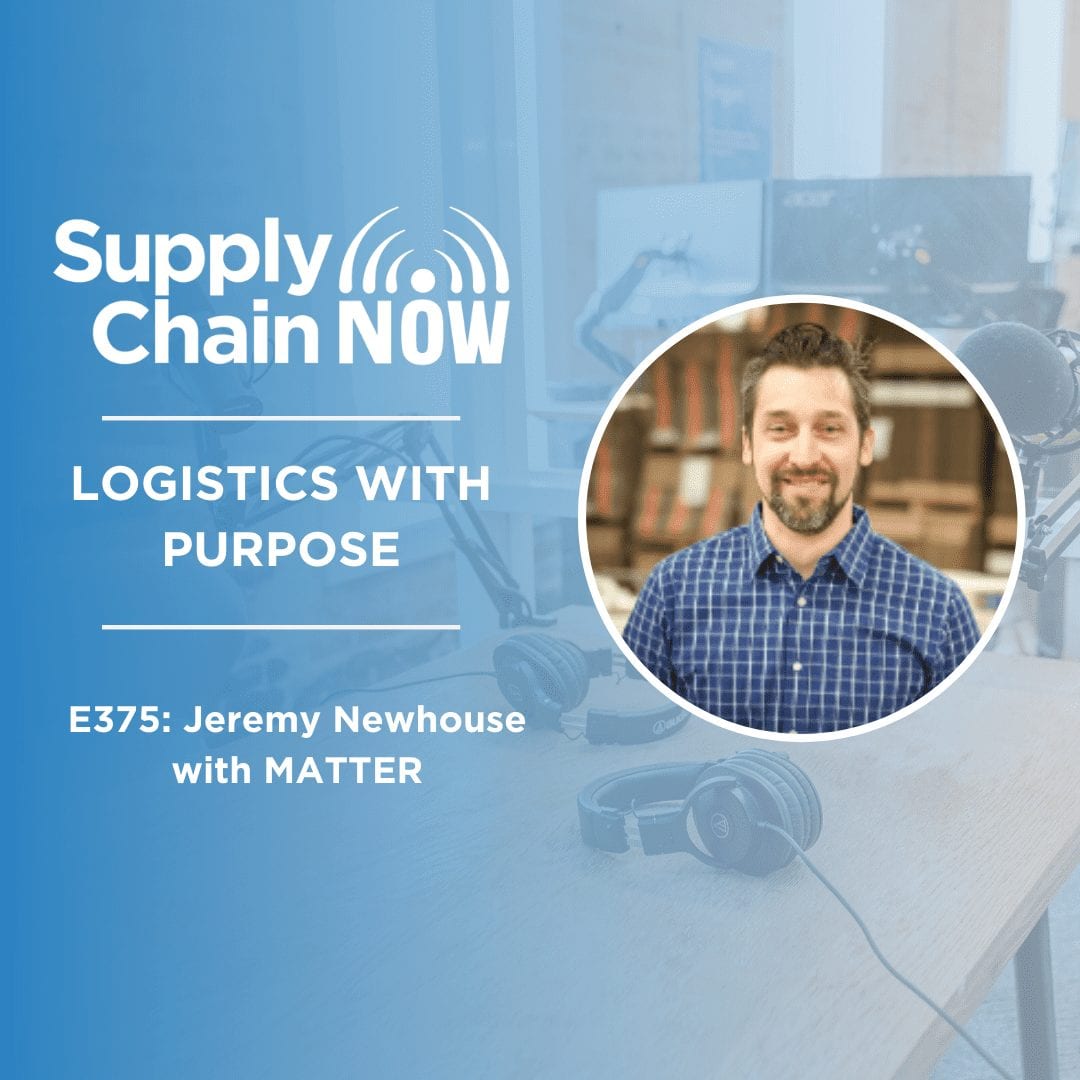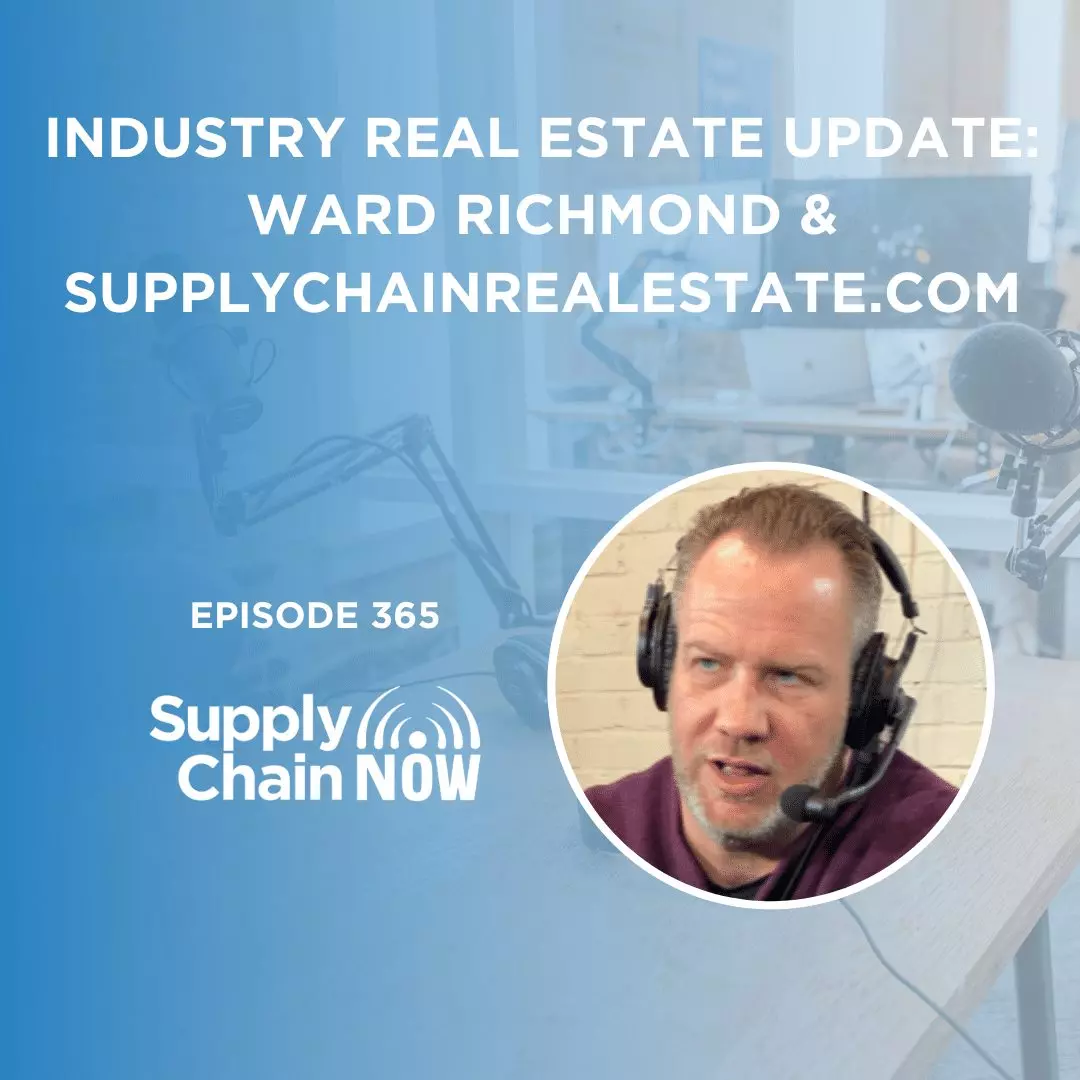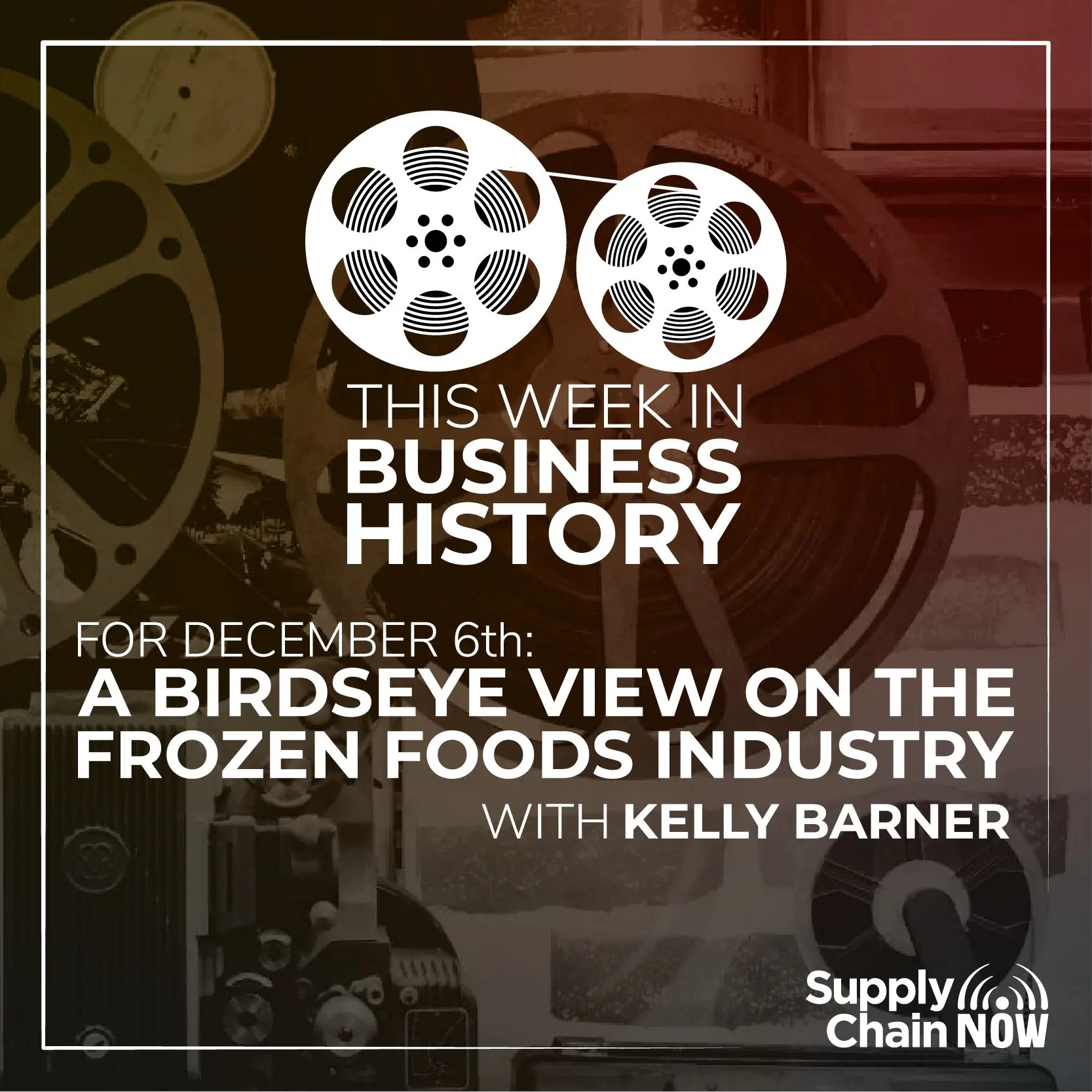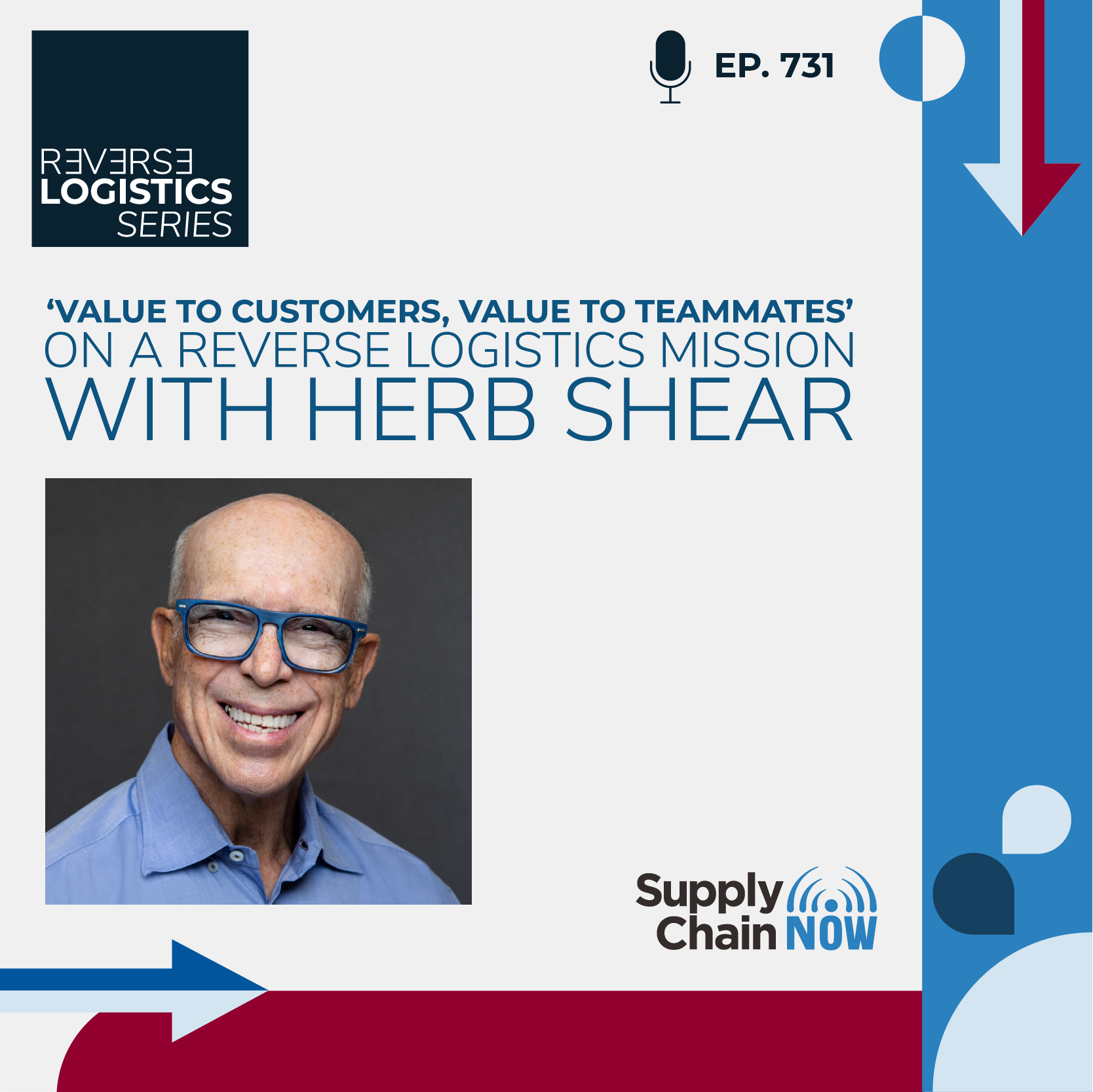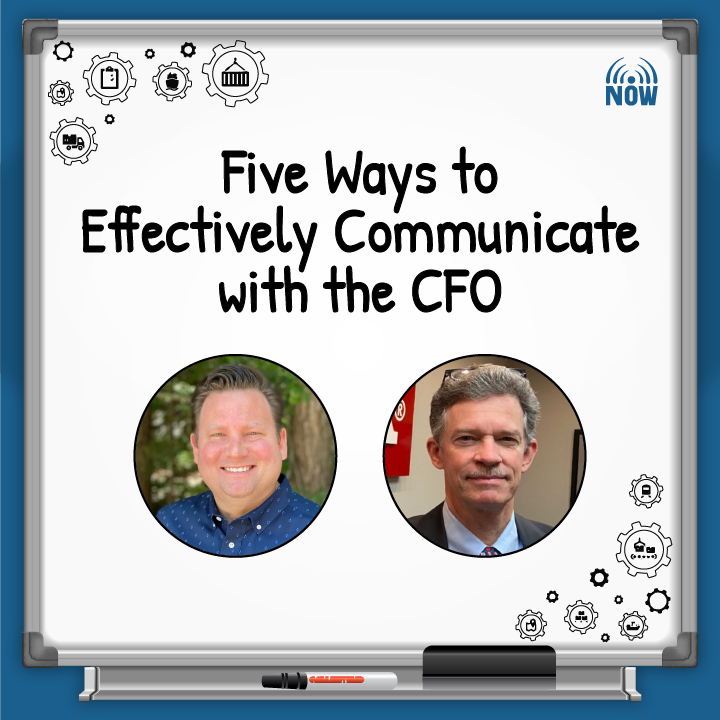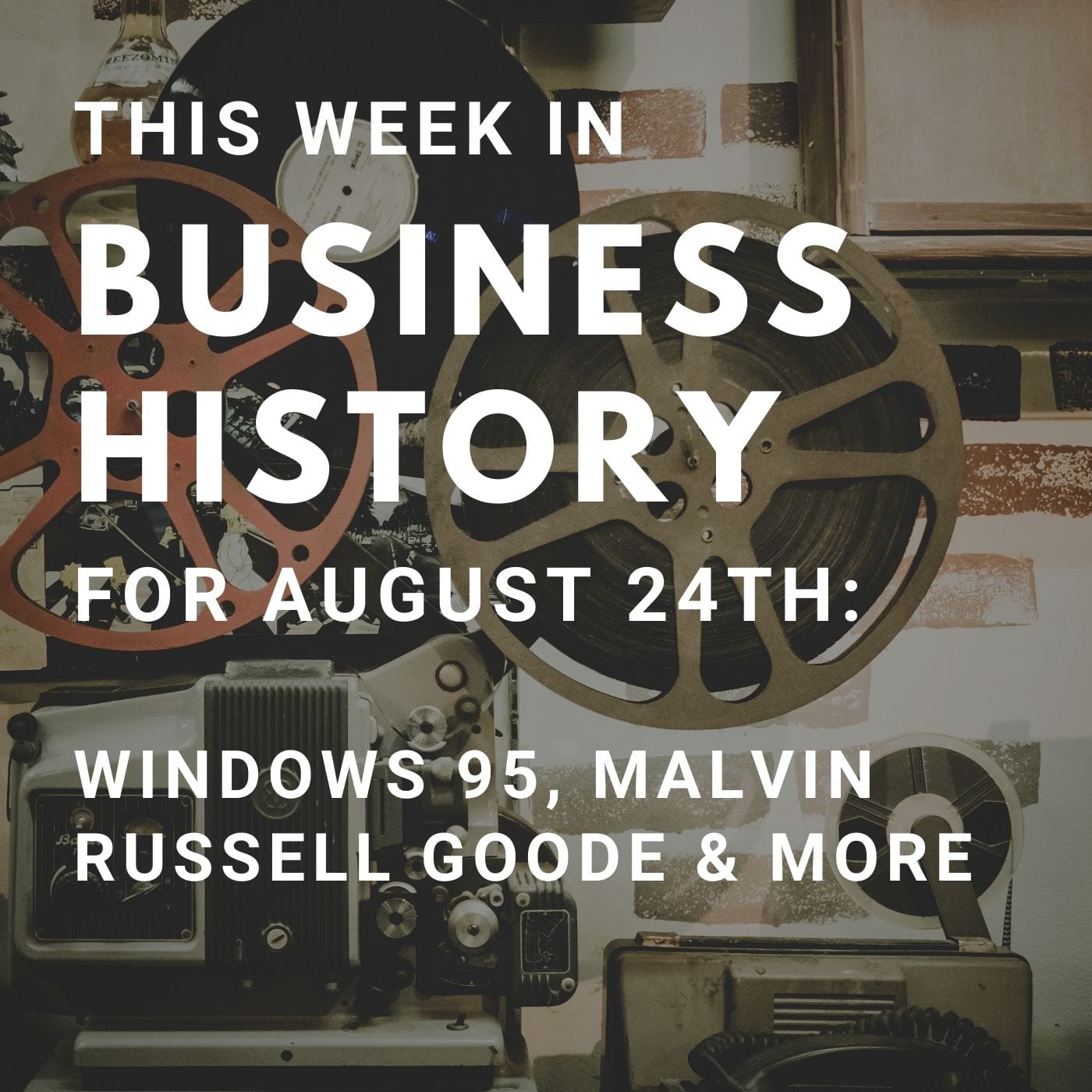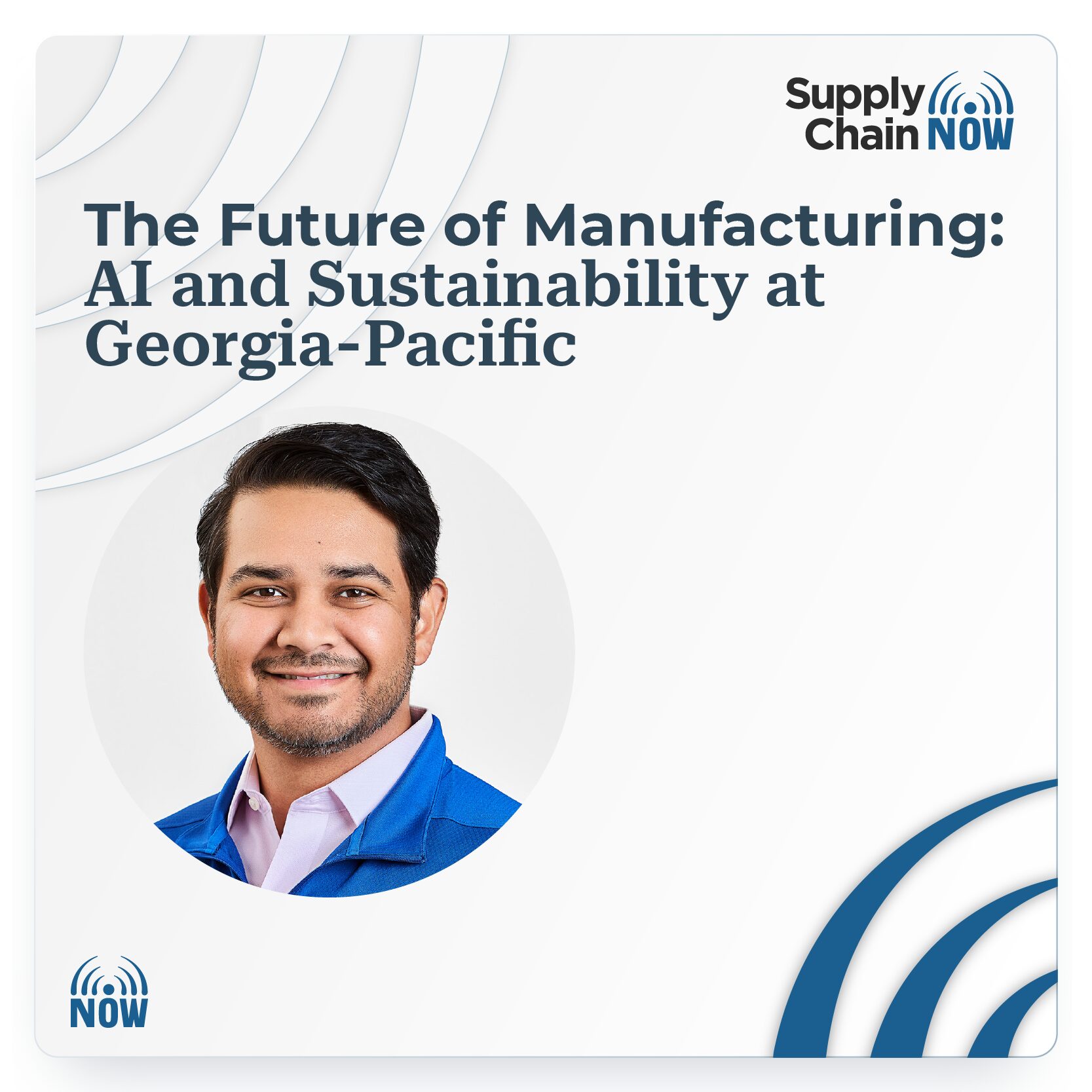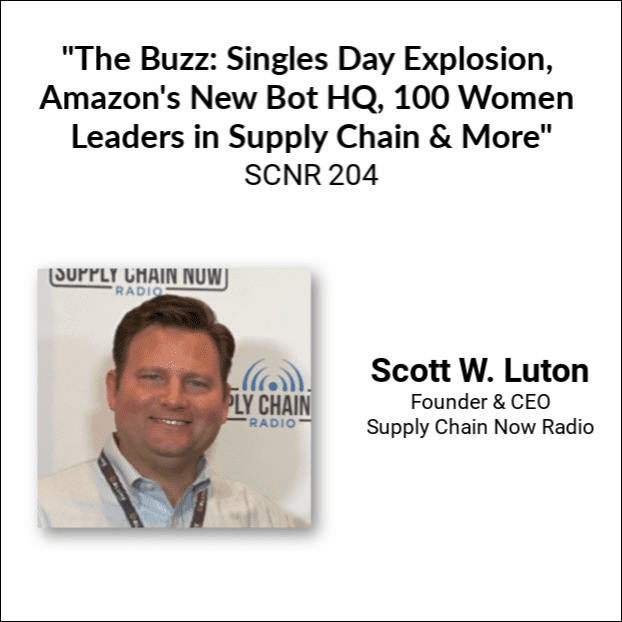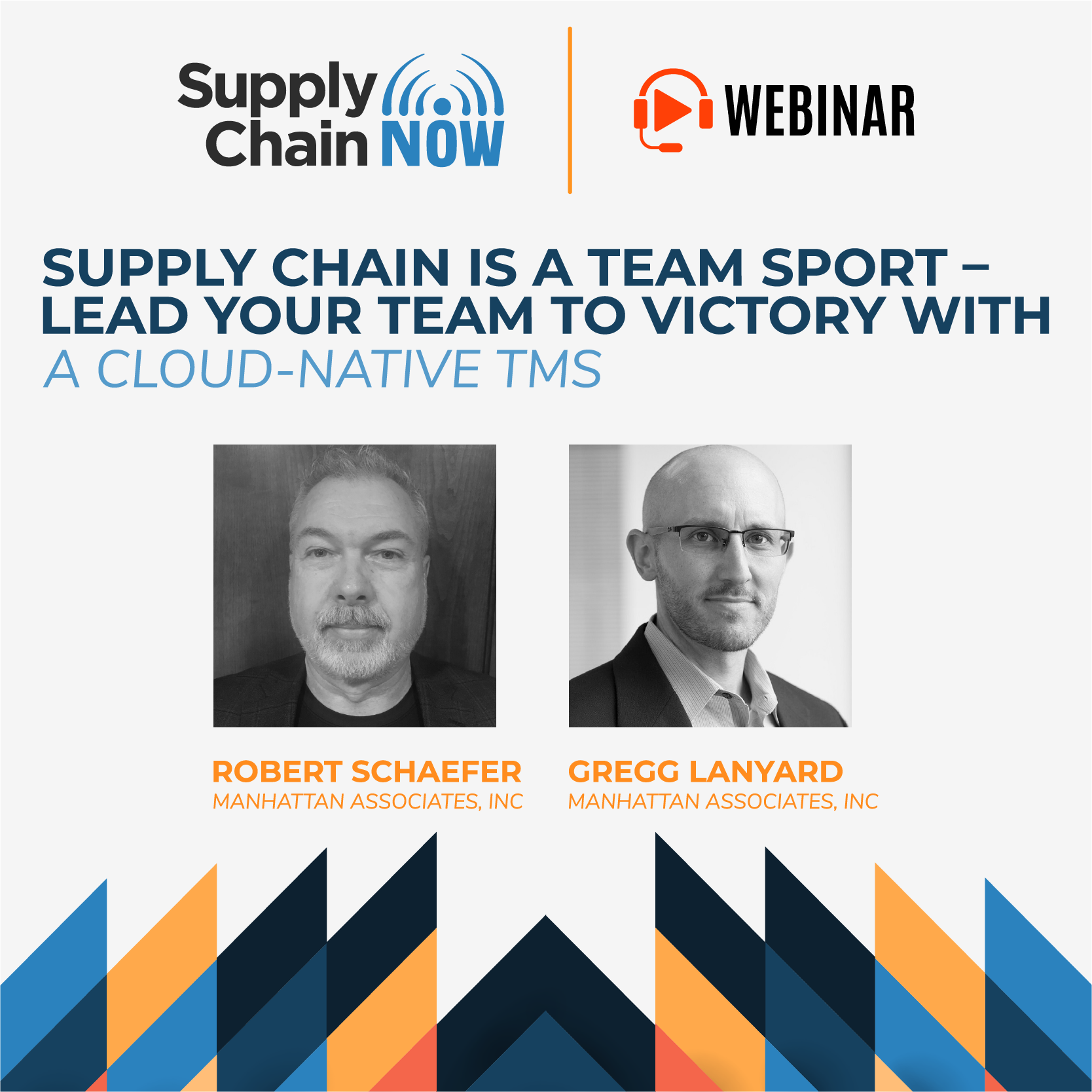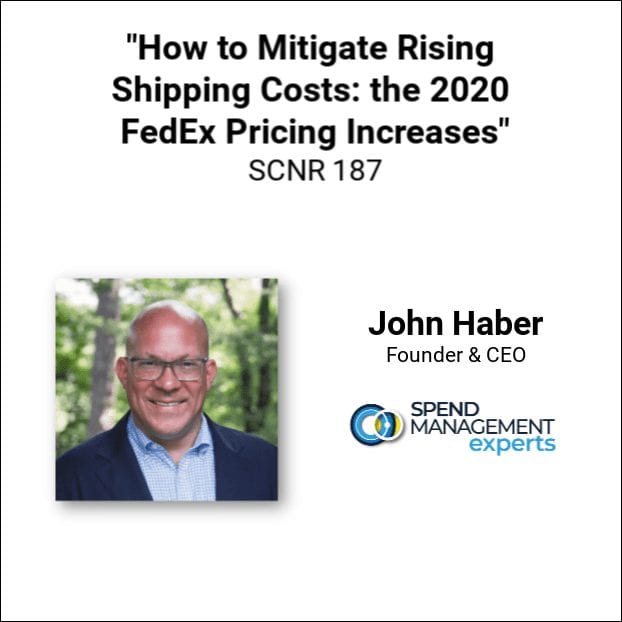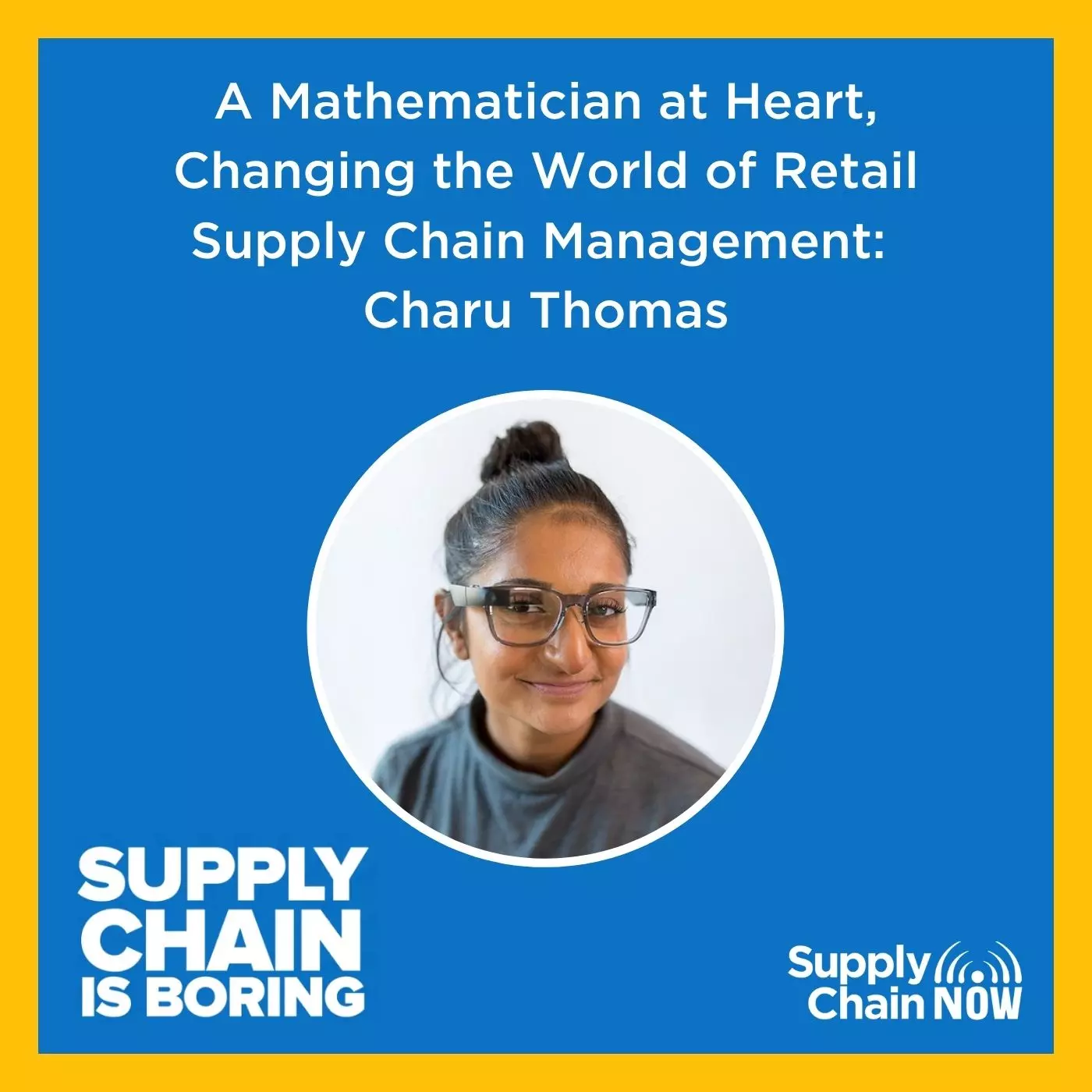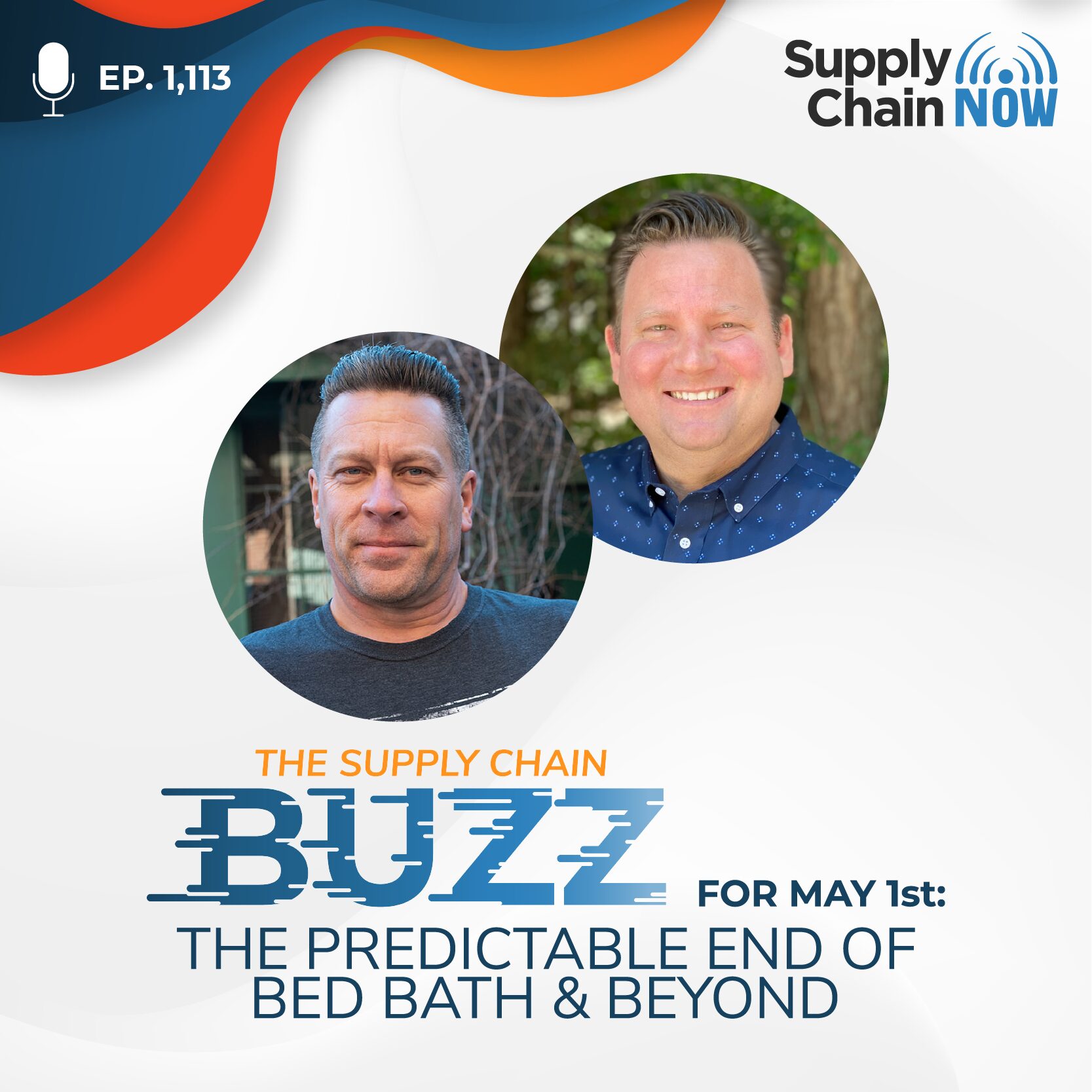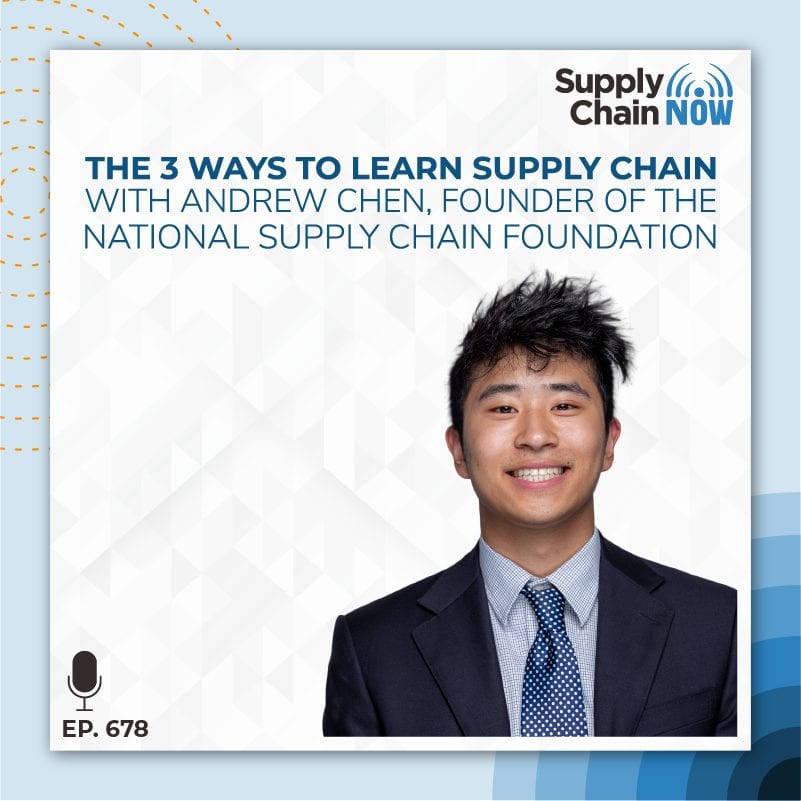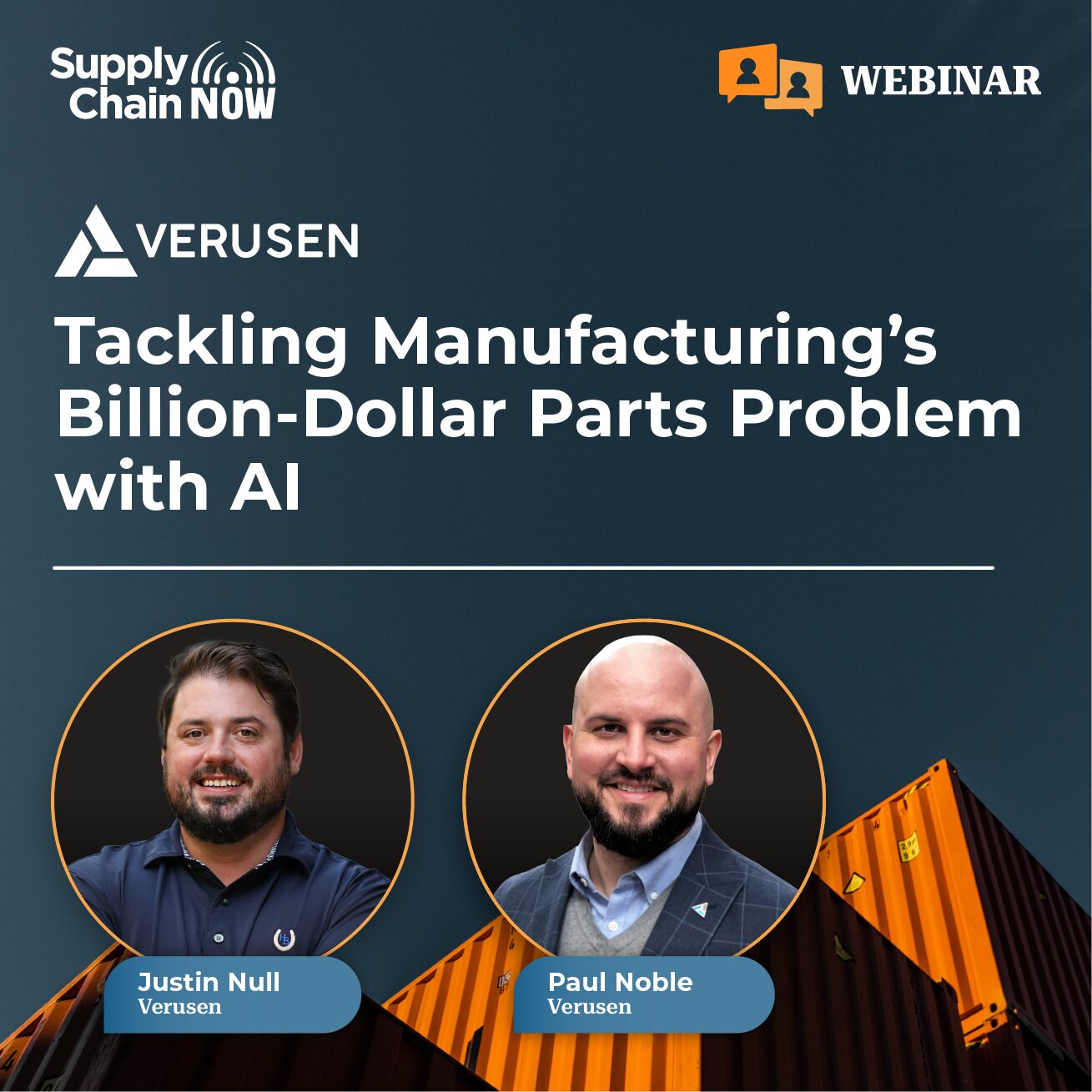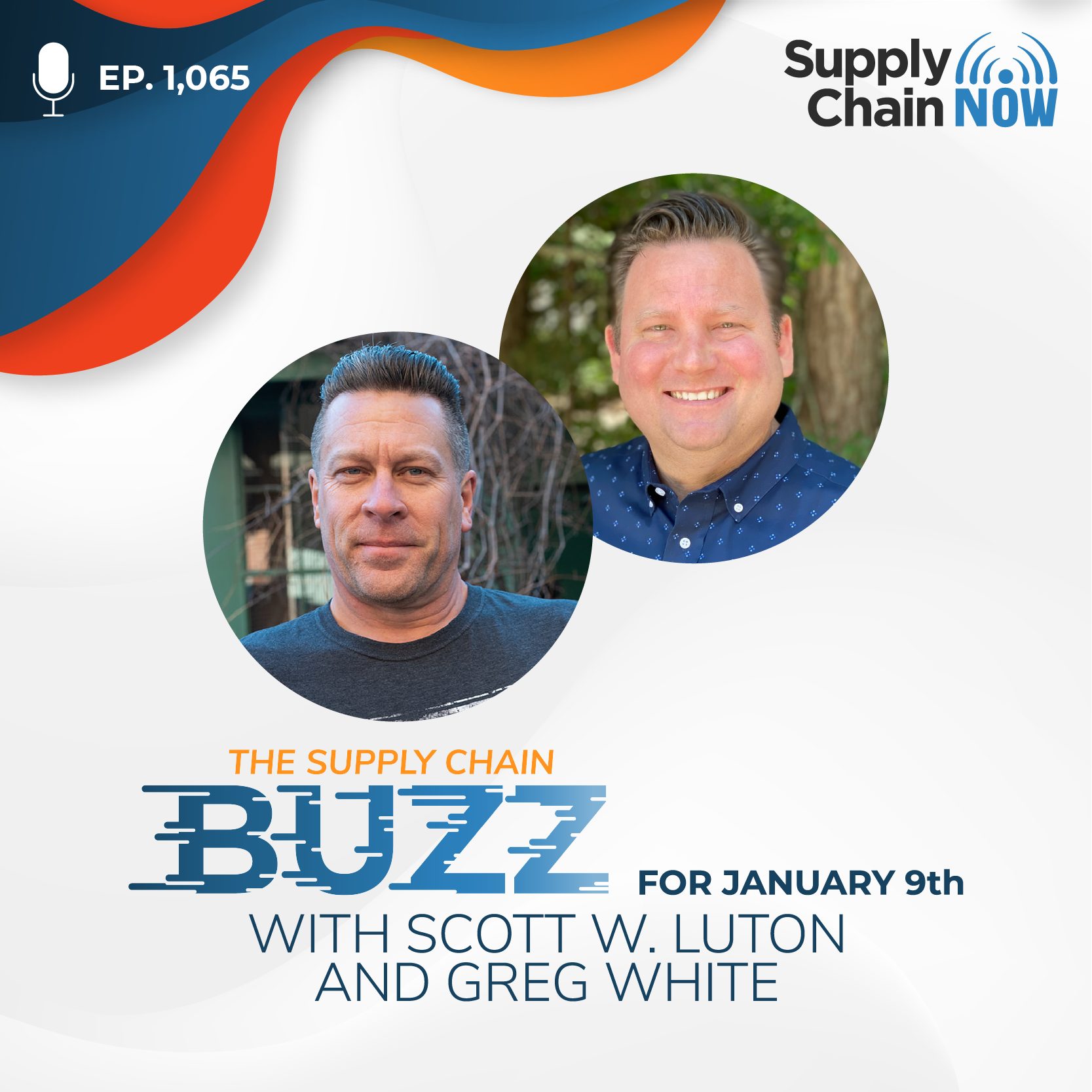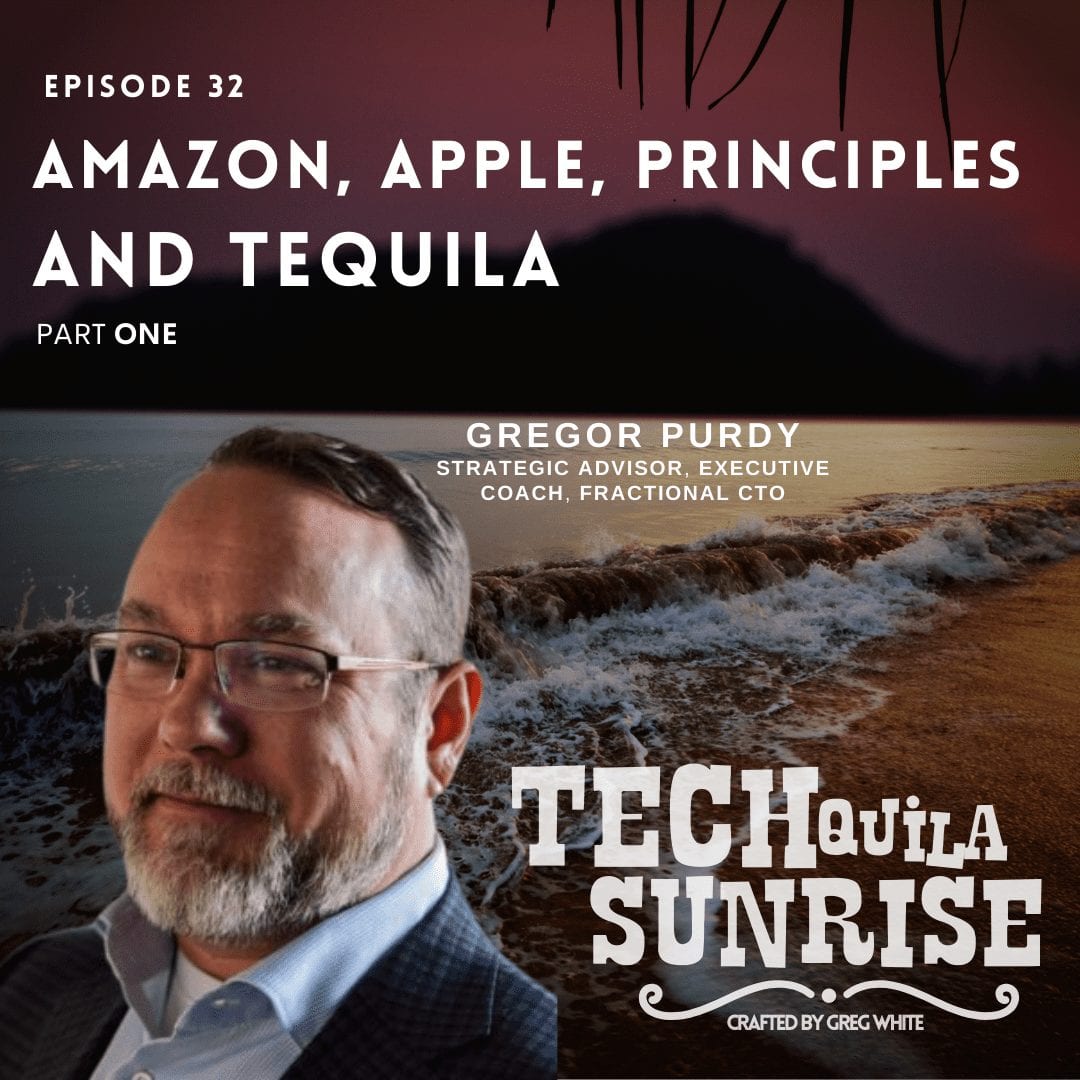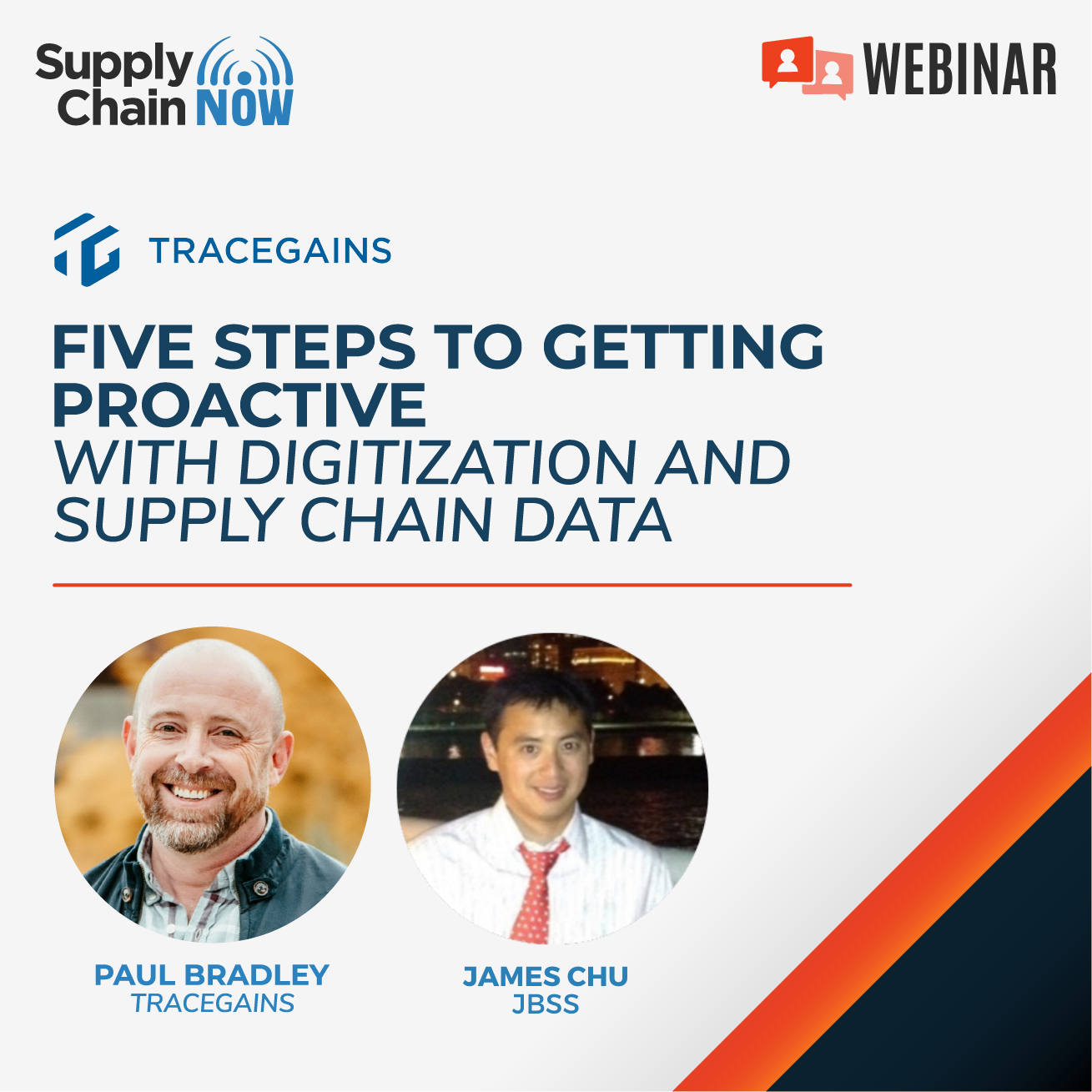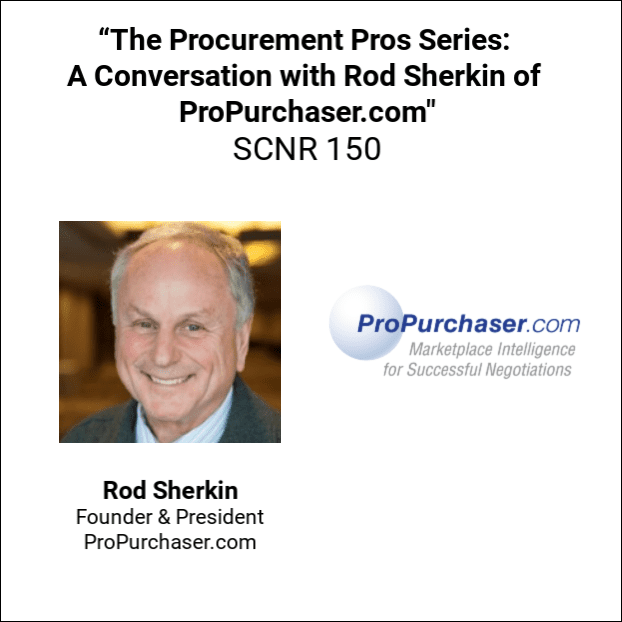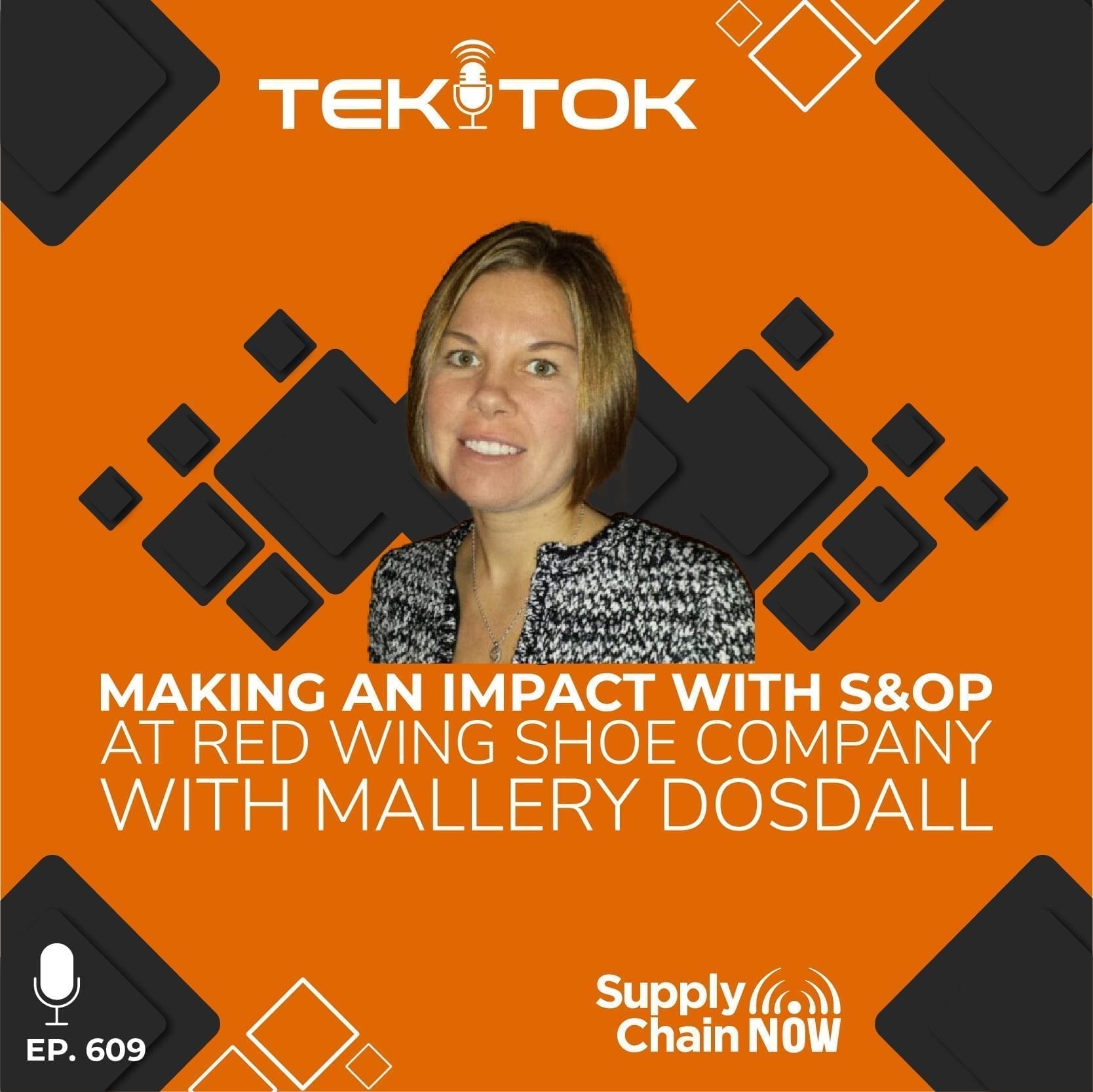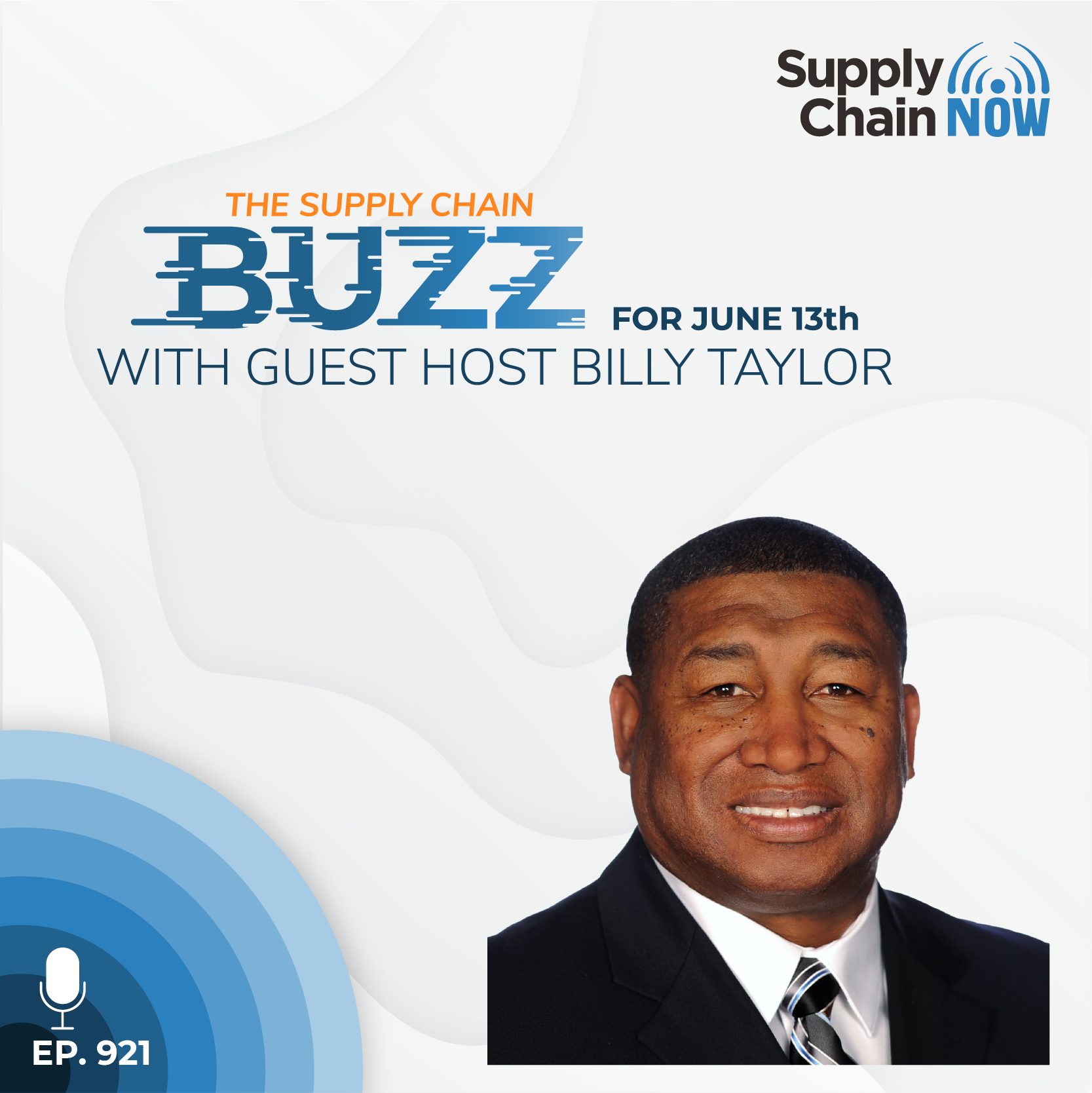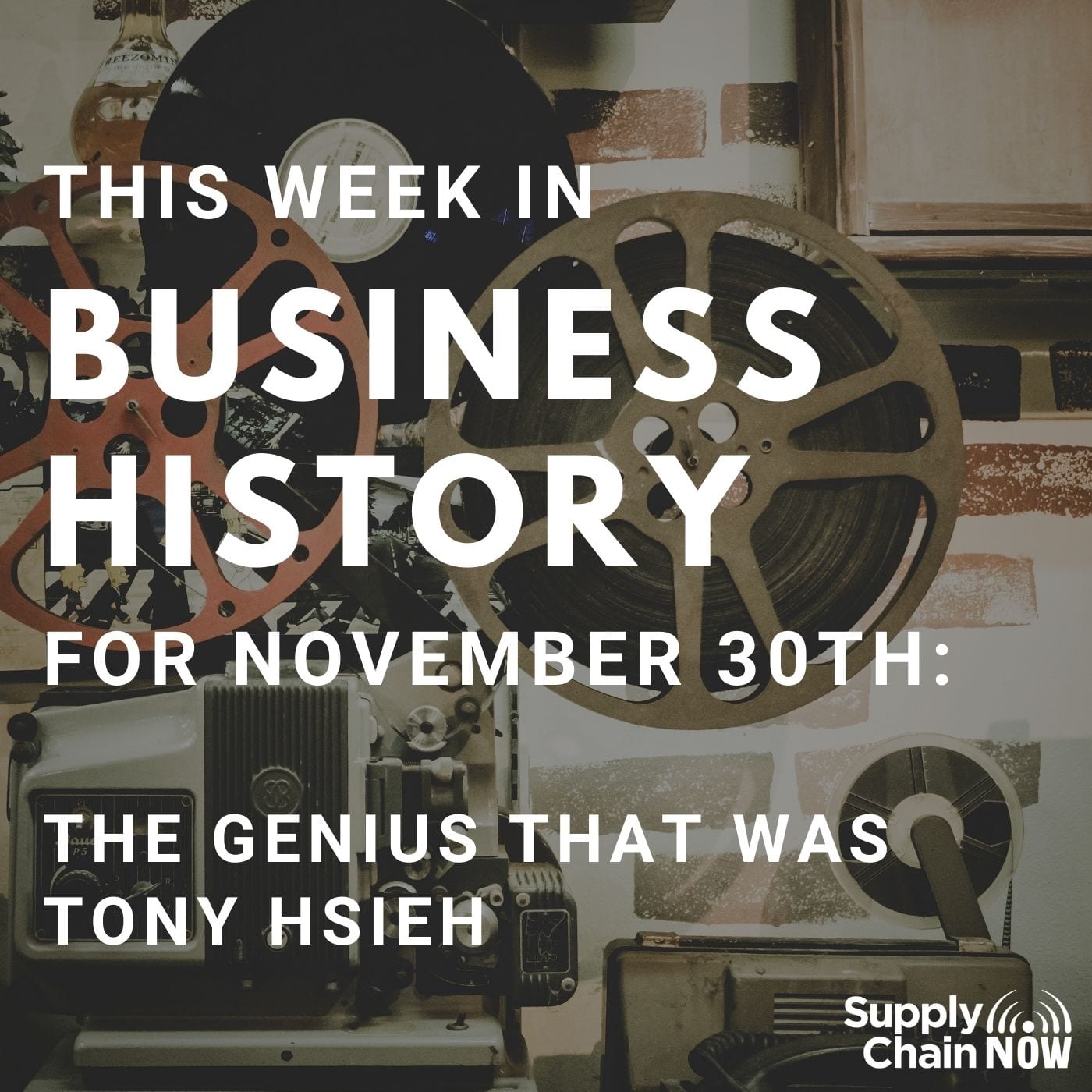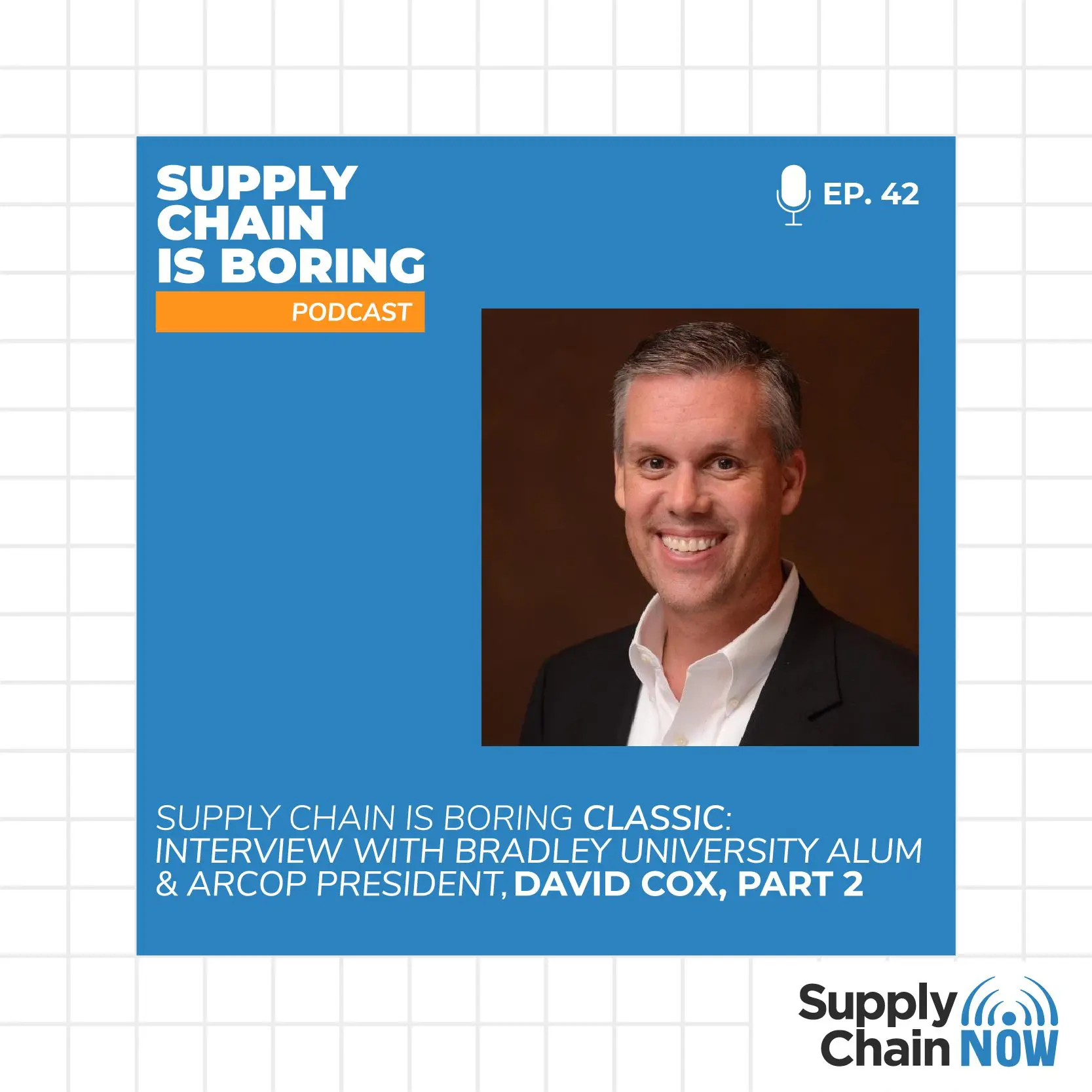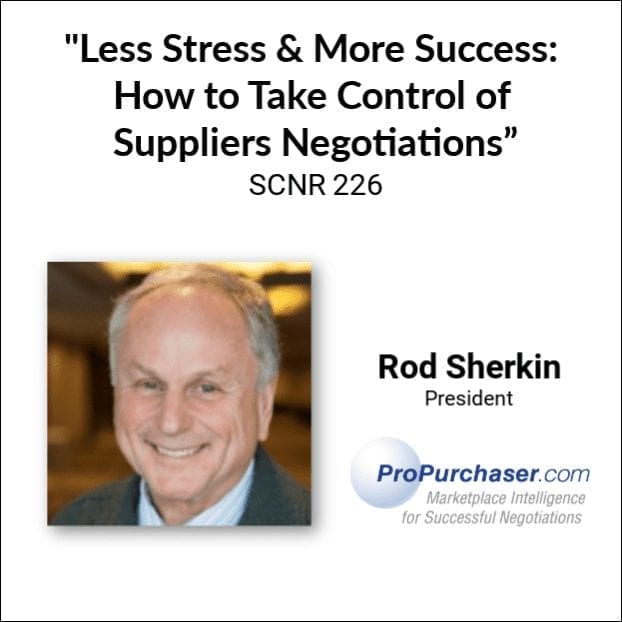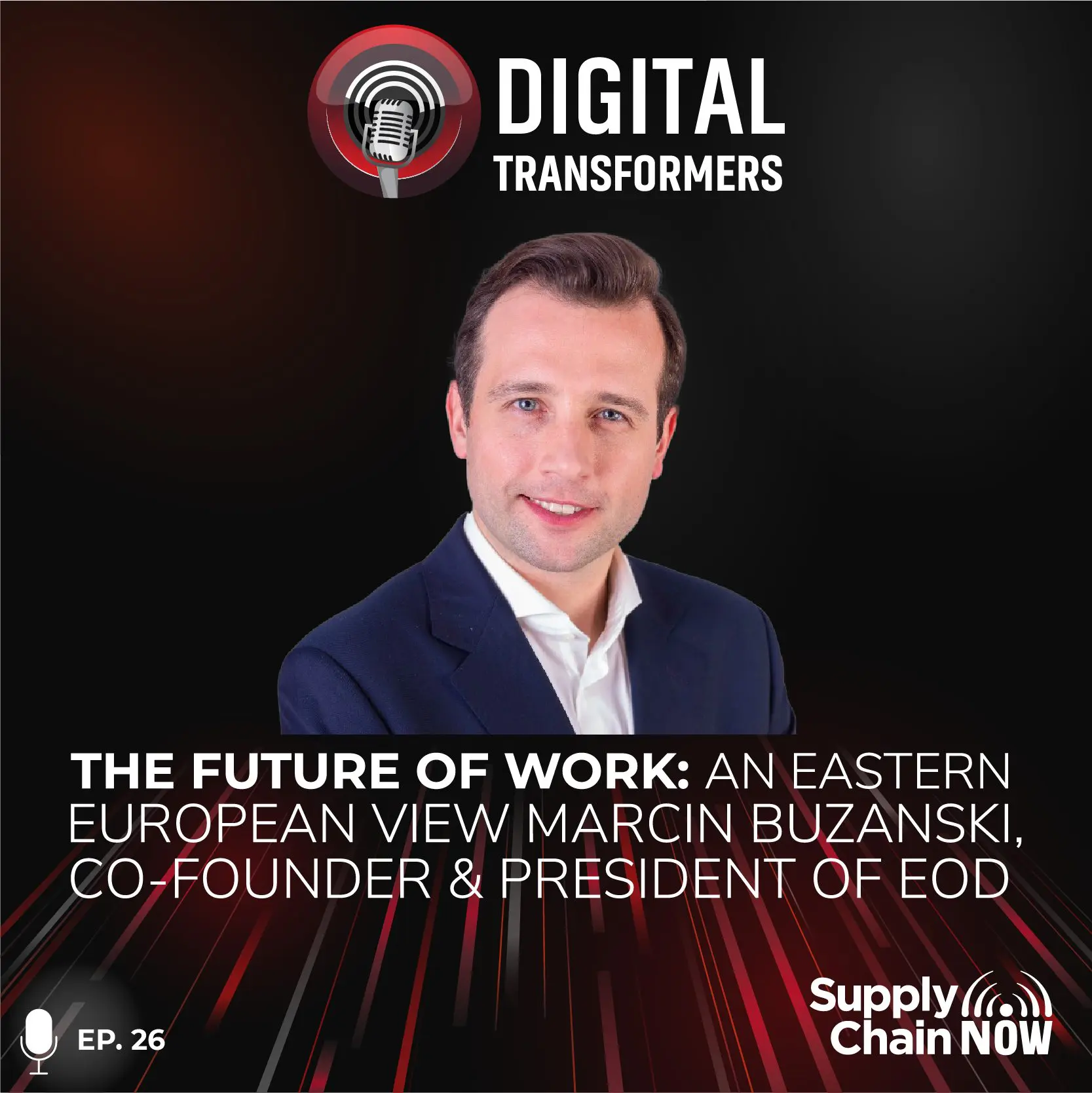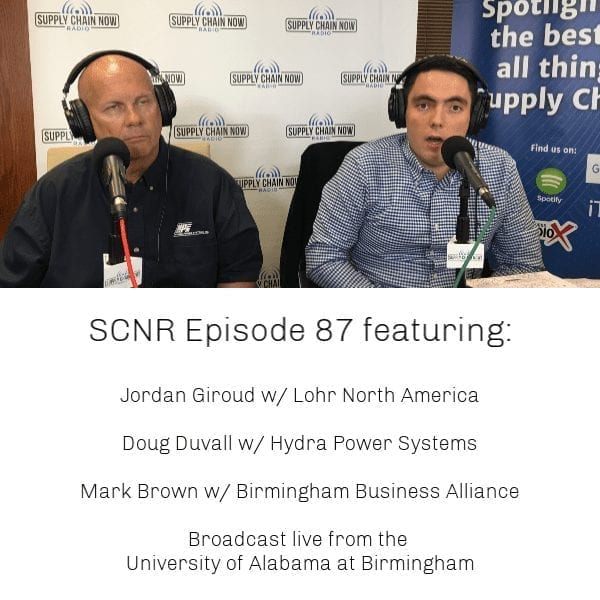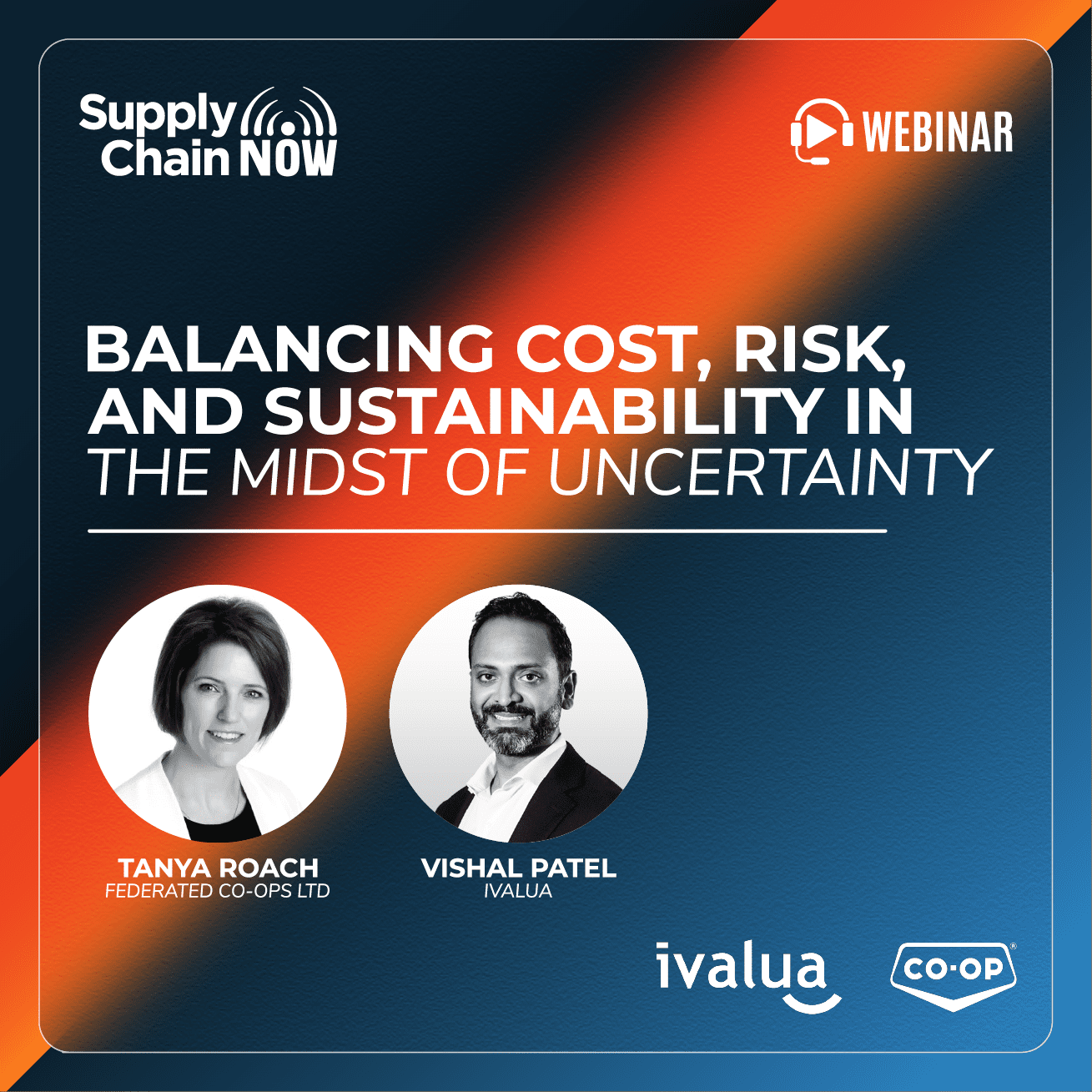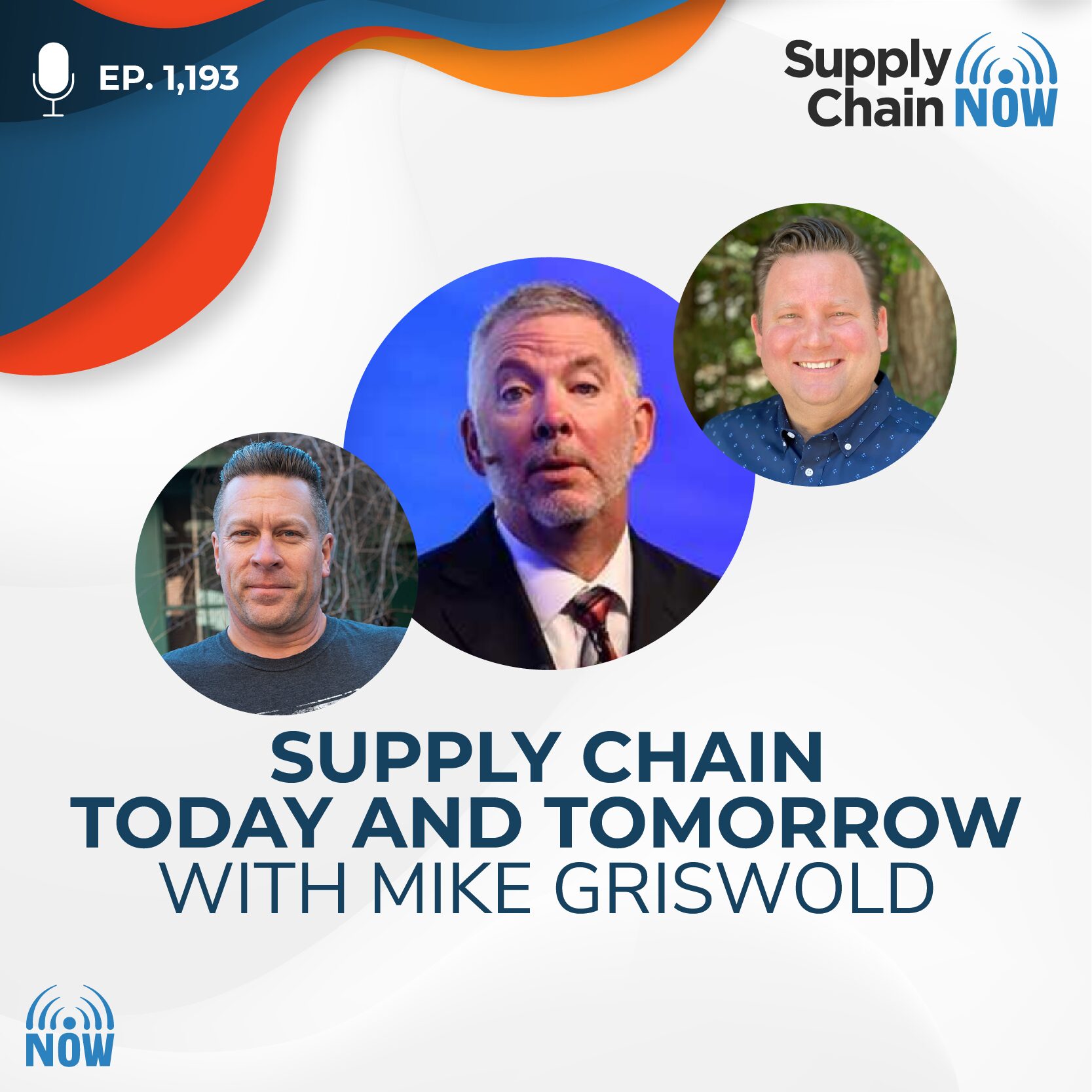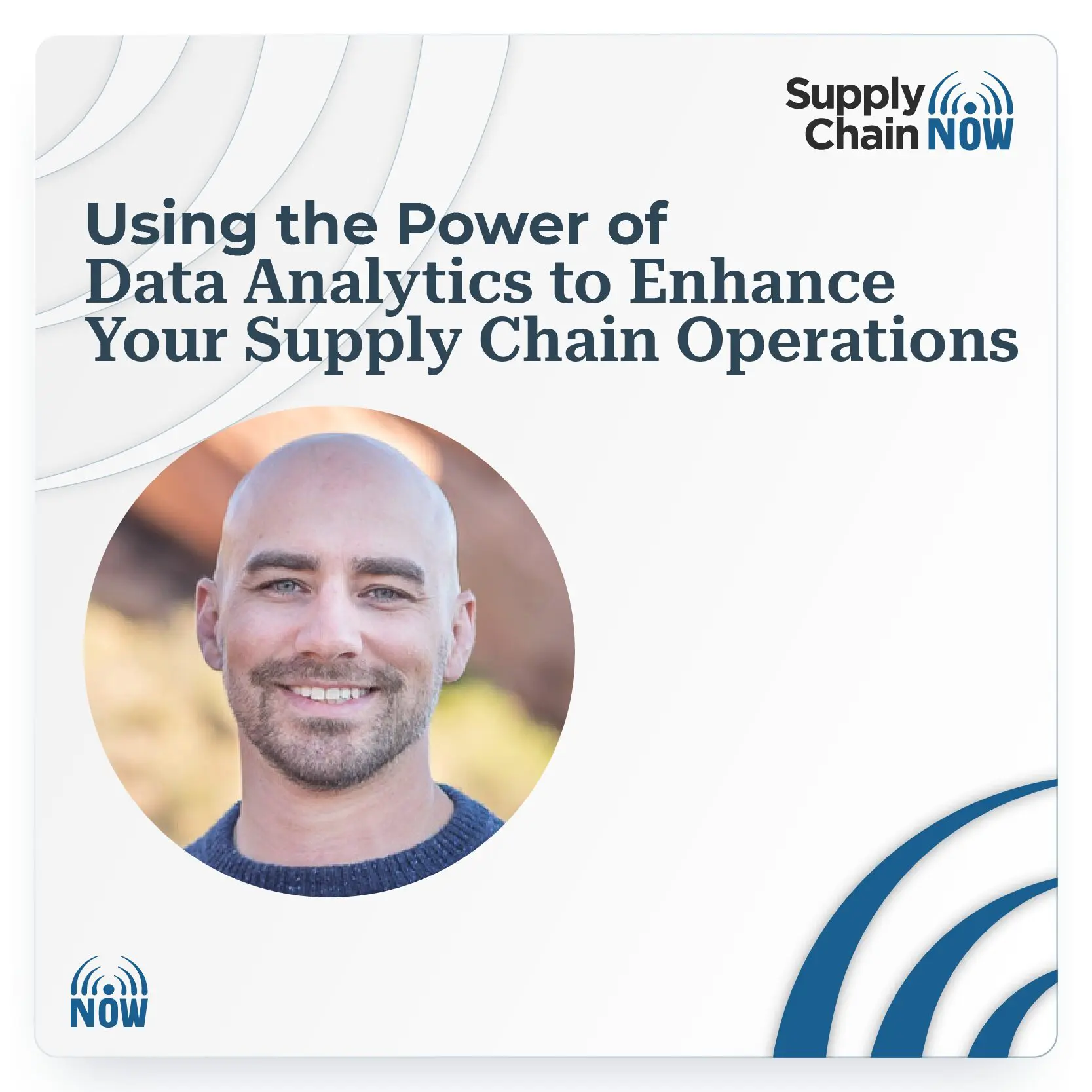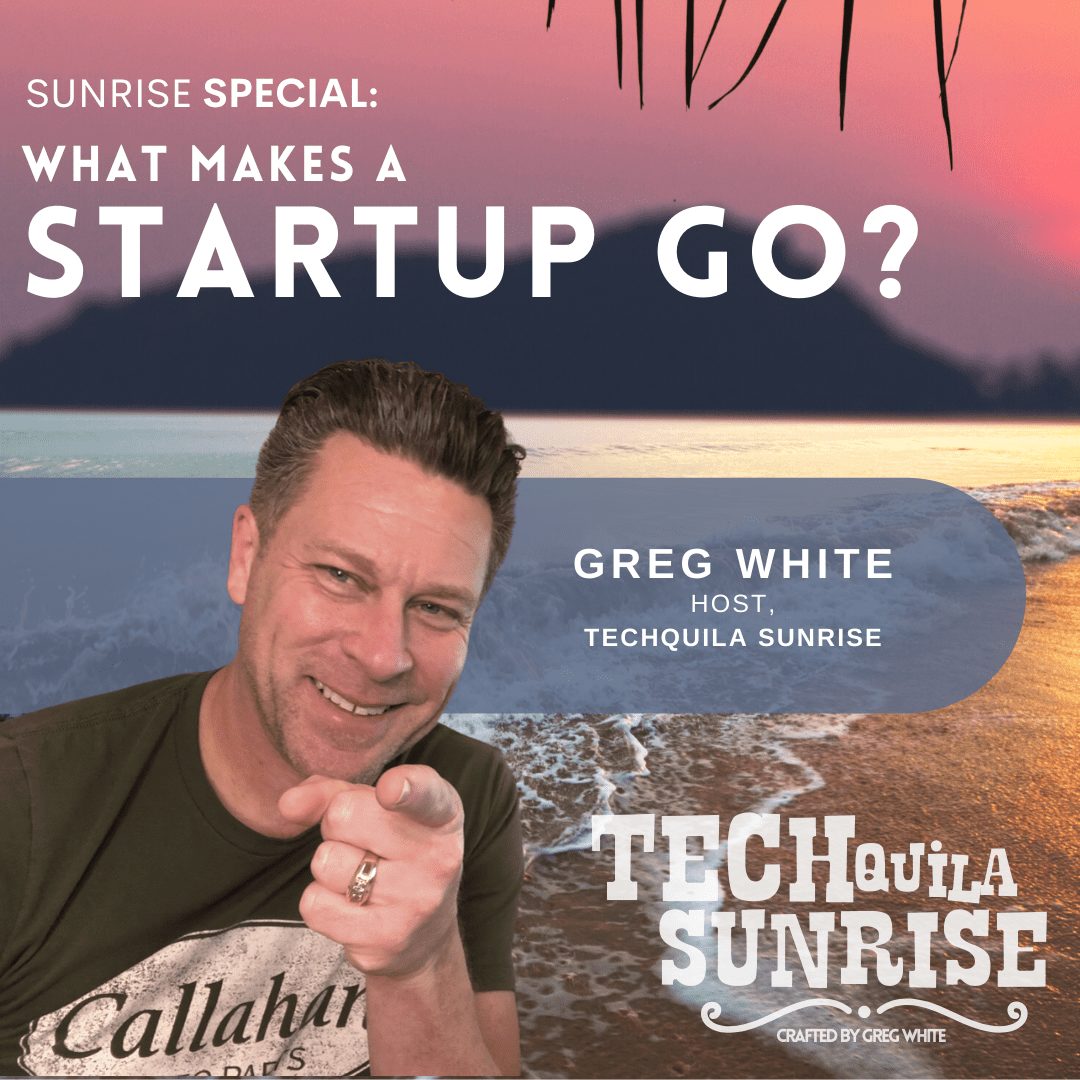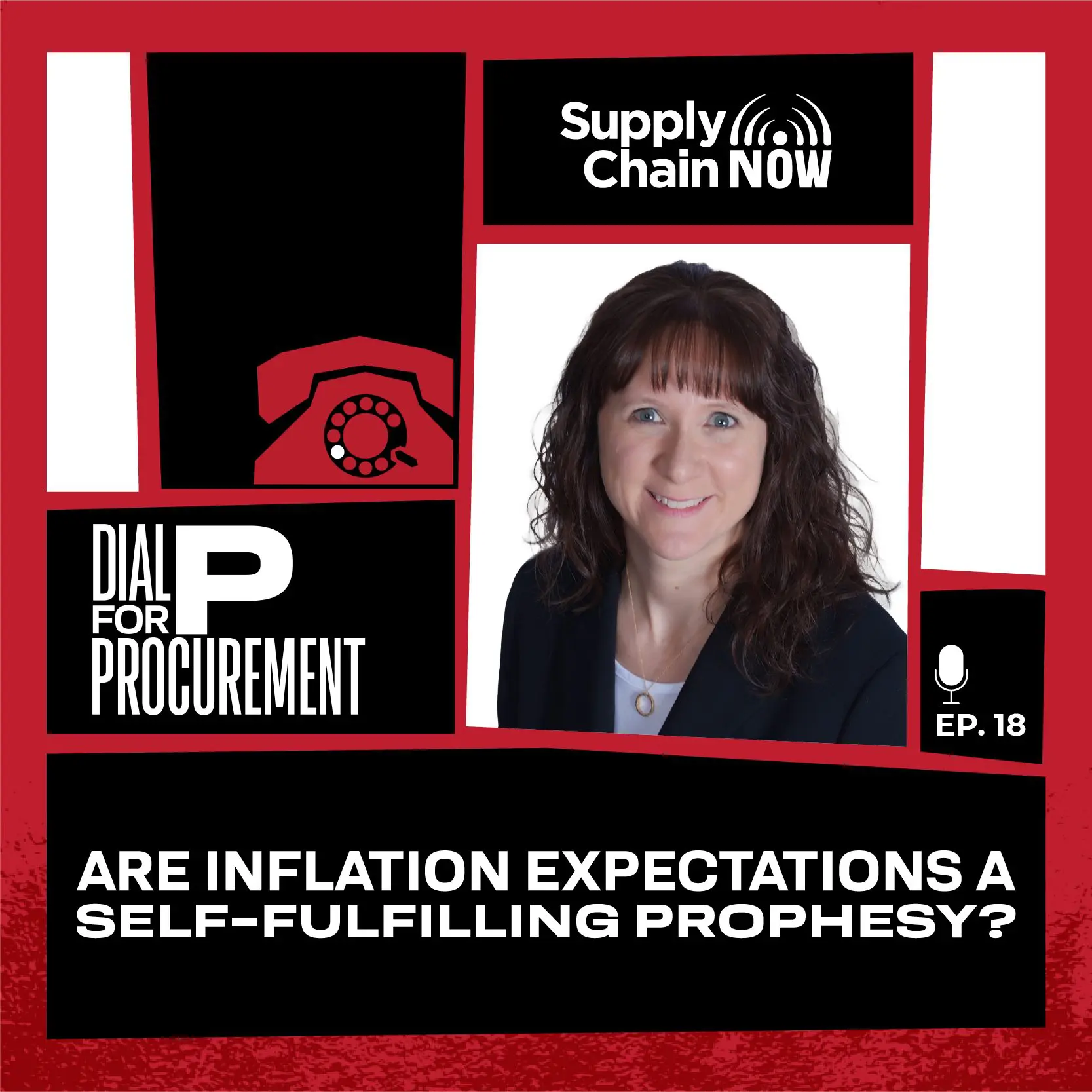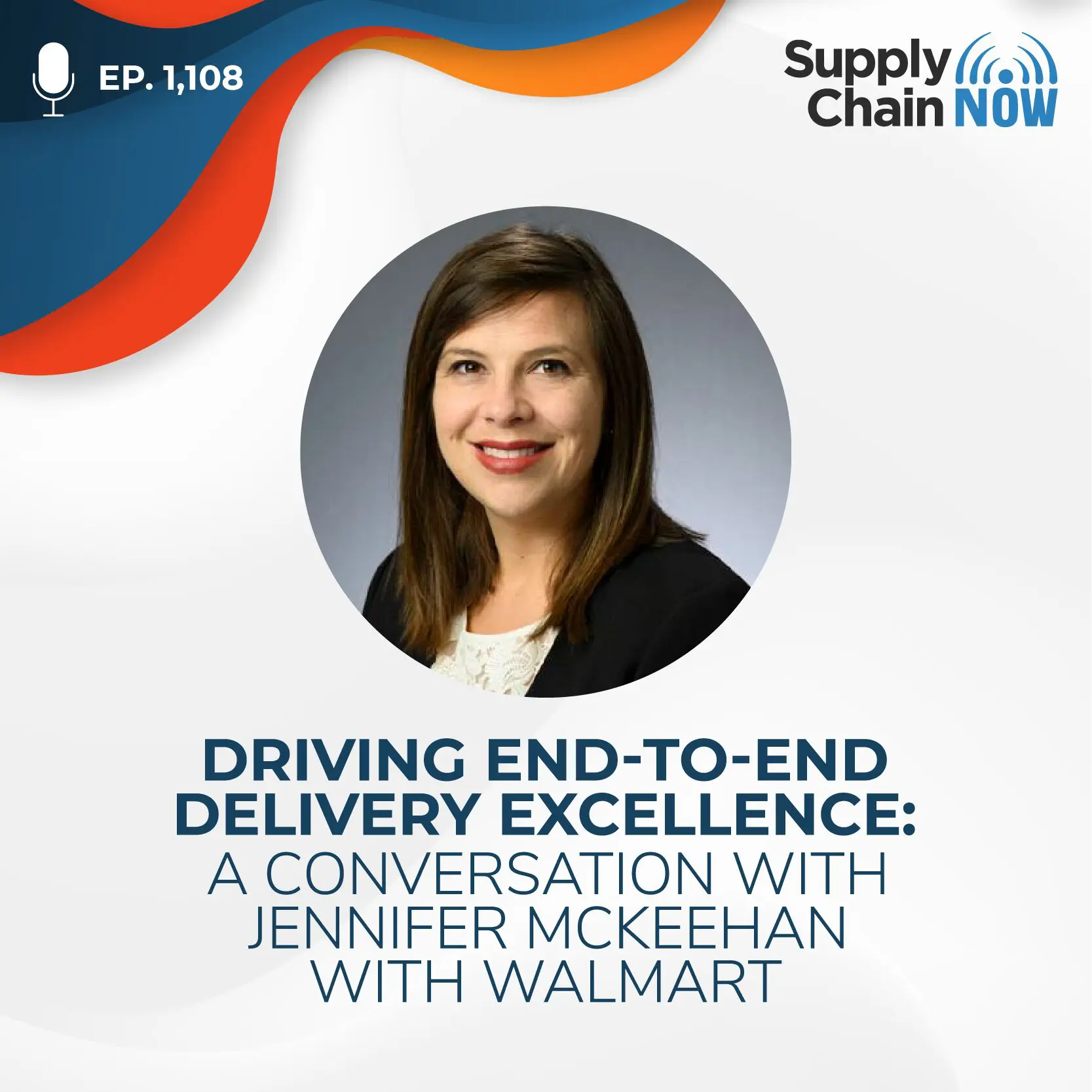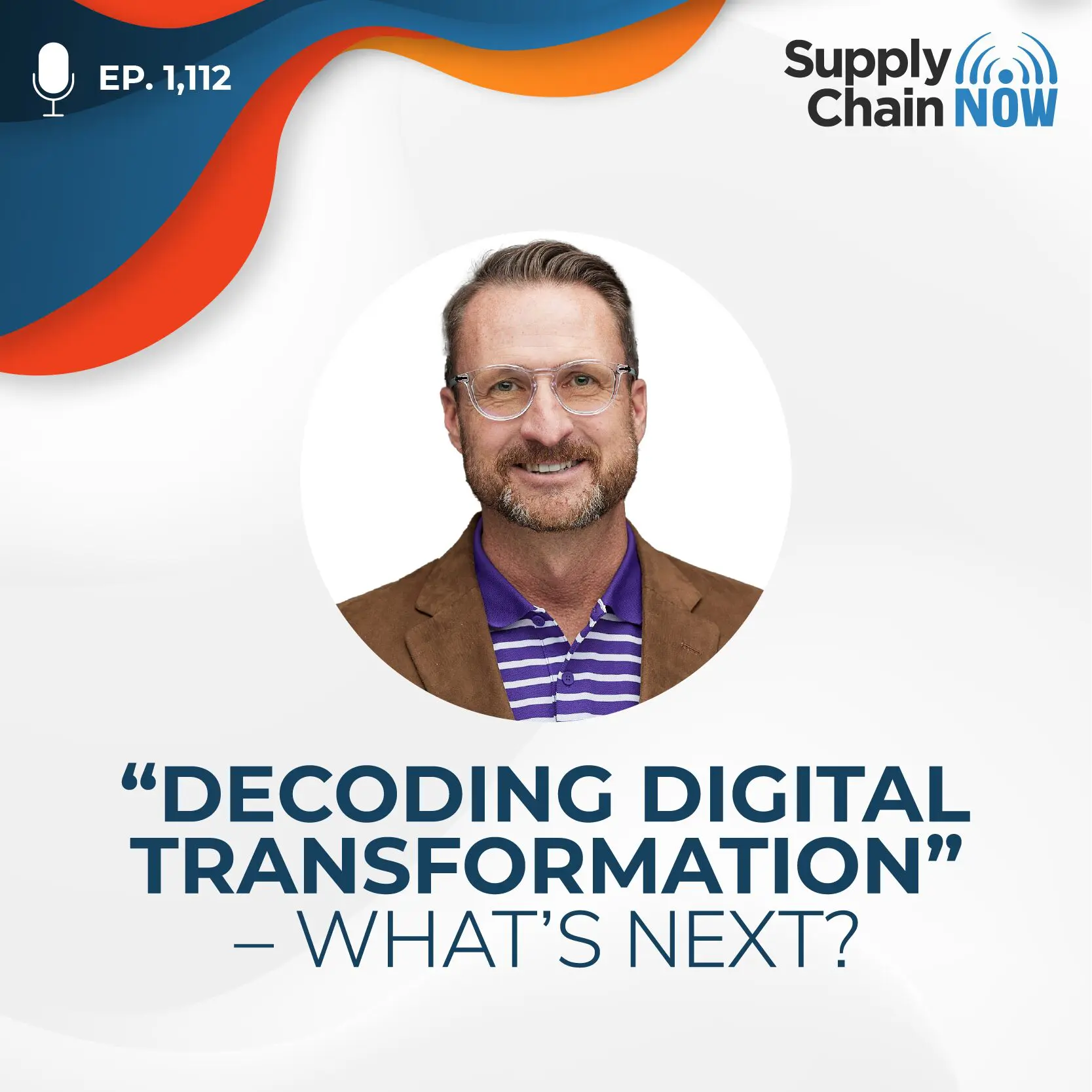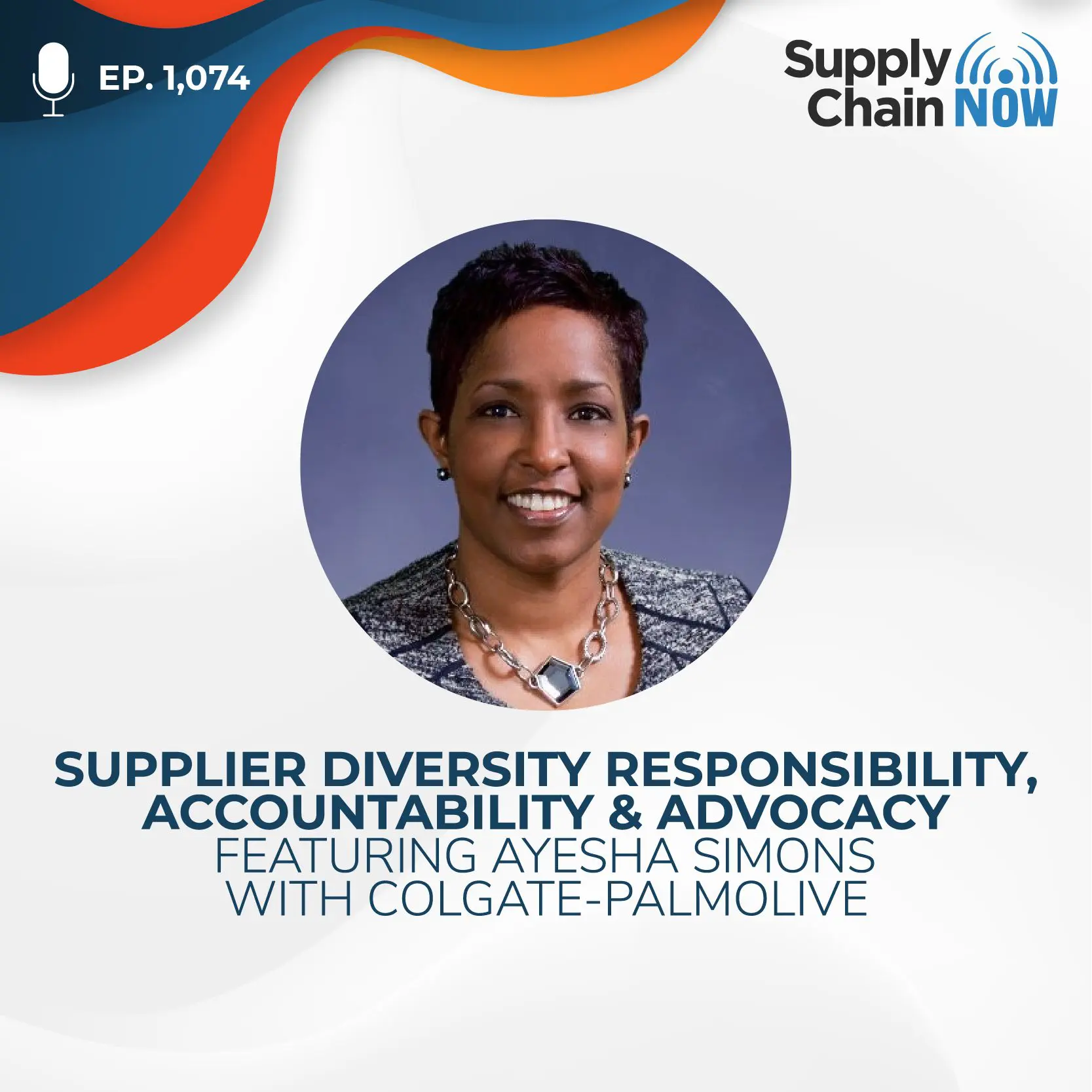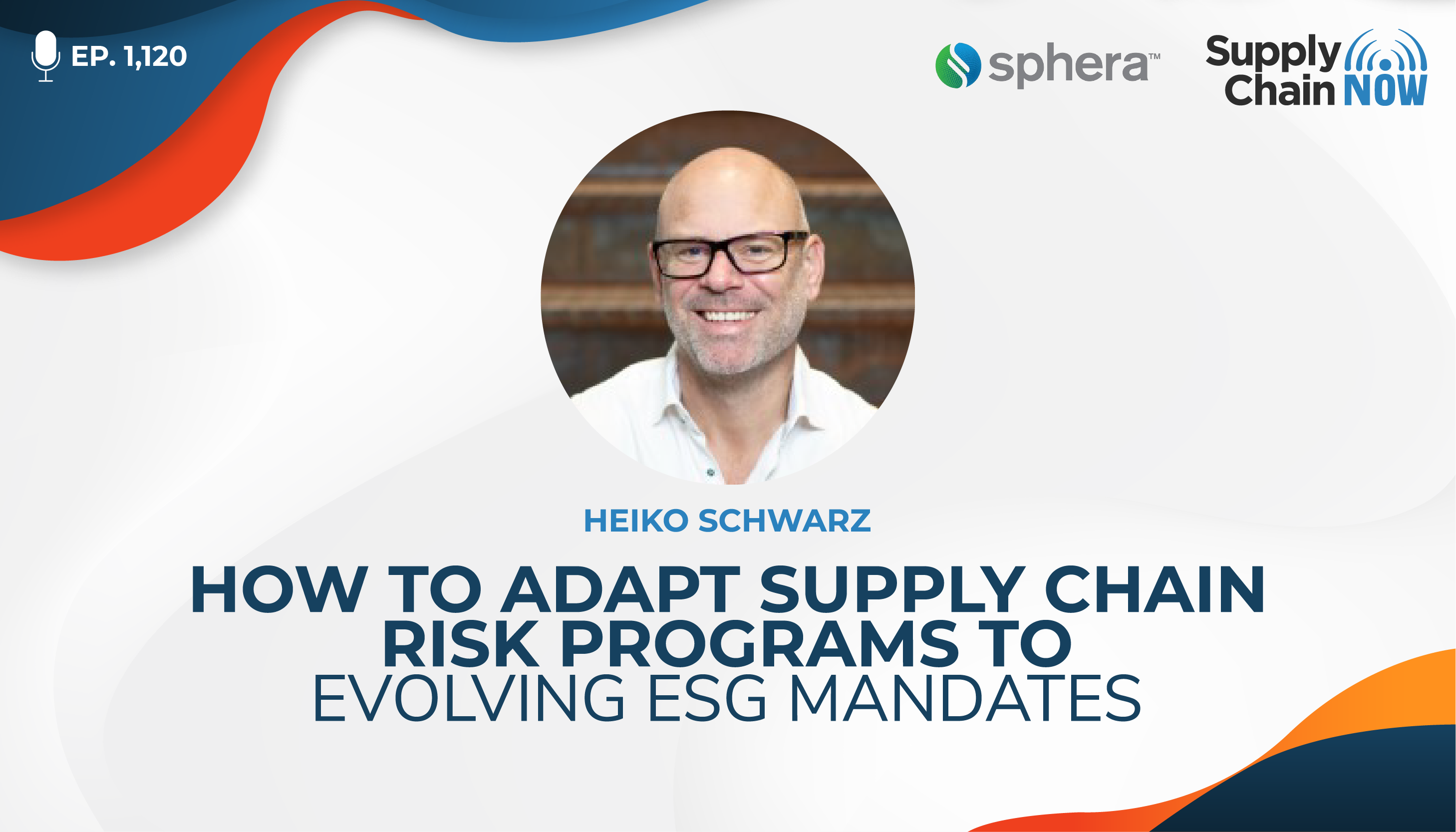
ESG is not only an obligation, it is also an opportunity. Companies can differentiate themselves, they can stand out from the crowd, get awarded more business, get better financing terms, etc. There's a lot to be gained.
-Heiko Schwarz, Global Supply Chain Risk Advisor at Sphera
Episode Summary
Environmental, Social, and Governance (ESG) is a high profile – and quickly evolving – set of standards by which organizations are being measured. Customers and the market as a whole are often watching closely to see what commitments they make and how they perform against those targets. For supply chain professionals, this means it is critical to understand all the risks covered by the ‘umbrella’ of ESG, including environmental (e.g., climate change and emissions), social (human rights, labor), and governance (compliance, sanctions, and anti-corruption).
Heiko Schwarz is the founder of riskmethods, now Sphera Supply Chain Risk Management. He has successfully led companies through the adoption of supply chain risk management (SCRM) technology for over a decade.
In this livestream-based session, Heiko joins hosts Scott Luton and Enrique Alvarez from Vector Global Logistics to discuss:
• Why ESG is an expanding part of global supply chains and how it factors into the ongoing effort to manage supply chain risk
• The cross-functional collaboration required to build a sustainable ESG program that achieves its stated goals at scale
• How technology is not only making it possible for supply chain teams to balance the demands of risk management and ESG targets, but also setting them up for success as well
Episode Transcript
Intro/Outro (00:03):
Welcome to Supply Chain Now, the voice of global supply chain. Supply Chain Now focuses on the best in the business for our worldwide audience, the people, the technologies, the best practices, and today’s critical issues, the challenges and opportunities. Stay tuned to hear from those making global business happen right here on Supply Chain Now.
Scott Luton (00:30):
Hey. Hey. Good morning, good afternoon, good evening, wherever you are. Scott Luton and Enrique Alvarez here with you on Supply Chain Now. Welcome to today’s livestream. Enrique, how you doing? All right. Looks like we have got some connection issues. So, hey, that happens on live programming from time to time. But hey, folks, we have got a wonderful show teed up here today. We’re going to be focused on ESG, environmental, social, and governance, and how ESG mandates are impacting global supply chain. In particular, we’ll be offering expertise on how supply chain risk programs can adapt and be effective when it comes to the evolving landscape. So, we’ve got Heiko Schwarz with Sphera joining us in just a moment. And, folks, hey, we want to hear from you too. So, you’re going to hear a great perspective and expertise from our panel here, but use that chat bar, the cheap seats as we call it, to give us your take as well.
Scott Luton (01:25):
All right. So, hey, we’re going to be working. Big thanks to Amanda and Katherine behind the scenes. We’re going to be working to get Enrique Alvarez back with us. Sometimes we have snafus from time to time. And we’re going to move right into our guest in just a second. But, hey, we see, Iris is tuned in – Iris, via LinkedIn, let us know where you’re tuned in from. We’d love to welcome you in. I think we got Richard – Richard Zerkel tuned in from, across LinkedIn – let us know where you’re tuned in from as well, teed up for a great, a great conversation. So, with no further ado, I want to welcome in the star of today’s show, Heiko Schwarz, global supply chain risk advisor with Sphera. Hey. Hey. Heiko, how you doing?
Heiko Schwarz (02:08):
Hi, Scott. Thanks for the intro, and I’m doing great. Looking forward to having great conversation with you over the course of the next hour.
Scott Luton (02:16):
I am too. And, you know, we’re working on resilience here via livestreaming technology as well. So, appreciate your patience with us. But we got a bunch of folks tuned in. Let’s say – while we’ve got you here, Heiko, before we dive into our fun warmup question, I want to say a hello to – Glorimar’s back with us via LinkedIn. Let us know where you’re tuned in from. I want to say California, Glorimar. You’re here with us a lot. Jodi via LinkedIn from New York City. Ronette from London, Canada via LinkedIn. Great to see you. Scott, down here in our neck of the woods in Georgia. Great to see you, Scott, via LinkedIn. And Jefferson from Qatar, via LinkedIn, great to see you here as well. Hey, I got one more shout out here, Heiko. You ever had barbecue in Kansas City? Well, Dan I bet can give us some tips around good food in Kansas City. Dan is with us via LinkedIn as well.
Scott Luton (03:11):
All right. So, Heiko, if you can’t tell, we love talking food here at Supply Chain Now – food, sports, music, and of course, lots and lots of supply chain. But what I want to ask you, because today is National Moscato Day here in the States, right, and we enjoy our adult beverages as well, so I want to start with, as temperatures are getting hotter, right, what is one, one of your go-to adult beverages for, you know, kicking your feet up and relaxing a little bit?
Heiko Schwarz (03:40):
Great. Yeah, you know, I’m based in Munich, and Munich citizens would consider Munich as the capital of beer in Germany. So, I definitely like always a cold one, but my preferred adult’s drink is a gin and tonic. And, formerly, or I was born in Freiburg, which is a small city at the bottom of the Black Forest. And from there, you’ll probably find also all over the world a nice gin, which is called Monkey 47. And that’s the preferred one I use as my standard gin. For sure, there are plenty of great ones.
Scott Luton (04:18):
And it kind of ties into your roots. I love that. And, folks, all of y’all there who are tuned in, we got a big global audience, let us know your favorite relaxing beverage that you might use, whether it’s hot or cold weather. Heiko, you also mentioned in the pre-show, you’re a big soccer fan, football fan, and I believe Freiburg’s got a great team, huh?
Heiko Schwarz (04:39):
Oh, definitely. The team is doing great. So, usually it is always a fight to remain in the first German league, but this year in SC Freiburg, which is the hometown club or my hometown club, is doing really well. And, yeah, looking forward to getting placed within the top five of the German soccer team. So, it’s pretty cool.
Scott Luton (05:01):
Oh, excellent. And, might they suit you up in case they need some more all-stars for the team, perhaps, Heiko?
Heiko Schwarz (05:08):
Definitely. Others would pay for it. So, they continue to, or they will lose all the time because I’m probably one of the worst soccer players in the world.
Scott Luton (05:18):
Well, hey, you and I both, you and I both. I love – I can slide tackle with the best of ’em, but I cannot kick that soccer ball, football to save my life. Okay. Hey, we got a couple of – we’ve got lots of folks tuning in with us here today. Arthur, “Bourbon anytime,” he says, via at LinkedIn. Great to see you. Let us know where you’re tuned in from. Glorimar, “Pina colada with Bacardi and whiskey and coconut water.” Man, it sounds delicious. And let’s see here. Marino says, “Caipirinha” perhaps. That just sounds beautiful. So, hey, let us know where you’re tuned in from, Marino. All right. So, Heiko, we’ve got a big – we’ve got a big conversation to work through here today. I appreciate your thought leadership, your expertise, especially on the ever-growing importance of ESG, not just across global supply chain, but really across global business. And where I want to start with this, as you’ve got your finger on the pulse, right, you work with business leaders across the globe, Heiko, what would you say some of their top priorities are right now?
Heiko Schwarz (06:21):
Yeah. So, I think McKinsey in their current kind of study about CEO’s priorities illustrates quite well what we also see in the market. And I’m having conversations with supply chain procurement professionals every day since years and more than almost two decades now. And the top priority mentioned by CEOs according to McKinsey now is building resilience as an organizational muscle. I think that’s an already nice segue for the following conversation. Leading into change is another priority. Technology is foundation of growth. Net zero, I think here we will also kind of touch the ESG topics while over the following conversation. And, yeah, retaining and winning talent is an ongoing kind of challenge. And when we zoom in to the kind of procurement supply chain priorities, they become more specified for sure, not that kind of generalistic. And here we see that supply continuity is an ongoing theme. So, the new normal is disruption. The new normal is being challenged by ethical, social, non-compliance with the entire supply network. And I think this is also a common scheme across all different verticals that we have conversations with across the board.
Scott Luton (07:52):
Yeah. What a great starting point. There’s no backsliding. Gone is 2018, gone is 1992. We’ve got to move forward into what lies ahead and that really, that’s good for all. That’s good for industry. It’s good for our globe. We’re going to touch on some of these things when it comes to how all stakeholders across the ecosystem can win. But, Heiko, so I want to close – before we move forward, so Marino mentioned, Caipirinha. It’s a Brazilian drink – lime, sugar and pinga. So, Marino, that sounds delicious, and we’re going to have to break bread at some point soon and enjoy that drink. All right. So, Heiko, I want to keep driving with you here. So, let’s continue setting the table. So, if you could shed some light on how ESG has become not only a bigger and bigger part of global supply chain but also how it factors into supply chain risk.
Heiko Schwarz (08:47):
Yeah. I mean, traditionally the supply chain risk management discipline was focusing heavily or even main – only on disruption risk to make sure that the supply chains, which are the bloodlines of the enterprise are performing and operating according to the expectations. But the last decade has changed that very siloed perspective of supply chain risk management programs across the world. And the main influential factors were customers. When I’m talking about customers, I mean enterprise bias, but also consumers, which are interested and demand more and more sustainable products that are built in a sustainable, in an ethical, reasonable manner. And for sure, that also drives change in the way how you acquire the ingredients and products and materials that you need to build your own offerings and services.
Scott Luton (09:51):
And, Heiko, also, I would add how we design all of that, right?
Heiko Schwarz (09:55):
Yeah.
Scott Luton (09:56):
And how we can factor that into the overall equation, correct?
Heiko Schwarz (09:59):
Definitely. And there are more pressure points that completely kind of change the picture from SCRM, supply chain risk management. I will use SCRM moving forward as the acronym to keep the dialogue a little bit more crisp.
Scott Luton (10:15):
We love our acronyms here in global – we love our acronyms here in global supply chain, right?
Heiko Schwarz (10:20):
Yeah, definitely. I’m German. We love long words. And regulators have been another kind of reason that pushed this focus of the discipline to be more holistic and embracing ESG sustainability topics. Well, I think the acronym in the US is UFLPA, the Uyghur Forced Labor Protection Act. There’s the UK Modern Slavery Act. There’s a German Supply Chain Act about human rights in the supply chain. So, these are all pressure points that apply massive pressure to enterprises that act globally to make sure that within their supply networks, ethical standards, human rights standards, environmental standards, labor standards are met according to the expectations of the regulators, and that also drives change and behavior and behavior within the supply networks because every brand owner that has to protect their own reputation and has to be compliant also pushes down these requirements to the suppliers, so to the suppliers to the suppliers, et cetera, that has a significant impact how supply networks are acting nowadays.
Scott Luton (11:39):
Yeah. The whole ecosystem is responsible, really, right?
Heiko Schwarz (11:43):
Yes. Yes. And it goes even beyond customers and regulators. I mean, investors, think about the annual letter from Larry Fink to the companies that BlackRock is investing into. And, I mean, that’s just one picture. Blackstone, the Norwegian State Fund, all those large investors, they consider ESG profiles of their potential or existing investments as one of the decision parameters. And meanwhile, also, banks do connect the interest rates for loans to the ESG profile and sees R-Scores of enterprises, which means it can really pay off financially with better terms and conditions of financial products if you can prove that your business is acting in a sustainable and ethical manner.
Scott Luton (12:41):
I love how you illustrate the financial side. It’s not just customers and suppliers, but investors, consumers, your banking partners. This is really – it’s becoming universal, right?
Heiko Schwarz (12:54):
Definitely. And it goes even beyond that, right? I mean, talent. I just said McKinsey considers attracting and retention of top talent as one of the top five priorities for CEOs. And imagine working or imagine top ten – what is top ten expecting from a business day, they really desire to work for? Definitely in business that contributes to a safer, sustainable world. And that means the business that you apply for has to match these requirements and if you want to retain these top talents that want to do something with a purpose nowadays. Twenty years ago, it was about earning money only, right? And we want to drive purpose and it just became that. So, I want to make also my contribution for better and more sustainable world, right? And, I would definitely not be a kind of role model if I would work for company that destroys the environment that doesn’t consider labor, good labor practices, et cetera, in all the countries where the business operates, supply chains, or is doing business transactions.
Scott Luton (14:13):
Heiko, first off, congratulations! I think that came up in the pre-show. Congratulations on your new addition. And I like how you, kind of like you per – I know you’re kind of tongue in cheek, but you personalize the mission and you’re speaking to the responsibility we all have, as parents, as supply chain leaders, as business leaders, to make sure no one’s left behind. And there’s a lot of – there’s a lot more heavy lifting we can all do that the industry must do to address some of these things you’re speaking to. And then finally, I love how you expand the universe too because as you said it’s bigger than the universe. And you mentioned talent, and you’re so – it is so true. Folks want to be part of a team more and more that is doing good, is driving change. It’s addressing the wrongs across the industry. And, again, we have so much more to do. So, I appreciate that call out.
Scott Luton (15:01):
Before we move – before I take a few comments and before we ask you about some examples of how organizations are doing, any last comment before I move forward, Heiko? So, I can move right forward here as we want to recognize – we have Benjamin Goldklang back with us, Heiko. Benjamin is essentially an OG member of our Supply Chain Now community. He’s up doing big things up in the northeast, I believe now, as he says, “Supply Chain Now has been keeping up on Spotify on the morning commute. Happy to be back in action.” Awesome. Wonderful. Agnes is tuned in from Kenya, via LinkedIn. Great to see you, Agnes. And finally, Felicia – going back to our favorite adult beverages – Felicia says she hails from Redmond, Washington, via LinkedIn. Let’s see here. “Duchess de Bourgogne.” Get that close.
Heiko Schwarz (15:48):
Bourgogne.
Scott Luton (15:49):
Thank you. Thank you. Heiko, thank you. That’s her drink of choice. It’s a sour beer with a balsamic taste. Man, that sounds really good. I bet it would be great to pair it with food. All right. So, Heiko, thank you for saving me. My poor – my poorly spoken English gets me in trouble from time to time. All right. So, I want to get into some examples. You’ve really laid out a lot of things here on a really big global supply chain table. Heiko give us some examples in terms of how organizations are truly building supply chain risk programs around these ESG goals and really demands from all parties.
Heiko Schwarz (16:30):
Yeah. So, I think what we understood based on all those different pressure points is, first of all, supply chain risk management programs nowadays embrace all the facets of ESG and sustainability in a combination of all the topics that disrupt the business from a physical perspective. And here leading industries were the chemical industries or industries that have strong brands associated with the finished product, like in the CPG space as example, because differentiating – differentiation was done via brand or is done via brand in these industries, or as I said chemicals once was perceived as a dirty industry. So, to make sure that, especially from an environmental perspective, the supply chains are operated in an ethical manner makes meanwhile many chemical industries or companies stand out from the crowd and really differentiate by leading ESG and sustainability practices.
Heiko Schwarz (17:50):
One example to mention here is Clariant. It’s a larger special chemical provider, which is headquartered in Switzerland, where the procurement organization just released a new vision to embrace sustainability and ESG compliance as one of the leading decision parameters for making procurement and buying decisions. And with that, they also set the tone and started to change the parameters of the supply relationship management program where traditionally price, quality, quantity, reliability and performance and maybe management involvement was considered as the main parameters to judge on supplier performance. And meanwhile, ESG, sustainability, compliance are parameters to score suppliers as good suppliers or bad suppliers, and then based on the profile also to start with mitigation or supplier development programs. And very interestingly, the procurement organization at Clariant now has called out as one of the main themes that quality over quantity regarding the supplier base is a leading theme, which means also quality in regards of the ESG profiles of the business partners is now one parameter for granting business or re-awarding business with existing suppliers.
Heiko Schwarz (19:35):
So that really changes the incentivization of the procurement organization, right? Because incentivization drives behavior. And you can imagine that the trade-off between, do I rather take a risky decision often maybe not that compliant supplier but a generate huge savings versus a maybe higher quality supplier with less savings is really a tradeoff for operational roles. And once you are not solving this tradeoff from vision strategy and then incentivization, you’re not driving a change of behavior.
Scott Luton (20:12):
Heiko, let me ask you a quick follow-up question there. I love this quality-over-quantity theme that Clariant has really embraced. I would – you know, given the interest, especially in recent years of making sure we’re not single threaded with suppliers and there’s lots of redundancy there, I’m assuming that the Clariant team’s got to really double down in terms of their sourcing of new supplier – new quality suppliers into their ecosystem. Is that right?
Heiko Schwarz (20:39):
Definitely. Definitely. And, like all the other businesses over the course of the last three years, also Clariant is facing challenges within the supply chain, but they have established a world class program which really considers all the different facets of sustainability scoring, ESG scoring, supply chain disruption, threat scores, to be put into one holistic kind of scheme and program and having building governance around it to make sure that they really get adoption in the field. And adoption means execution of these decisions that drive a more sustainable world. And they get rewarded by standing out from the crowd and getting credits from their customers in the automotive industry, as example, because they became the supplier of choice because of their world class ESG profile. And they can demonstrate also to investors that they are not ending with ESG efforts at their own four walls, but extend this and use the full leverage of the entire supply network to contribute to a better word. And that really makes some difference.
Scott Luton (22:02):
Yes. Heiko, before we move to your next example, it’s good to see them rewarded by customers and other shareholders, right? When they make the bold commitments, from what I’m hearing from you, to draw a line in the sand and, hey, this is what we’re going to do and we’re not going to compromise. So, it’s great to hear because those are tough – those are really tough decisions and actions to take. But it really, the more companies make those bold actions, the industry collectively is going to move forward, and that’s something heavy lifting we were talking about on the front end that’s got to happen, right?
Heiko Schwarz (22:36):
Definitely. There’s no way around. And I think it is not only an obligation, it is also an opportunity, right, because you can differentiate, you can stand out from the crowd, get awarded more business, get better financing terms. So, there’s a lot to win.
Scott Luton (22:53):
Yes. Team -your team members are happy. Your customers are happy. Your suppliers are happy because they’re getting better with those supplier scorecards you’re talking about. So that’s good stuff. So, the Clariant was the first example and give us another example of what you’re seeing out there when it comes to organizations really finding ways of building supply chain risk programs around these ESG goals and demands.
Heiko Schwarz (23:20):
Yeah. So, meanwhile, what we see in the market that every company builds in ESG aspects and sustainability aspects into their supply chain risk management programs, the one doesn’t go without the other anymore. It’s like a coin that has two pages like the metal, right? One of them is the disruption threat. It’s obvious. And since COVID, it became just a mandatory exercise to make sure you can identify threats in your supply network. You are aware of the potential impacts to your business to be able to understand the vulnerabilities of the supply network and how your suppliers are prepared to start understanding the sub-tier structures to have the full profile and the full visibility of the relations and dependencies and then basically, based on all this transparency set-up, the preventive actions to avoid that bad stuff happens, but also to have the plan B in the shelf once the internet connection is broken and Enrique is not there, right, to know what to do, and to still continue with the podcast once these situations occur.
Scott Luton (24:28):
Heiko, really quick.
Heiko Schwarz (24:30):
Yeah?
Scott Luton (24:30):
I got a remark. I admire your sense of humor. You know, here in the digital era, the remote digital era, oftentimes, Murphy’s law is still alive and well. So, I appreciate it, your sense of humor here. All right. Please continue.
Heiko Schwarz (24:43):
Yeah. And, meanwhile, the ESG and sustainability footprint didn’t stop at the enterprise, so we see all small and mid-sized businesses as well, sometimes even leading their hands-on mentalities and set-ups with excellent approaches where all the facets of sustainability are part of the supply chain risk management programs. And what they all have in common is the large ones, the mid-sized and the small ones that are successfully, or have successfully implemented those programs are that they started with building a proper case at the very beginning.
Scott Luton (25:30):
Yes.
Heiko Schwarz (25:33):
They took the time to identify internally their primary and primary stakeholders and the external stakeholders of the program, which are mainly the suppliers in terms of the external ones, but internal stakeholders do mean for excellent programs that these programs do not stop at supply chain and procurement.
Heiko Schwarz (25:59):
They also are set up in a cross-functional way. So, sales, marketing, communications, legal insurance, or finance as departments and the ESG and CSR functions are part of all the stakeholders. Because based on making them part of the case, you also get access to their expectations. And by understanding their expectations of these cross-function stakeholders, you can also make sure that for the design of the case or the relevant risk dimensions or risk factors or risk indicators, however you want to call your risk inventory, is covered and satisfies the needs of all those stakeholders. Because at the very end, once you operate a successful program, it also – the mitigation won’t stop at supply chain or procurement or logistics only.
Scott Luton (26:55):
It can’t. It can’t.
Heiko Schwarz (26:58):
Right? You need all those stakeholders to solve the challenges that you face in the supply networks. Not always everybody, but very pointed, right? And you need to laser sharp, pick out the right stakeholders that you need to solve a problem within the supply chain. And, once you forgot to bring them on board at the beginning, they will wonder at the end. Like, now when the [inaudible] hits the fan, now, you’re asking me what my expectation will have been from the very beginning, that’s not how it’s going to work. Yeah.
Scott Luton (27:38):
Yeah. All right. So, you got a great segue coming up because you’re talking about really that collaboration across enterprise, and we’ll get there in just a second. I want to recognize a couple comments here. Hey, this is Koray Kose with Gartner. Of course, it’s Gartner’s Supply Chain Symposium and Expo this week. He’s even, man, tuned in on his lunch break. Koray Kose, great to see you. I appreciate your comments here. And it appears we may have Enrique Alvarez back from the wilderness. Enrique, how you doing?
Enrique Alvarez (28:07):
I’m doing fantastic. Can you guys hear me now?
Scott Luton (28:09):
Yes. Yes.
Enrique Alvarez (28:11):
I’m going to have to thank Heiko for that. I think that the minute that he mentioned my name, the whole computer woke up and I am back. So, Heiko, thank you very much for bringing me back from the dead.
Scott Luton (28:21):
All right. Well, hey, you missed a really good front end of the conversation, but I bet you were tuned in from the green room, and we are about to move into the second half. Before we do, Heiko, Enrique, I want to just recognize this. And, Himani, great to see you here, via LinkedIn, your question is an ongoing question, and the good news there, we’re not going to address it here today for the sake of our conversation, but the good news there is, it is very straightforward to find that balance because by doing the right thing and addressing ESG, as Heiko mentioned on the front end, companies, leadership, they’re being rewarded, right? So, there’s surprisingly a lot of ways to balance cost efficiencies and ESG. We’ll touch on that maybe later in the hour.
Scott Luton (29:09):
Okay. So, Heiko and Enrique, Heiko, where I want to go next is you were just talking about how we’ve got to make progress across the enterprise, right? We got to – you were talking about building that business case so we’re getting folks invested. We’re getting their thoughts, their expertise, their buy-in on the front end before we set out on this big journey. And as you mentioned, it requires collaboration and input and work across enterprise. So, if you can address this collaboration that has got to happen to drive progress-related ESG goals, how does it happen?
Heiko Schwarz (29:46):
Yeah. So, one of the kind of answers to the challenges of setting up proper programs and cross-functional programs that need a lot of collaboration internally, but also externally, never forget the business partner as suppliers should be considered part of the solution, not part of the problem, automation through technology, and in this specific case, it’s going to be software is key to get all these activities executed at a large scale because as we learned, especially the regulatory pressure applies to all stakeholders within the supply network. Regulators don’t make any distinction between large suppliers, small suppliers, US suppliers, German suppliers, whatever. The legislation always tells you, you have to make sure that whatever human rights are properly considered into your supply chain operations will stop, right, which means, I mean, you can’t just hire hundreds of people that do audit the suppliers every month.
Heiko Schwarz (30:58):
I mean, you just can’t – you don’t get additional budgets, right? And, that means you need technologies at scale that foster and easify all the collaboration, the communication, the flow of information, the automated detection of threats and non-compliance within the supply network to understand, first of all, the structure of the supply network. Where are the sea ports, airports, warehouses, distribution centers that my suppliers are using? What are the suppliers of my suppliers? So, technology in terms of software is needed to drive this automation. And we want our teams, our experts to spend their valuable time on the preventive actions. And once the unpredictable happens on the proper crisis response, we don’t want them to take their valuable time and spend their time on reading newspapers, newsletter, web feeds, et cetera, to identify potential threats in the networks, right?
Scott Luton (32:01):
So, quick comment, I love what you just implied there. You know, workers, practitioners, the workforce are under a ton of stress and strain and pressure. And to your point, which I want to shout for the mountaintops, and, Enrique, we’ll get your comment here, but we got to make it easier. We got to equip them with the technology to empower them to be more successful. So, as we roll out new initiatives, it’s not – it doesn’t go from a 40-hour week to a 60-hour week, but it allows them to keep the business moving forward while making it better. And we got to give them the tools to do just that. Enrique, comment on that before I go back to Heiko.
Enrique Alvarez (32:41):
No, I think that Heiko’s absolutely right about technology and technology is going to play an important part in this. And really in everything we do from now on, it’s just amazing what technology and artificial intelligence is doing this days. The other thing that I think could be important is certain certifications, for example, B Corp, if we actually have all these programs that are pushed by different companies to certify not only the company but the entire supply chain of certain companies, I think having those certifications could also help and validate the fact that companies are responsible in their ESG goals.
Scott Luton (33:17):
Well said. Well said. Okay. So, we’re going to talk probably a lot more about technology and technology trends in just a second. But, Heiko, before we do, is there anything else you would like to share when it comes to ensuring we got this critical collaboration across functional areas?
Heiko Schwarz (33:34):
Yeah. I think first of all do not leave the supplier out of the equation and make the suppliers part of the solution rather than considering them as part of the problem. And, because at the end of the day to really kind of solve the supply chain challenge, you need full visibility of the network. And that means you’ve got to verify if potentially detected sub-tiers are really the suppliers for the materials or products that your suppliers are using and so on down the supply chain. You can do a lot of web kind of crawling to detect potential business relations, but you end up at tier three with millions of relations, of which 99% are not relevant. So, you can’t solve that problem yourself means at the end of the day, even, you get to make sure that your business partners become resilient themselves as well.
Heiko Schwarz (34:34):
And there’s no way around technology and getting these business partners access to your tools, your systems, at least partially, to be part of one network that starts building resilience because there’s huge transparency about the threats that are exposing this network to non-compliance, to potential disruptions. And that means that that requires technology that connects all the different dots and makes collaboration easy and that there are also no kind of gaps or breaches across the different data points that have to flow from A to B to also support successful and timely mitigations and preventive actions. Yeah.
Scott Luton (35:24):
Yep. All right. Heiko, you just shared – you’re bringing so much good news here, and that’s one of our favorite things to talk about. I want to – Enrique, before I come to you for your follow-up thoughts there, a couple things. So, Karen, one of our favorite members here that shows up for livestreams and webinars, always brings it. Karen says, “They are,” to Heiko’s point, “all part of the team to create success. Outstanding thoughts, Heiko.” Completely agree there. Great to have you here. And I would just add, Heiko, Enrique, I love how you’re talking about you got to involve. You can’t leave any supplier behind for two big reasons or three big reasons maybe. Number one, they’re ideas, right, for how we can make gains, ESG and otherwise. Number two, because it will make them more resilient. And we all know that our supply chains are only as strong as our weakest supplier, right? And then, number three, it will make them better. And to your point, Heiko, what you’re implying is we do it with them and there’s something in it for them, and there’s something in it for us and for all parties, really, right? Enrique, speak to some of those concepts for a second, then I’m going to go back to Heiko to talk about technology trends.
Enrique Alvarez (36:29):
Yes, of course. And not only I agree with what Heiko is saying, but I think you have to not only collaborate with your suppliers, but maybe even co-invest with them, right? I think once you actually put money into some joint projects, some ventures together, I think that’s even stronger. The bond, the tie that you create, the relationship you create is even stronger. And there’s one of my favorite examples of that is Patagonia. I mean, they do a fantastic job not only collaborating and sharing and being open and honest about the things that they need to resolve and improve, but they’re putting basically their money where their mouth is. They’re really co-investing in their suppliers, tier one, twos and sometimes even threes, to the point that everyone is aligned from like an economic standpoint, which I believe it’s very important.
Scott Luton (37:16):
Robust alignment. And, hey, I love how you started. There’s a great phrase that was part of my upbringing, “Blessed be the ties that bind.” I think it’s old hymn from church. And, you know, it’s amazing how those old things from where you were a kid, they’re so relevant today because the bonds between our suppliers, between our customers, between our team members, between industry, and that’s where big gains are, if we can capture that alignment. Heiko, so much, so much to walk through. And by the way, TSquared who holds down the fort force on YouTube, “Connect and develop.” Yes. And drive mutual success. I’ll add a third one there, TSquared. And I saw your adult beverage, I’ll circle back to that in a second. But, Heiko, technology, you know, one of the big movements that democratizes a lot of this and enables organizations, big, small, all points in between to make more progress and empower their people and make them and allow them to be more successful, of course, is technology. So, speak to some of the technology trends at play here.
Heiko Schwarz (38:21):
Yeah. I think we are at the wonderful kind of point in time where computing power, AI technology, knowledge about the best user interface design and kind of API-based software economy are converging trends that all come together, which makes life much more easier because enterprises not necessarily have to make the one suite vendor decision and kind of live with mediocre or average kind of solutions for all kind of problems, rather than betting on best of free technologies and eating the elephant and slices as well. And that is what technology allows enterprises to do, right? You can choose and pick and choose – that’s the right term, pick and choose – what fits best to the specific business and use case, and also the skillset of the internal, external stakeholders and connect the dots, right?
Heiko Schwarz (39:29):
I mean, supply chain risk management is not an isolated discipline. For sure, it’s holistic in itself when considering all kind of manmade risks and CSR-related ones and financial health and regulatory and sanction control and cyber and whatever. But these risk scores that you get as insights, they should feed the sourcing systems to make better sourcing decisions because that’s the point in time when you award the business to maybe a new business partner and already start onboarding all the associated risks, right, so, kind of recycle that information, or when there is the need to shrink the supplier portfolio and create price effects and savings by demand pooling, well, combine the decisions about the bundling efforts with the insights about the ESG sustainability risk profiles of the business partners to make sure that the increased volume that remains on fewer suppliers, which means also more dependencies is based on the sustainable, healthy, low risky ones, right, to avoid maybe having a short-term saving but tremendously huge firefighting costs one year later because things are messed up.
Heiko Schwarz (40:52):
So, API is one key. Second, AI. AI meanwhile allows businesses to scan all unstructured information sources worldwide every second and [inaudible] through the data to get the one piece of information that really puts the supply chain at risk, ideally as a kind of preventive or predictive indicator to really make sure you’re not missing anything, right, because we once made the math. It is already kind of a few years ago. So, we made the math that a mid-sized business with 500 suppliers would require 40,000 employees if they would be reading all major news publications around the world —
Scott Luton (41:42):
Wow!
Heiko Schwarz (41:43):
… 24/7, 365 days a year, just to understand if one of their suppliers have been mentioned into those news. Second, they have to make the choice, is this information or relevant or not? Is it too good? Is it a bad information? Is it potentially carrying a disruptive indication or is it maybe something that puts our reputation at risk? And then, to map this information to the respective supply and deduct also action based on this. AI can do this within a millisecond, completely automated without the need of 40,000 people reading, right, because they’re also hungry and want their vacation. [Inaudible] into the math, right?
Scott Luton (42:23):
It’s kind of – can you imagine hiring 40,000 people? Man, talk about, we’d have to get more than slices of elephant. We’d have to be swallowing elephants whole to make that leap. But there’s good news. AI can do that for us much faster and better, and freeing up the people we do have to do things that the humans are better suited and can use more of their skillsets and make more enjoyable tasks throughout the day is what I guess is what I’m kind of hearing, Heiko.
Heiko Schwarz (42:54):
Definitely. And last but not the least, knowing how people behave and how usability can drive adoption allows technology providers to gamify enterprise applications, to gamify business processes and topics, which are per se pretty complex. Like, supply chain risk is a super complex thing.
Scott Luton (43:19):
Yeah.
Heiko Schwarz (43:19):
But it can make it very easy – and easiness and fun to use drives adoption. Like 20 years ago, our industry has built expert systems for procurement professionals, for supply chain designers, for supply chain managers, for logistic guys. And these systems were expert systems with 250 kinds of fields in one screen and it needs super training, et cetera. And when you end up with a hundred, thousand employee enterprise, you basically had at the end 10 people who could master these systems. It means you lose all the positive upside of adopting the business process for the enterprise because you only have 10 people adopting this stuff, right? And now we can make things so much easier with visualization, with graphs, et cetera, and to make even someone who never touched supply chain risk in the past, within one, two hours, a supply chain risk mentioned professional.
Scott Luton (44:17):
Yes. You know, Heiko, that’s a such a great point that’s often overlooked is the power of adoption, you know. Because if you’ve got the supply chain magic wand out there, but no one uses it, what’s it worth, right? Enrique, weigh in here on adoption and [inaudible] speak to some of the other principles that Heiko is talking about in terms of technology trends that are in play to make life easier for our teams.
Enrique Alvarez (44:41):
Well, AI is definitely a big player. I wanted to point out though that, I mean, it has to be responsible AI because some of these algorithms, depending on who’s programming them and how they’re programmed, they could also have biases that lead to wrong conclusions. So, it’s exciting and I totally agree. I think it’s something that we can leverage, not only because they’re more efficient and faster and make zero mistakes sometimes but we do have to make sure that we’re employing the right algorithms and with the right ethic and culture and values behind them to make sure that we’re really highlighting the outliers as opposed to maybe becoming more biases, which is something we definitely don’t need.
Scott Luton (45:24):
Enrique, excellent point. Heiko, one final question before we get into making sure folks know about some of the big news in your neck of the woods and with the Sphera and riskmethods family. Gamification. I wonder if Sega and Nintendo, and Sony’s coming out with new supply chain adventure games. Do you think – you think that’s on the verge of what’s next? Maybe so? We’ll see.
Heiko Schwarz (45:50):
Great.
Scott Luton (45:53):
But gamification, you know, making it easier, making it in some cases fun, you know, empowering our people, that’s got to be a theme, you know, leveraging technology as we help our workforce do more and do in a more rewarding fashion that is so critical. All right. So, Heiko, let’s talk about the Sphera acquisition of riskmethods. Pretty exciting. What does that mean for the market and what lies ahead beyond that the Nintendo game around supply chain adventure? We’ll see. Well, what lies ahead?
Heiko Schwarz (46:30):
Yeah. I think it illustrates nicely this convergence of ESG sustainability and supply chain risk because the two companies come from those two angles, ESG and sustainability, which is kind of the core business of Sphera and acquiring riskmethods, which was the supply chain risk management discipline, already kind of covering and embracing sustainability aspects within the kind of holistic perspective, but going much further. And I think this illustrates where we envision to drive a more safer, more sustainable, and also more productive world by bringing all those aspects together because ESG and sustainability doesn’t stop at the four walls of their own enterprise. The extended arm, so to say, of the supply chain has so much leverage to contribute to better working conditions to make sure human rights are matched within the supply networks rather than their own four walls that it’s a logical consequence of thinking forward and how to position their own enterprise into a manner that the business is going to be successful for the next decades. Because one thing is definitely clear. You can’t try to get around all those pressure points as illustrated at the very beginning, because at the end of the day, the business will suffer significantly because there are huge downsides. Not only regulatory fines, penalties, market exclusions, it’s also be banned from the customer. What else can happen while at the same time you got spend money to firefight the problem that occurred in terms of rebuilding the brand, sourcing alternative suppliers, very costly time delay, whatever it is. So, the downside is so huge that it has become a competitive key success factor to make sure supply chains are acting in an ethical, social, and sustainable manner.
Heiko Schwarz (48:52):
So, really, one thing doesn’t go with another, and that was the industrial, I call it industrial logic of the acquisition. And customers are very, very excited about this move and the perspective of also being capable moving forward to provide auditable and scope three emission footprints of enterprises because we can now merge the competence and excellence within the supply chain together with the excellence and competence within the ESG and sustainability area.
Heiko Schwarz (49:27):
There is also – there was a rational of complementary products, as I said, but also in terms of target audience, the regional strengths of the two companies, former riskmethods being a pure Saas provider, is also making sure that the technology stack is state of the art and is future proof and the business model is as well. And combining this with a strong commitment from Sphera to, A, the strategy, but also to r&D and to lead the specific field were very attractive facets that made us to enter into this acquisition agreement and also excites us today.
Scott Luton (50:16):
It sounds really exciting not standing in place, not sitting on laurels. It sounds like despite the instant gains that this acquisition, this marriage presents today, man, the future is bright. We’re all going to have to be wearing shades of what’s to come, Heiko, is what I’m hearing. Is that right?
Heiko Schwarz (50:33):
Definitely.
Scott Luton (50:34):
Okay. Enrique, speak to some of those things that Heiko just mentioned whether some of the technology trends or about this Sphera acquisition of riskmethods and what it presents to the market.
Enrique Alvarez (50:47):
Well, I think it’s a little bit of both if you allow me. I mean, on one hand, Heiko has been talking over and over about collaboration and integration and how important it is not to see each company as individuals. I feel like that’s a key message that he was trying to hammer to everyone. And I think the acquisition is very in line with that kind of spirit of integration and collaboration and looking for more than just maximizing your short-term profits. Because I read a question that was talking a little about the cost, and I know we’re not going to get into detail on that, but the return on investment is positive. Like, it depends on the planning horizon that these companies have. So, marrying Sphera with riskmethods as a thing gives you that, right? It just not only gives you the information and detail analysis that you need now, but it also kind of helps you with that longer term future perspective of how important it is to become a purpose-driven and responsible company, not for – not because – and I’ve said this before with you, Scott, not because you want to be nice or you want to be the role model just because it’s good business sense. If you do not do that, you’ll be out of business. There’s no question about it.
Scott Luton (52:02):
All right. Heiko, I’ll give you a chance to respond to that, and again, congrats on all the development where we are, where you and your team are today, where it’s heading. I mean, this is really exciting stuff. And, you know, one last thing and then then we’re going to make sure folks know exactly when to call Sphera, Heiko and the team, is, you know, because of everything you’ve been speaking to here today, right? The landscape – folks, the landscape isn’t freezing, as we all know in the current state, right, so you have to partner with technology providers and partners that allow an evolving application and platform. But, Heiko, your final comment, and then I winna make sure folks know how to connect with you and what Sphera does in particular.
Heiko Schwarz (52:47):
Yeah. I think I am going to repeat one of the themes that I mentioned, make your business partners part of the solution of building more resilient and sustainable supply chains. Second, as I said, start with making the case, doing proper prioritization, because you can’t be the jack of all trades from the very beginning. Scope the elements of your program that really matters to get fast to the 80% of the value. Start with implementing, don’t wait. Don’t overthink the staff. All your business partners or kind of providers will bring so much expertise like us, like almost 20 years now, expertise within that domain. Don’t stop at the implementation. Measure at the traction. Make sure you’re capable to prove to your internal stakeholders and budget holders that there’s ongoing value that you receive out of a supply chain risk management program on ongoing basis. It means start small, learn fast, scale up, and continue to improve because the world is not stopping and your lessons learned will be a goal for other stakeholders within your organization so bake them into the program and continuously improve.
Scott Luton (54:02):
Heiko, love that. Man, a truckload of good news you were brought here today. And I love how you kind of implied the aftercare, the critical aftercare that comes after implementation in your last few comments. Okay. So, Enrique and Heiko – Heiko, I want to make sure folks know – we’ve got some resources from your team. We’ll share those in a second. But, hey, when’s the time, other than now, when’s the time to call Sphera and have an introductory discussion perhaps, Heiko?
Heiko Schwarz (54:33):
So, every time, and feel free to reach out to me, I think. Yeah, I mean, there is no too late. There is no too early. I think everything that matters is have an open dialogue about specific situation, figure out where you want to go, and then based on your specific situation to find, okay, what should be the path to get where you want to be, and feel free to reach out to me, hschwarz@sphera.com, or try LinkedIn. I’m not the best LinkedIn kind of role model with the highest responsiveness, but I’m there, you’ll find me. And I’m pretty sure the Supply Chain Now team also provides further links to how to contact us and where to find also more knowledge in our knowledge base in the internet to learn more about the discipline and the how.
Scott Luton (55:27):
Heiko, you’re reading my mind. How’d you do that? You’re reading my mind. So, yes, Heiko and the team brought some resources. Check out the Sphera Supply Chain Risk Management landing page with a lot more about what you got to know when it comes to SCRM and maybe what Sphera brings to the table. And, hey, if you don’t want to reach out to Heiko on LinkedIn, which he admits he’s not the LinkedIn super user, that’s okay, there’s a lot of folks out there that don’t have time for that, the good news is you can contact Sphera using that second link, and, of course, we want to be able to help you make that connection. Okay, Enrique – of course, folks, first off, Heiko, thank you for your time here today and everything you’ve shared. Heiko Schwarz with the Sphera team. Really have enjoyed it. But don’t go anywhere just yet. But thank you for your time.
Heiko Schwarz (56:20):
Thank you. Now, it’s time for gin and tonic.
Scott Luton (56:23):
Yes, yes, yes. And, speaking of, Enrique, of course, Enrique, folks know you lead and host our Logistics with Purpose podcast and Supply Chain Now in Español. Folks can find that where you get your podcast. Enrique, before we all wrap this up, what is one favorite thing you heard here today from Heiko?
Enrique Alvarez (56:43):
Well, I heard many, many good things. They all kind of around the collaborating and integrating, but I think I’ll keep the last comment that he made, which is start small and learn fast. I think that that’s just basically what we need in this world, right?
Scott Luton (56:57):
I’m with you and great partners, great partners with aligned interest and the ability to, as Heiko mentioned, not eat bites of the elephant, but at a minimum, take slices, right? Move faster. But, hey, big thanks to Heiko Schwarz, global supply chain risk advisor with Sphera. Thank you, Heiko.
Heiko Schwarz (57:18):
Thank you. I appreciate it. And thanks, Scott. Thanks, Enrique. It was a pleasure.
Scott Luton (57:21):
You bet. And then, Enrique Alvarez, folks, check out the podcast wherever you get your podcast, Logistics with Purpose, [Inaudible] in Español. Thank you, Enrique.
Enrique Alvarez (57:30):
Thank you, Scott. Thank you, Heiko.
Scott Luton (57:33):
But here’s the deal, folks, on behalf of our entire team here, Scott Luton challenges you to do good, to give forward, to be the change that’s needed. And we’ll see you next time right back here on Supply Chain Now. Thanks, everybody.
Intro/Outro (57:44):
Thanks for being a part of our Supply Chain Now community. Check out all of our programming at supplychainnow.com, and make sure you subscribe to Supply Chain Now anywhere you listen to podcasts. And follow us on Facebook, LinkedIn, Twitter, and Instagram. See you next time on Supply Chain Now.
Featured Guests
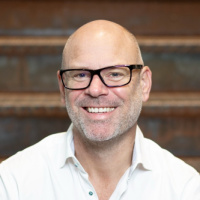
Heiko Schwarz has more than 20 years of experience in the software industry in leading positions for software solutions with a focus on procurement, supply chain, and risk management. As a Global Supply Chain Risk Advisor for Sphera SCRM, he uses his experience and passion to position our innovative solutions and ensure our customers adopt their SCRM programs successfully. Connect with Heiko on LinkedIn.
